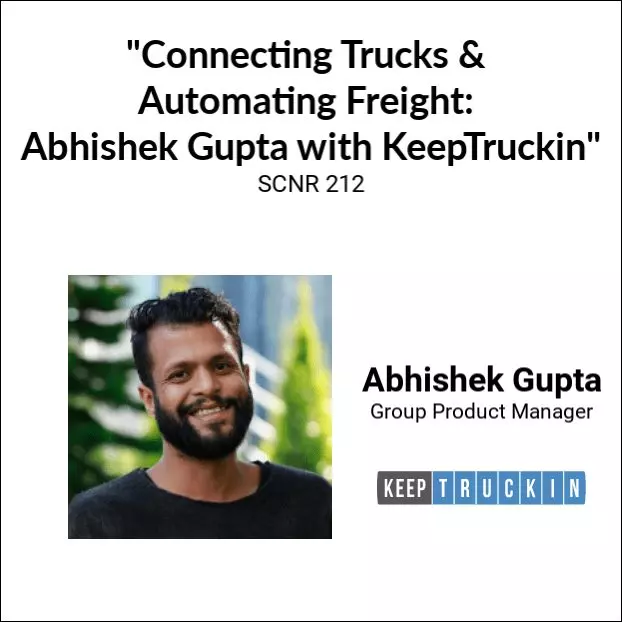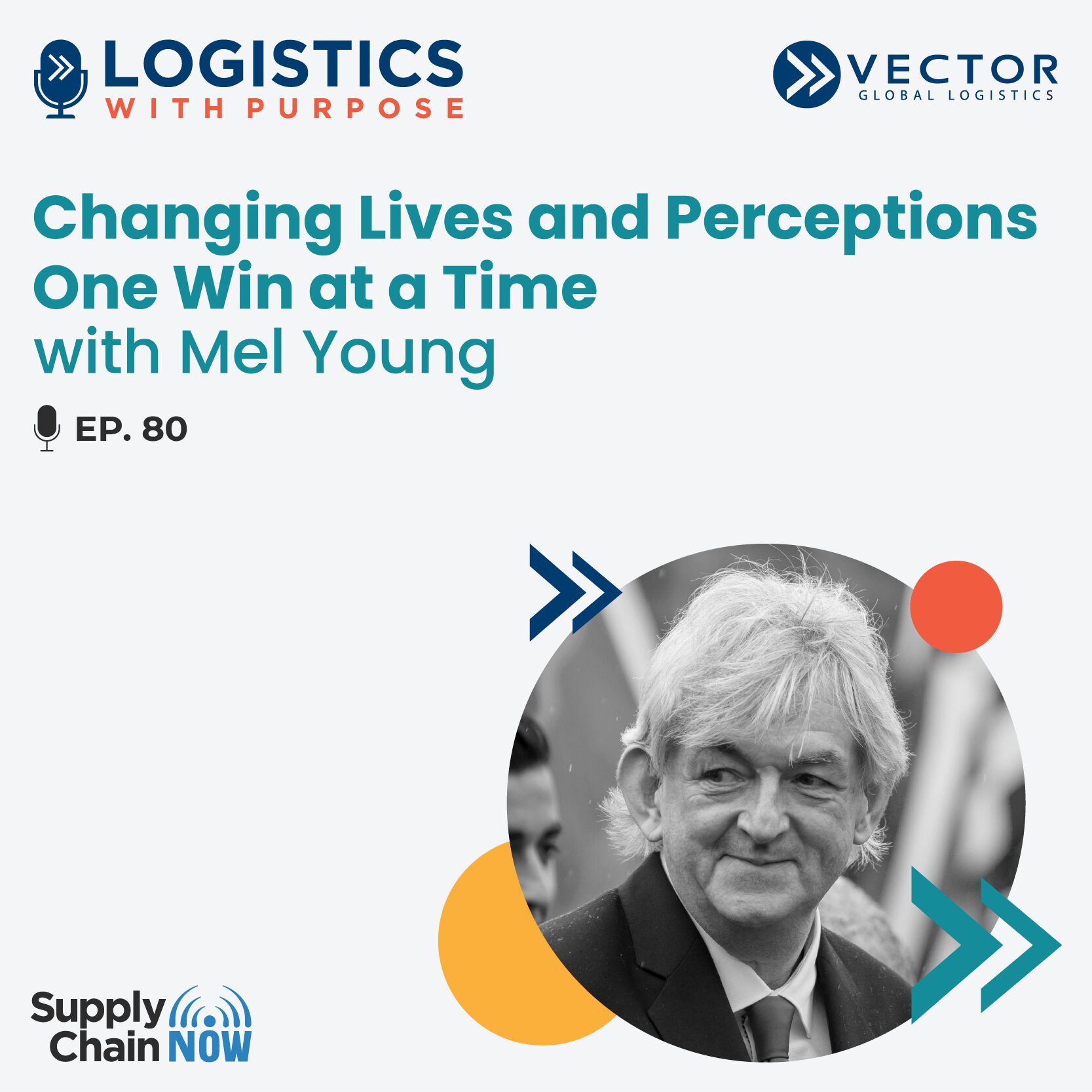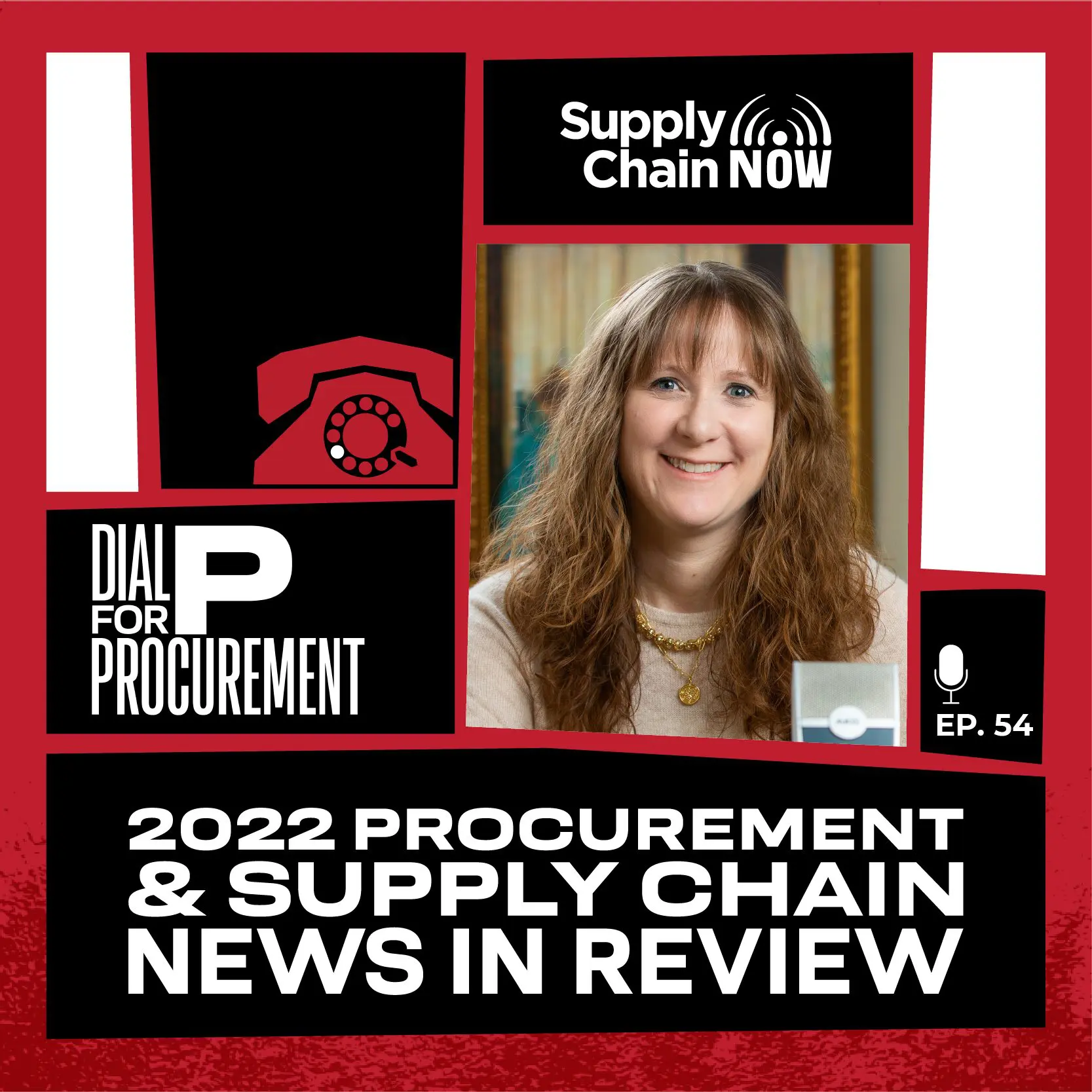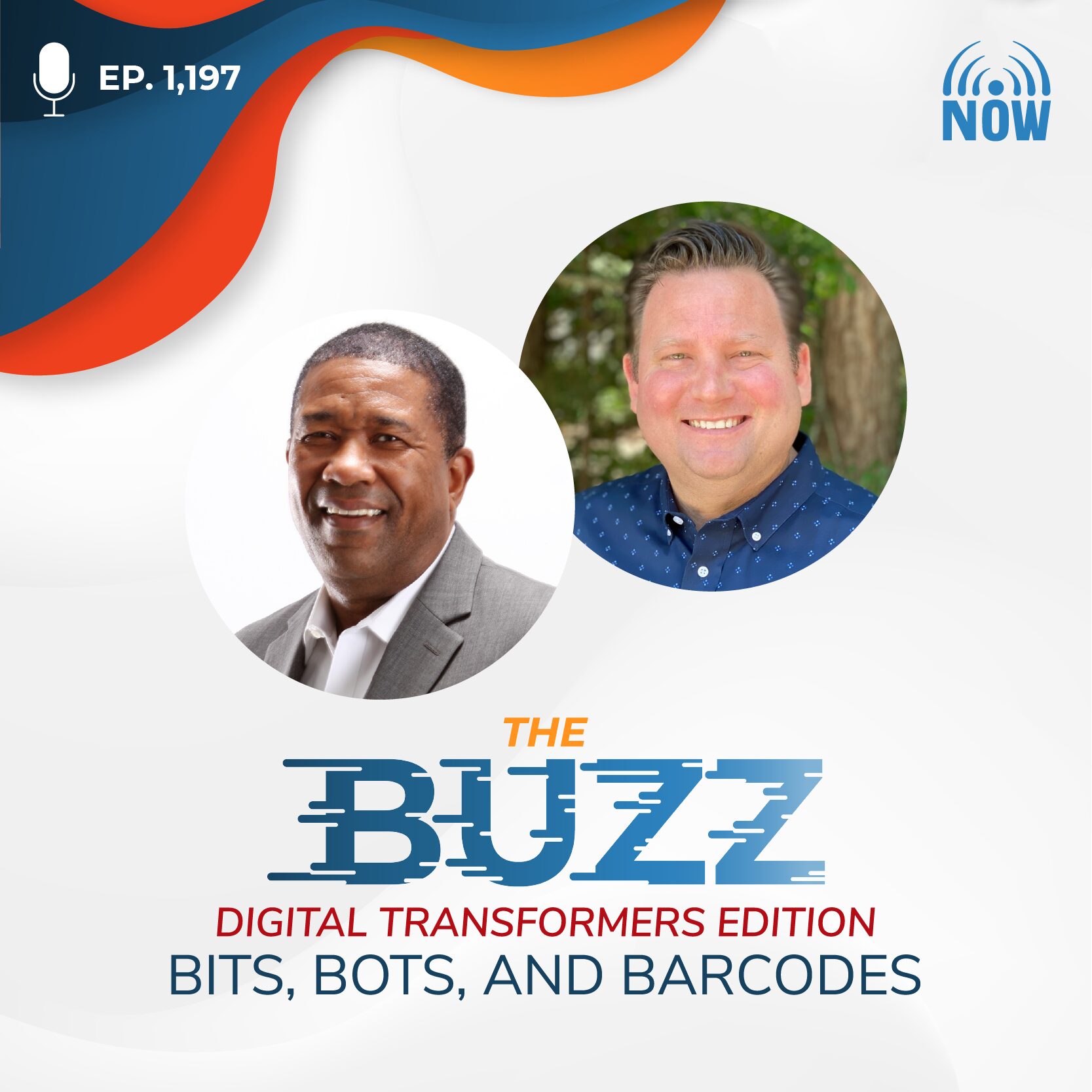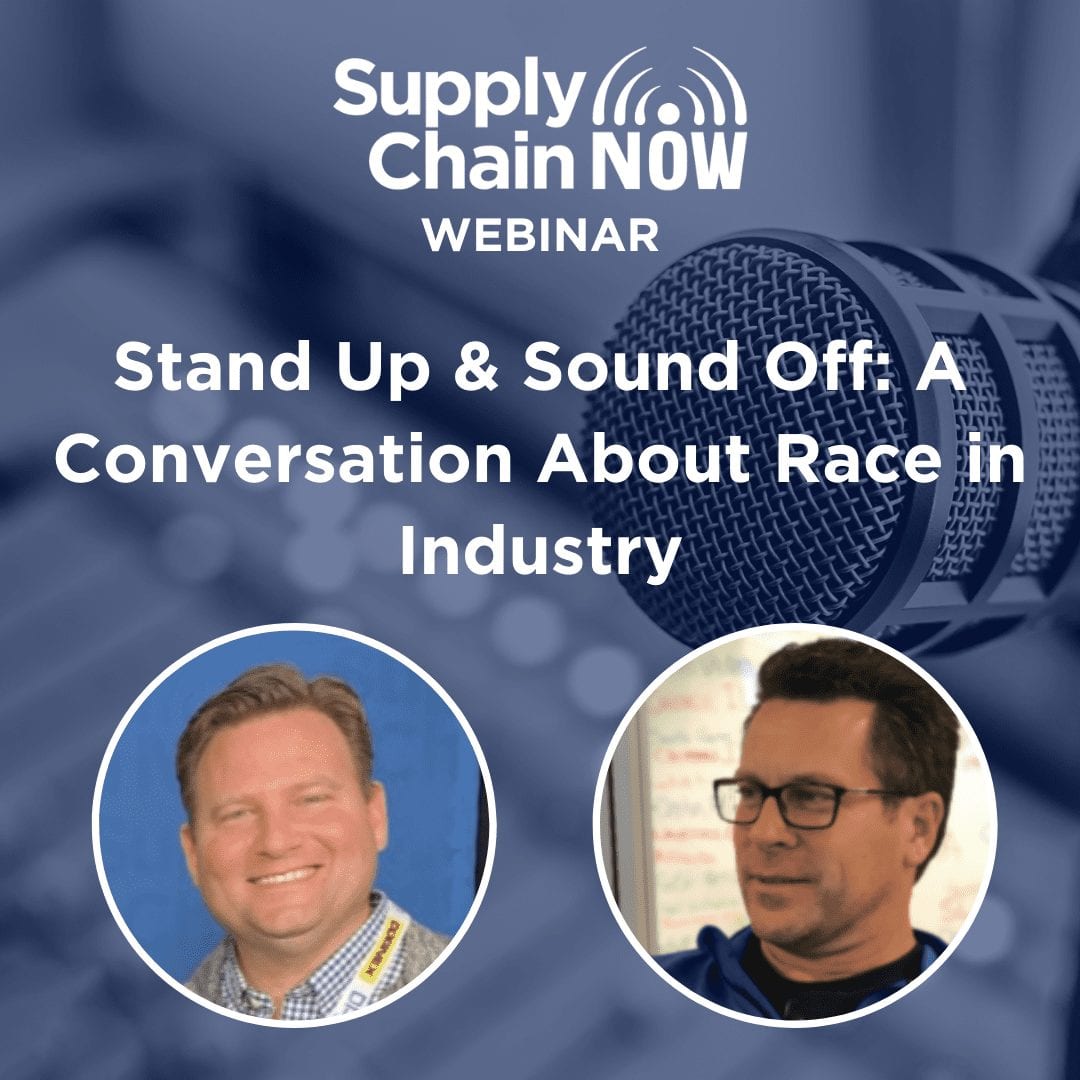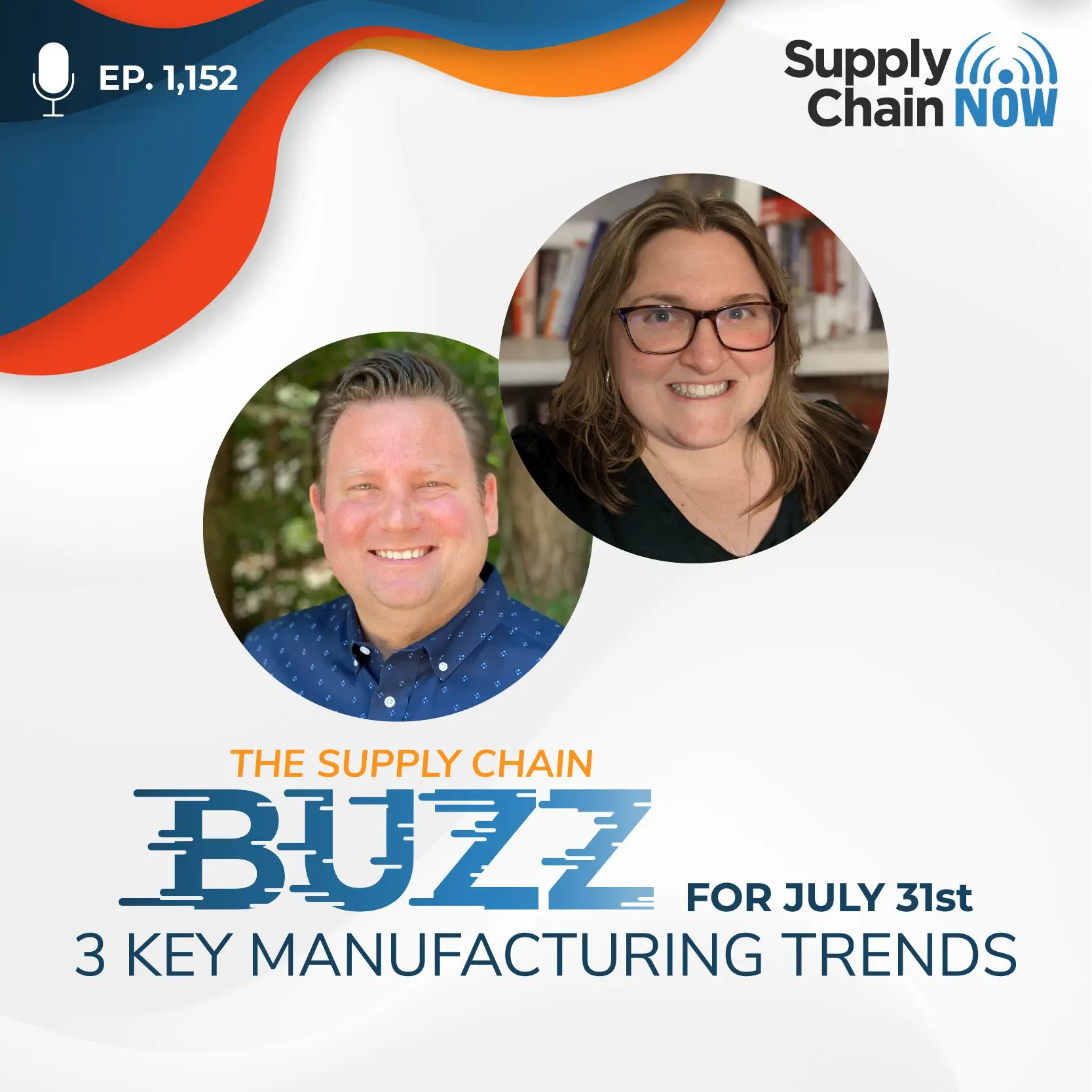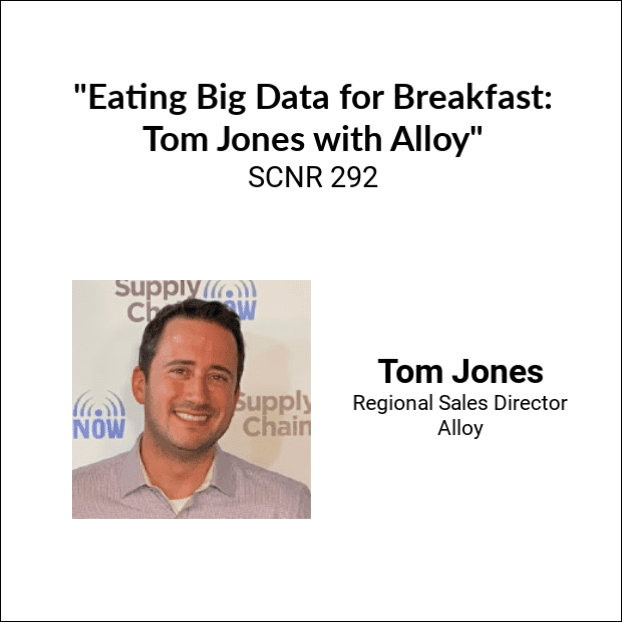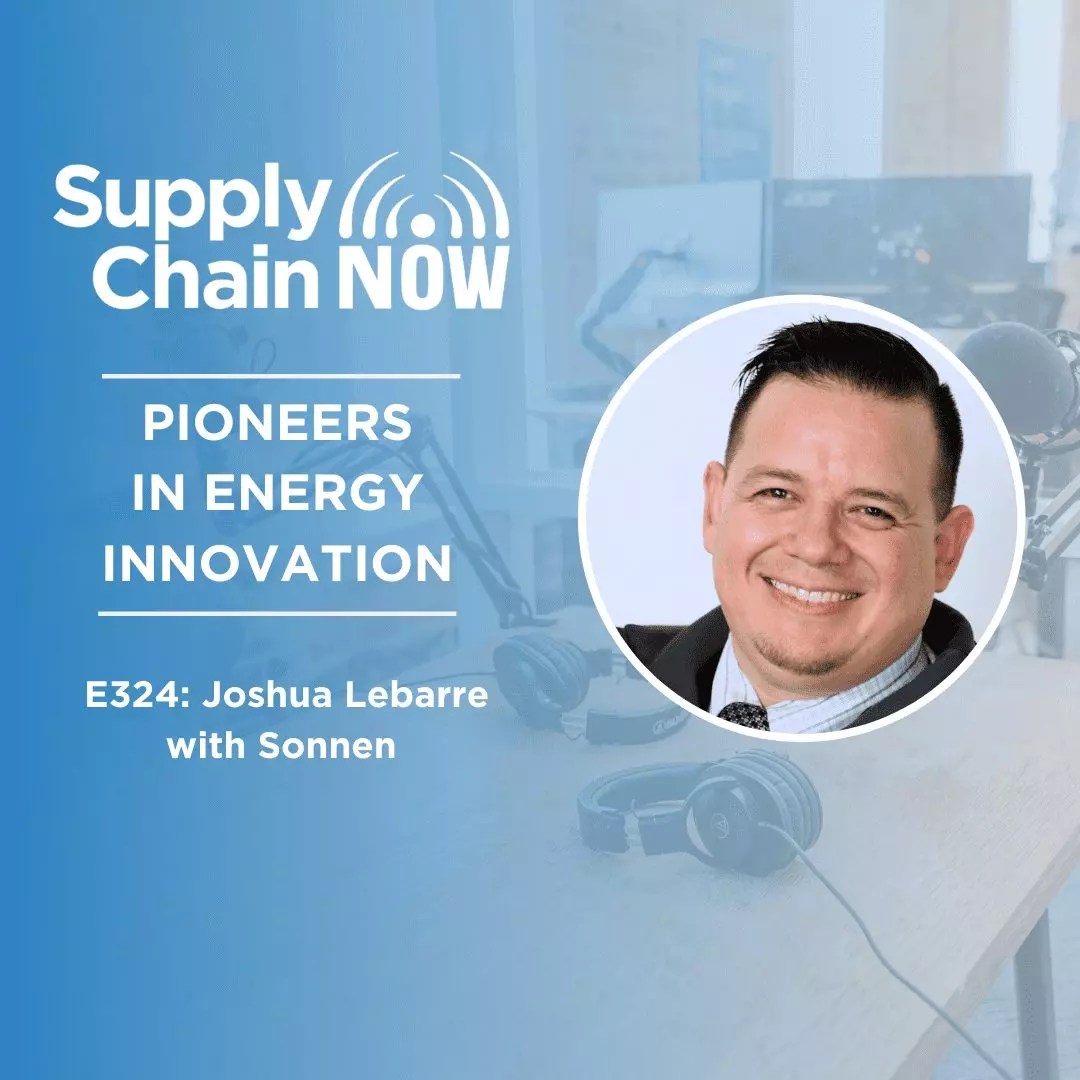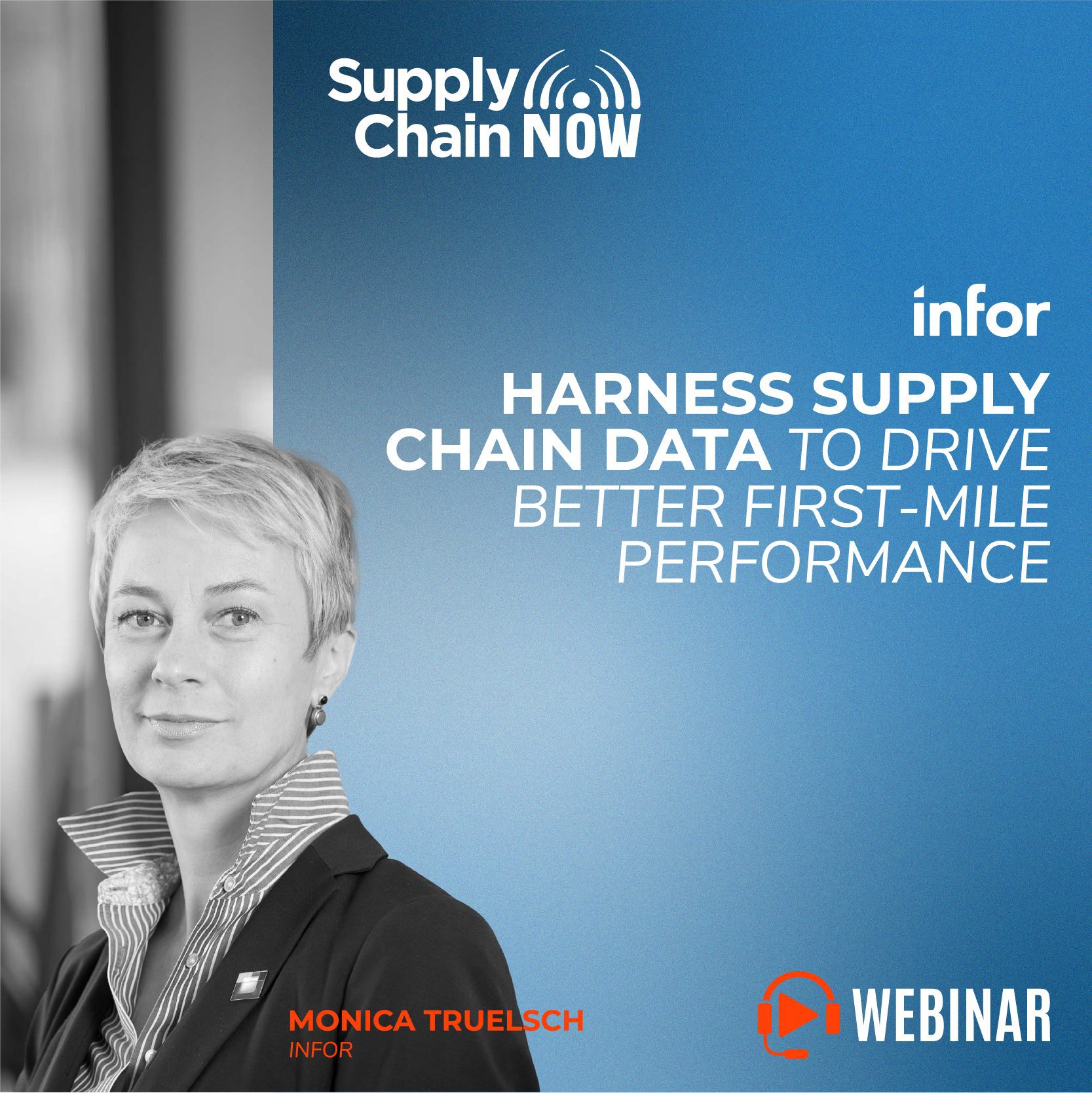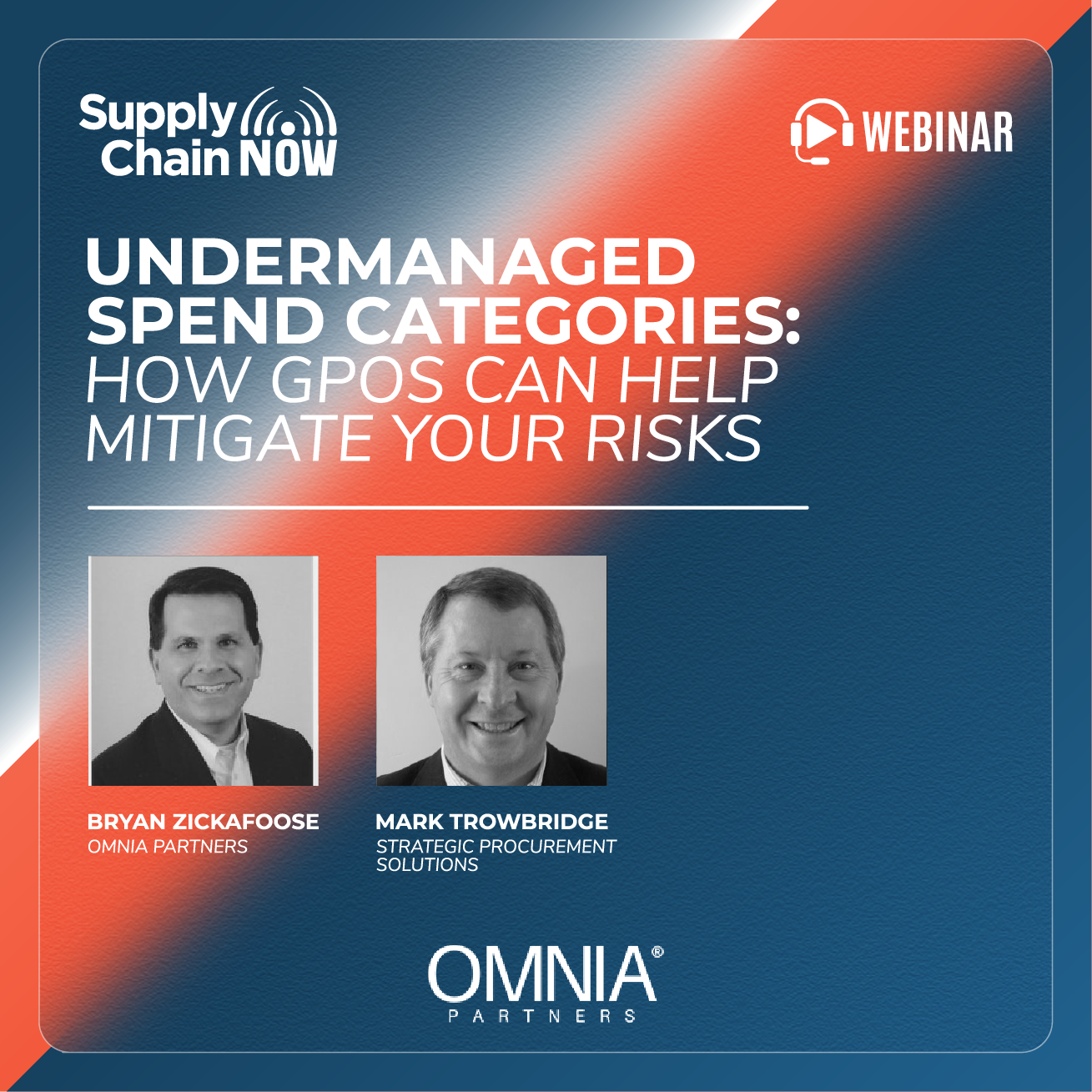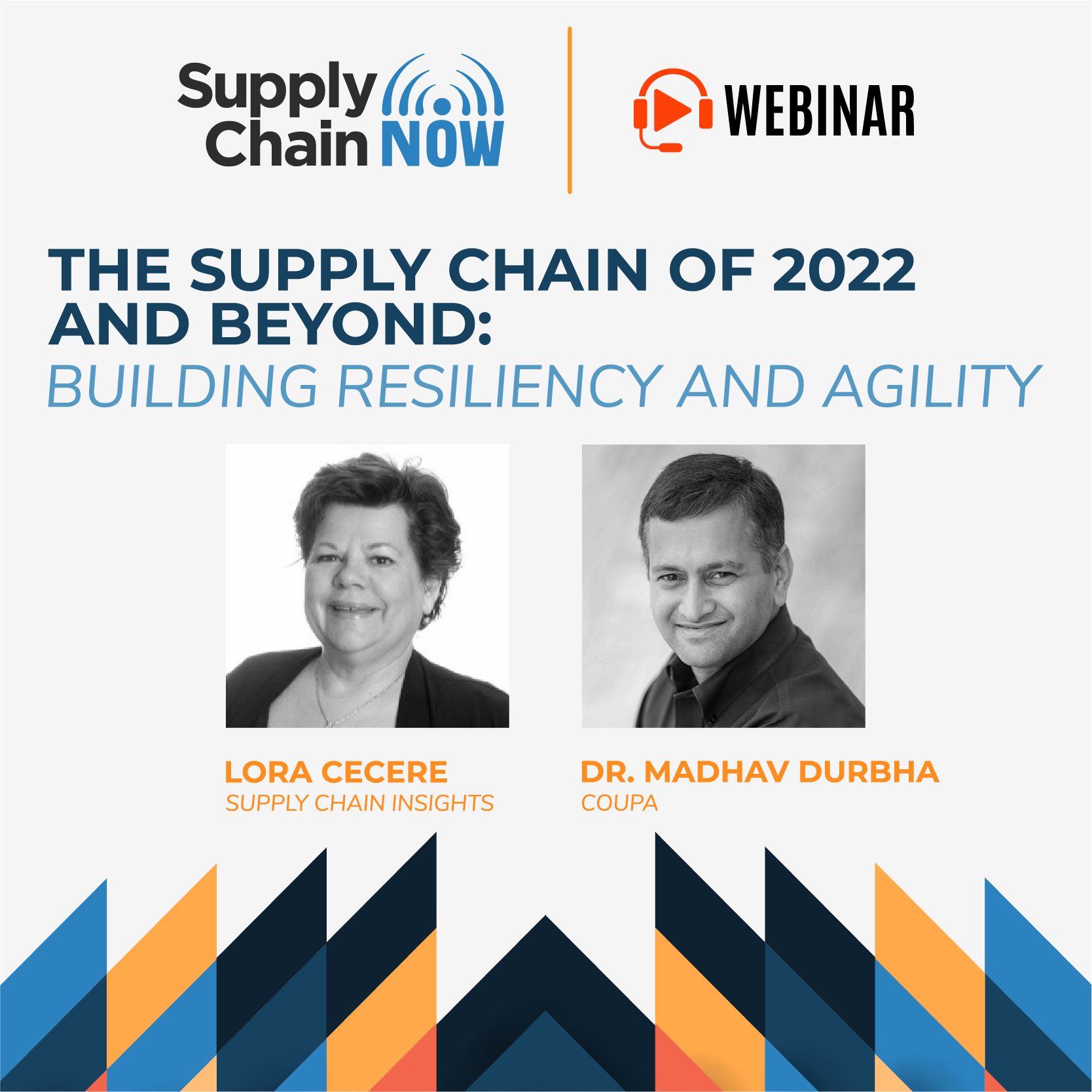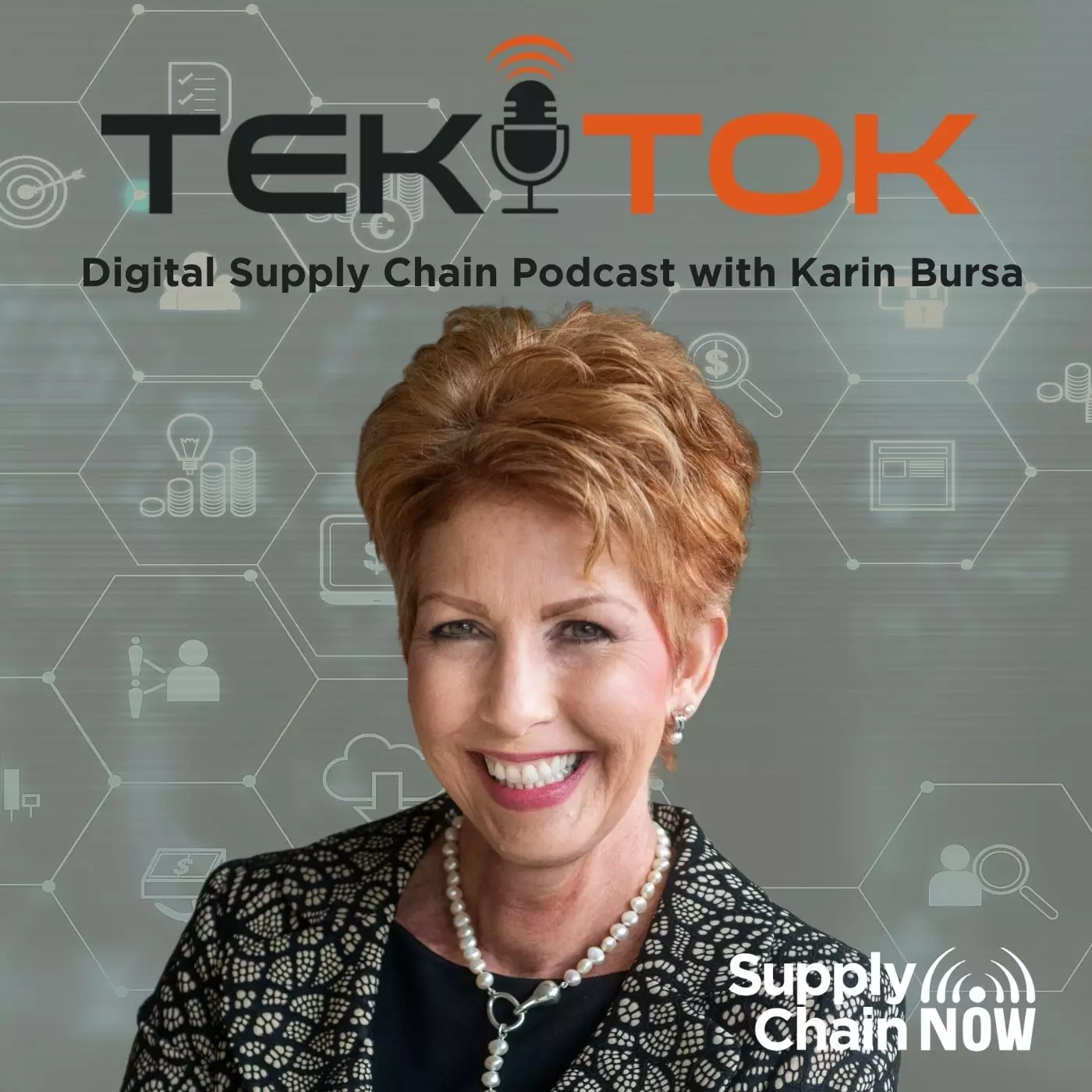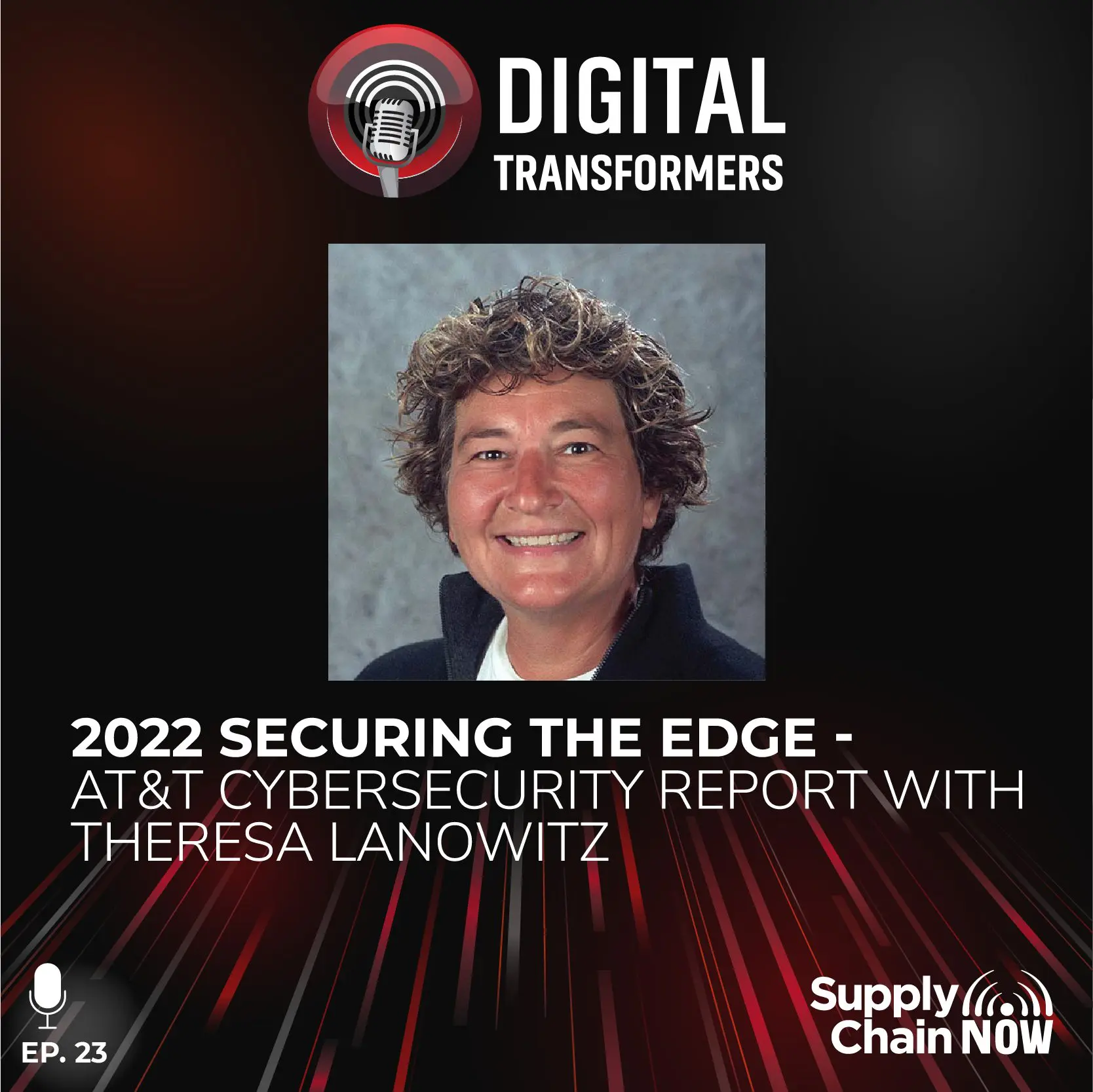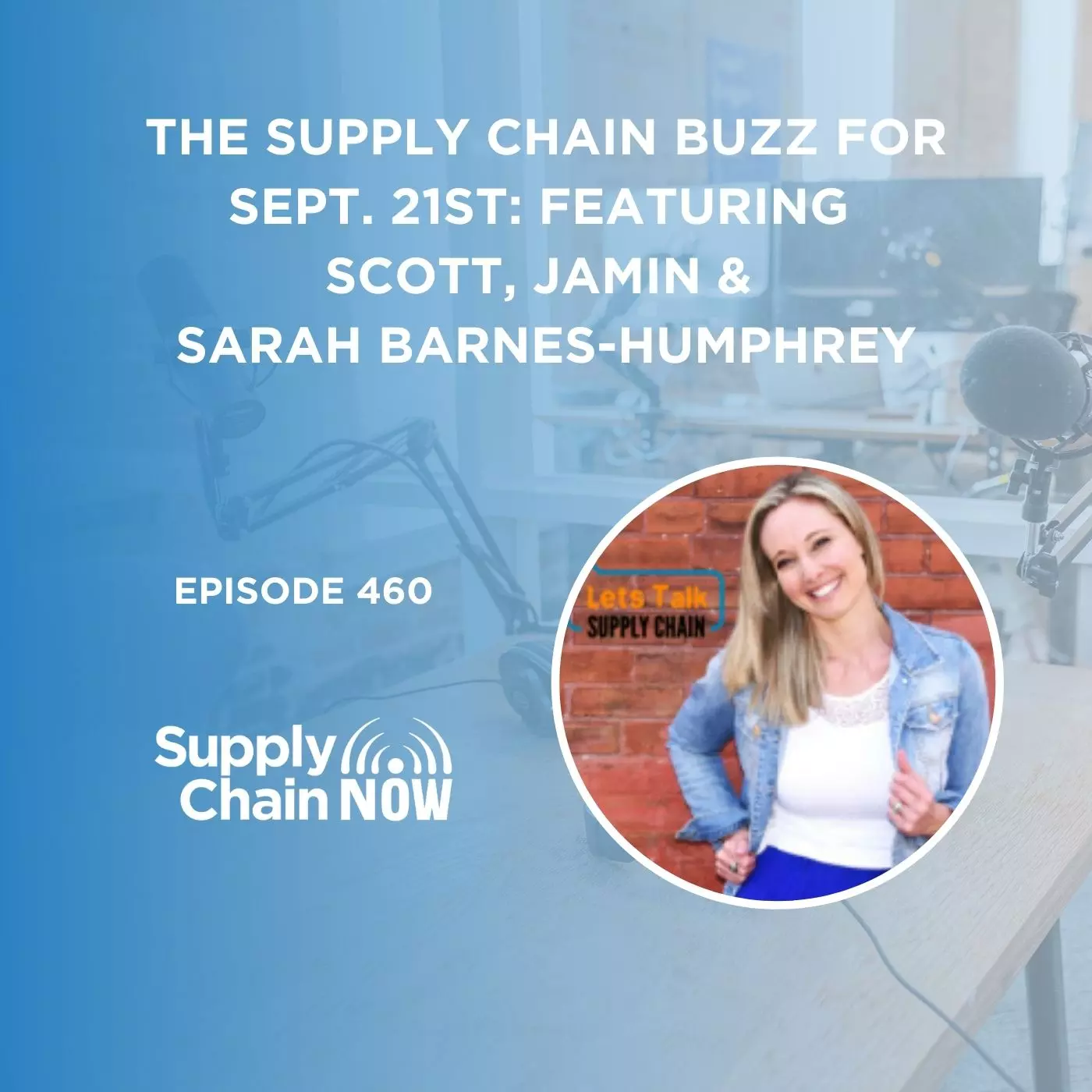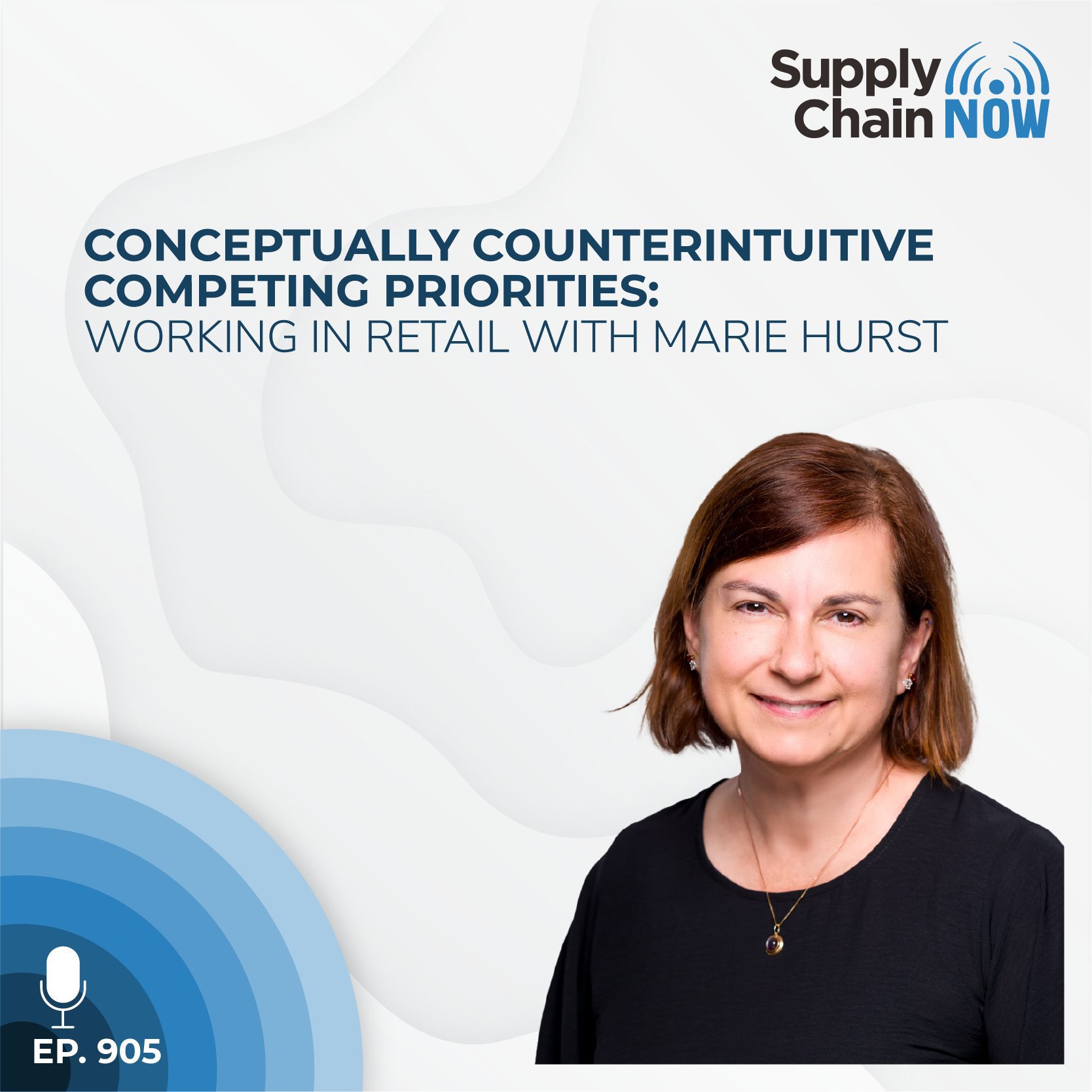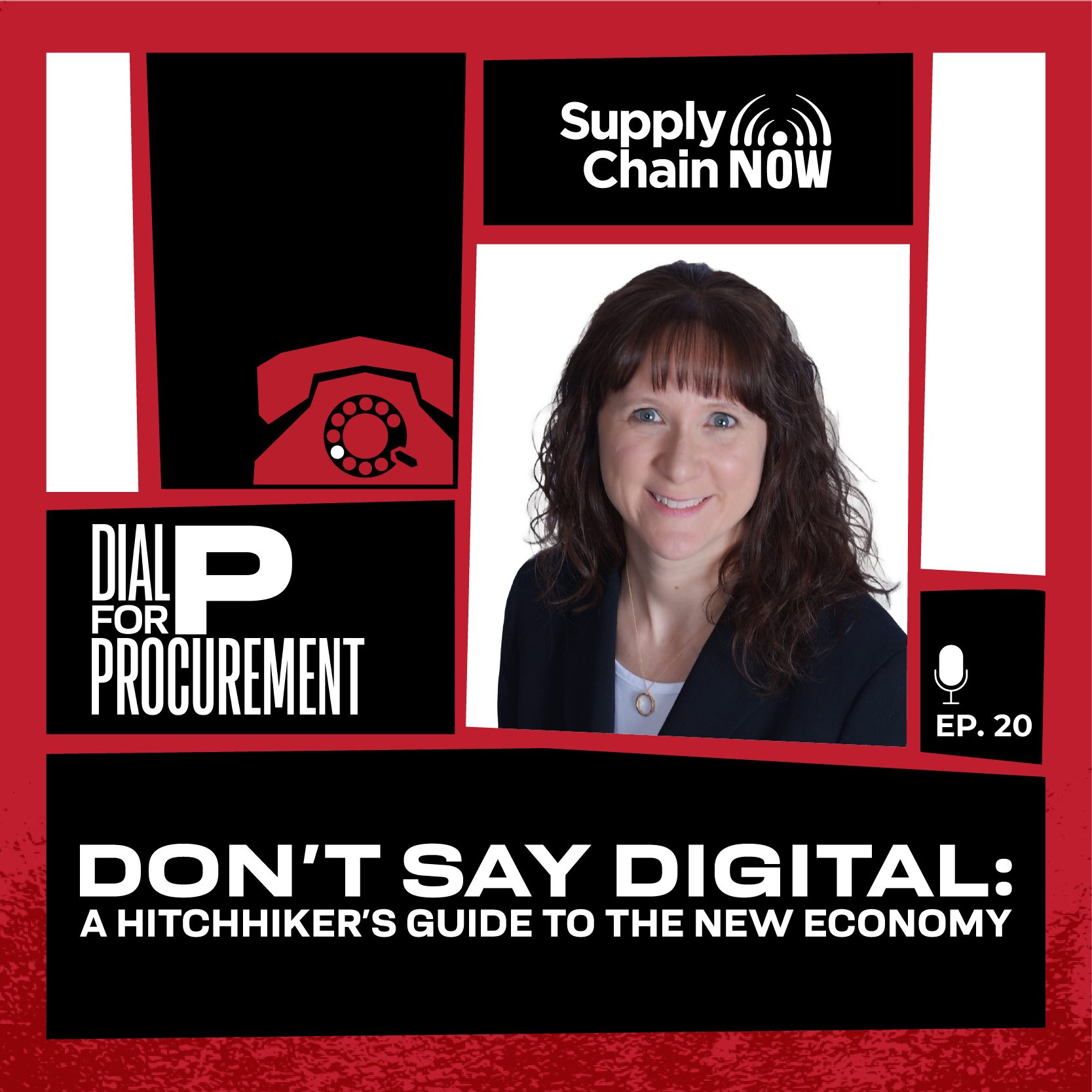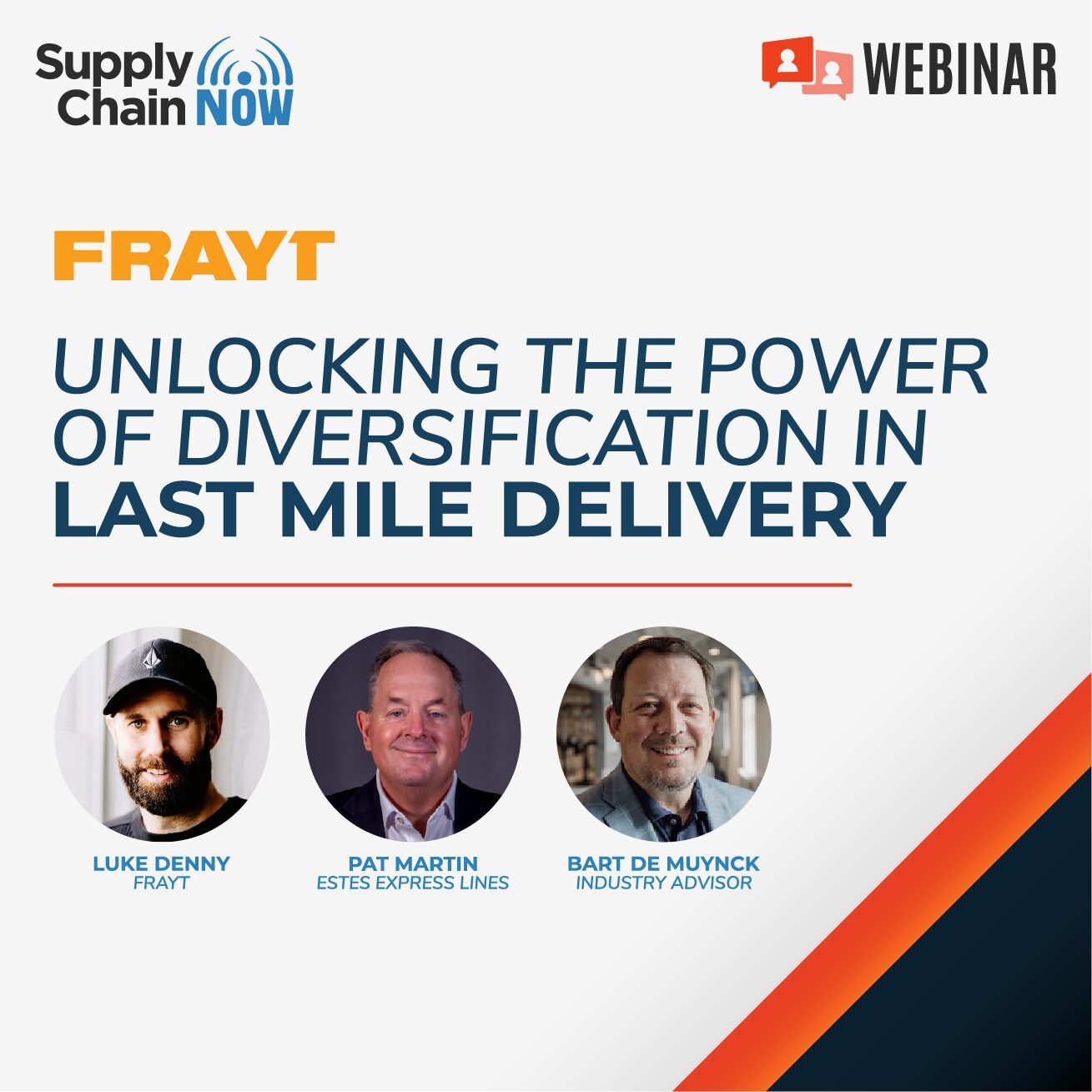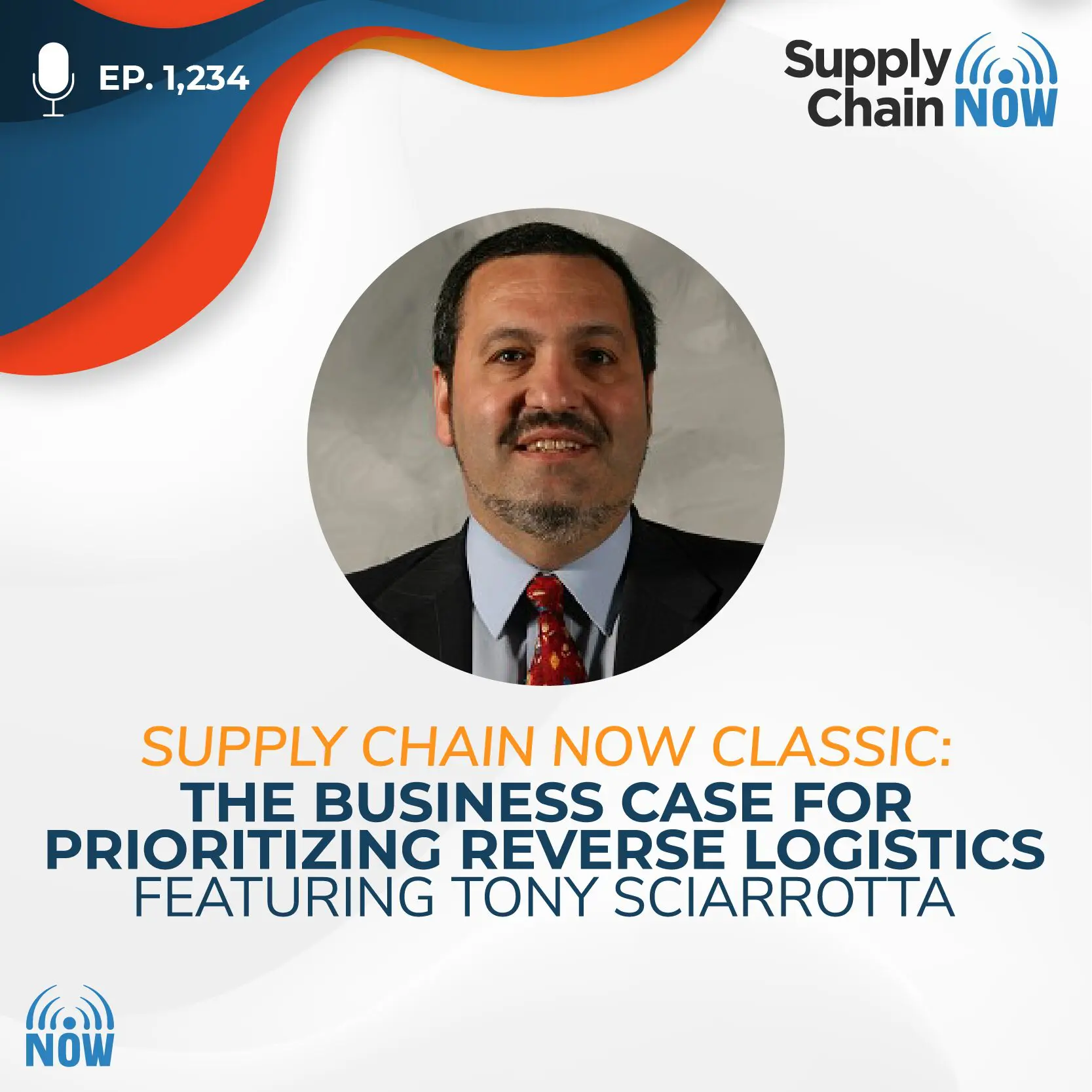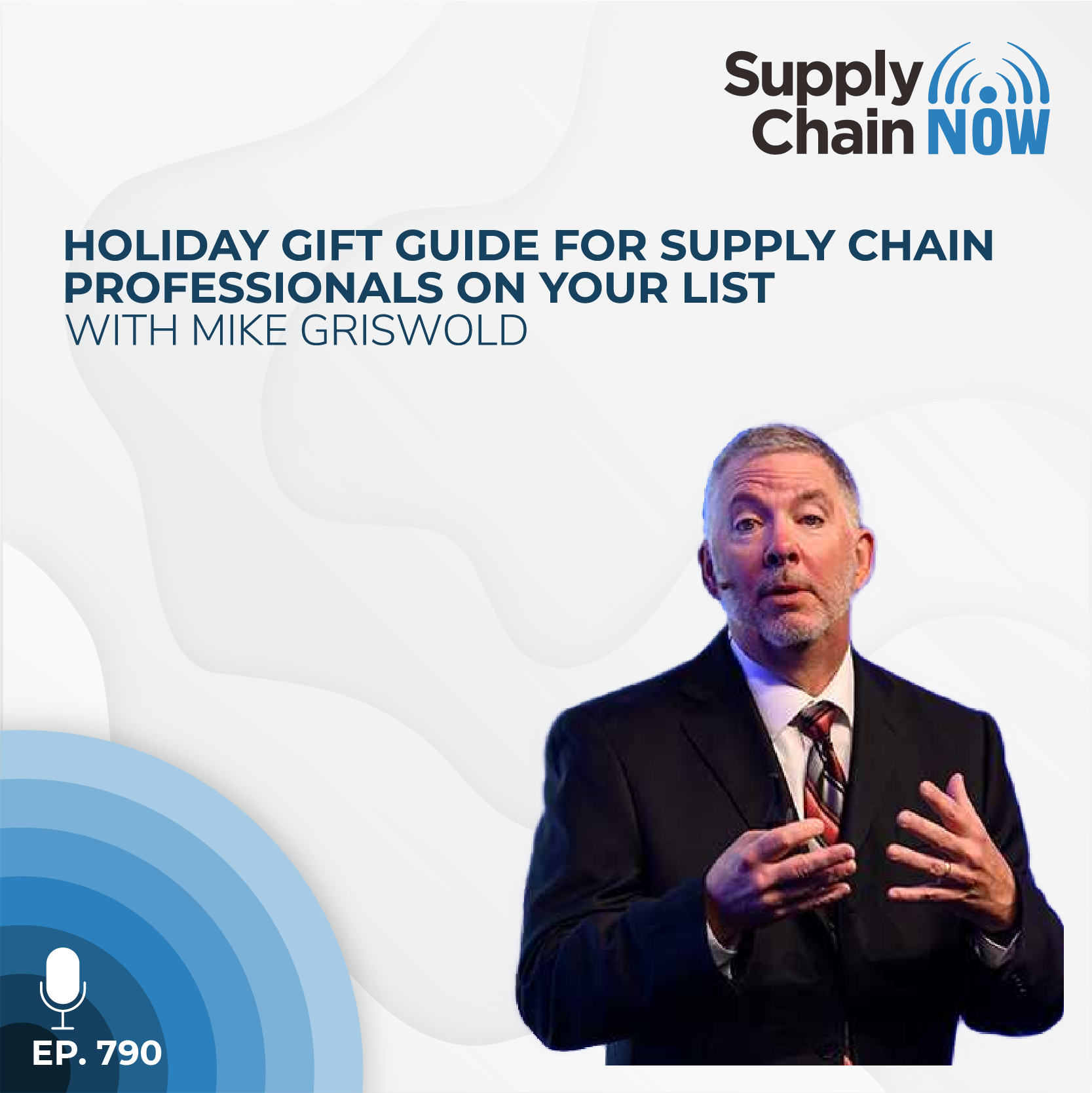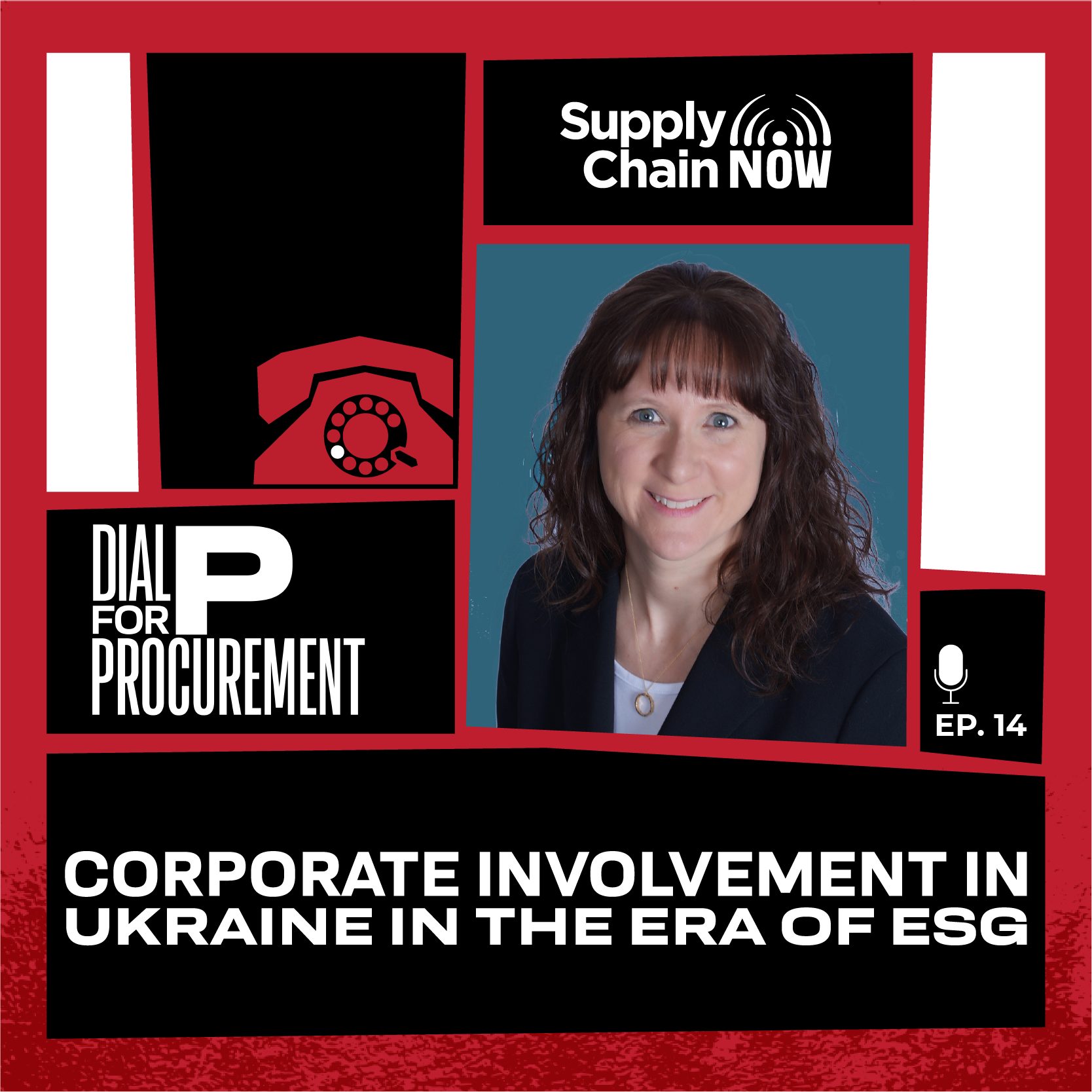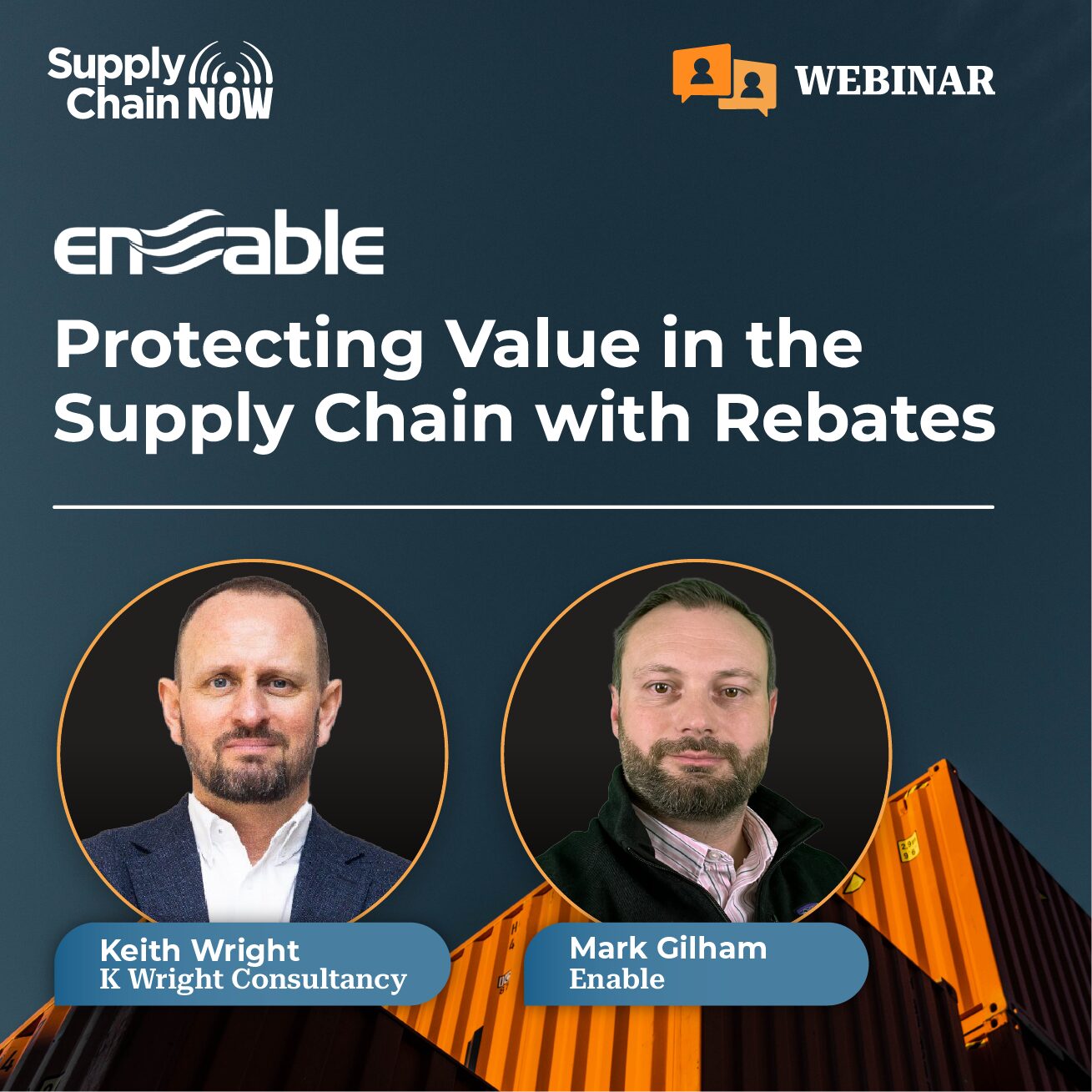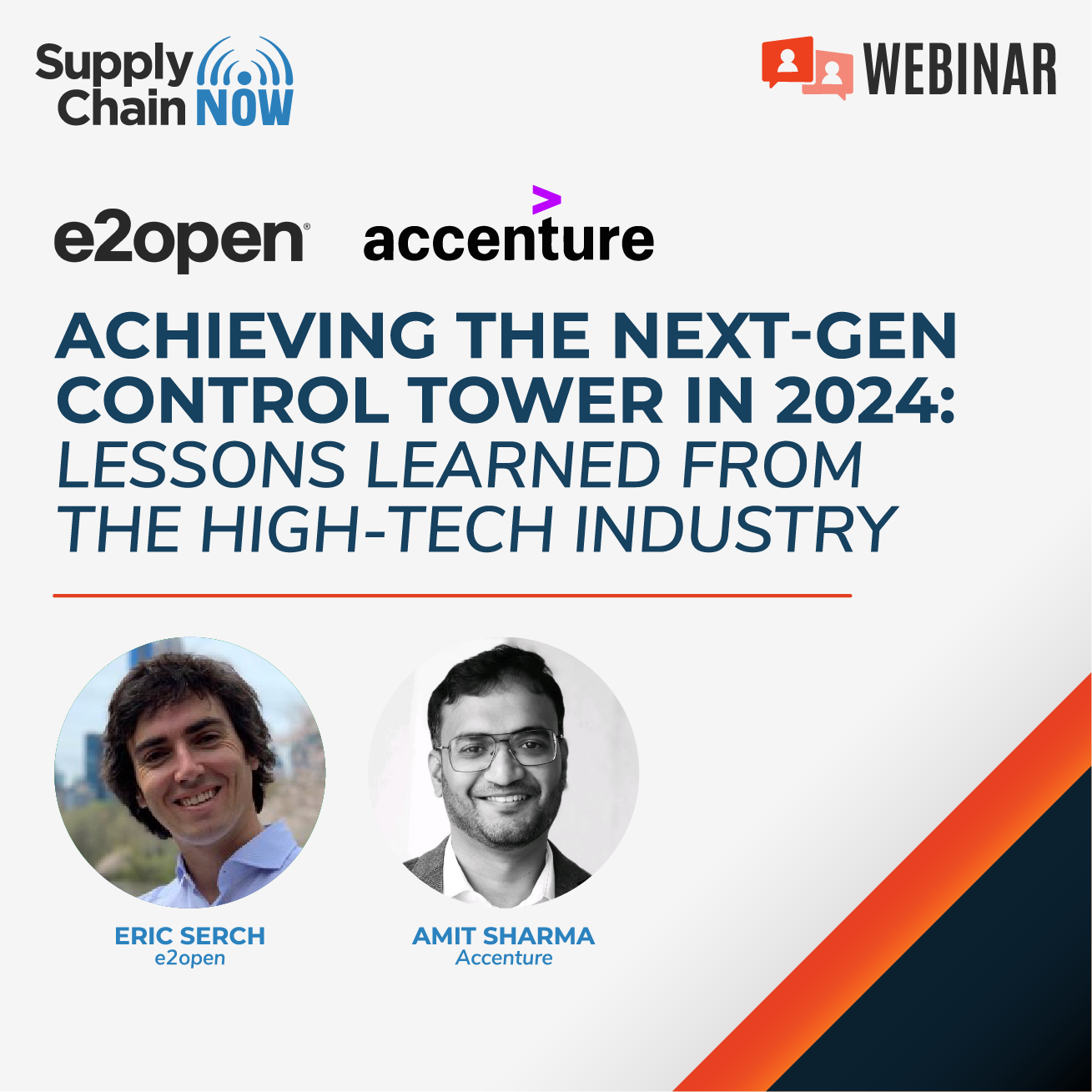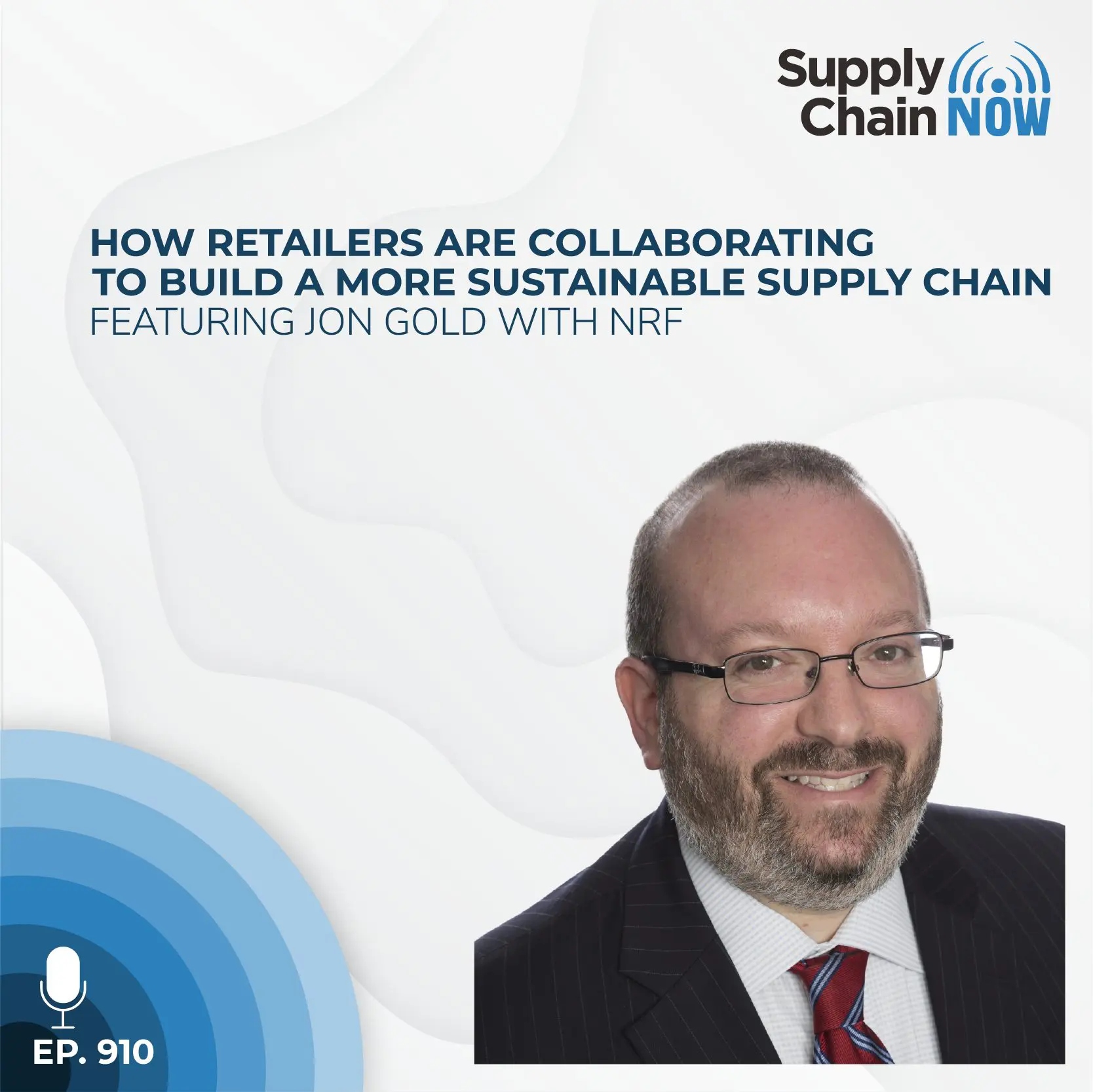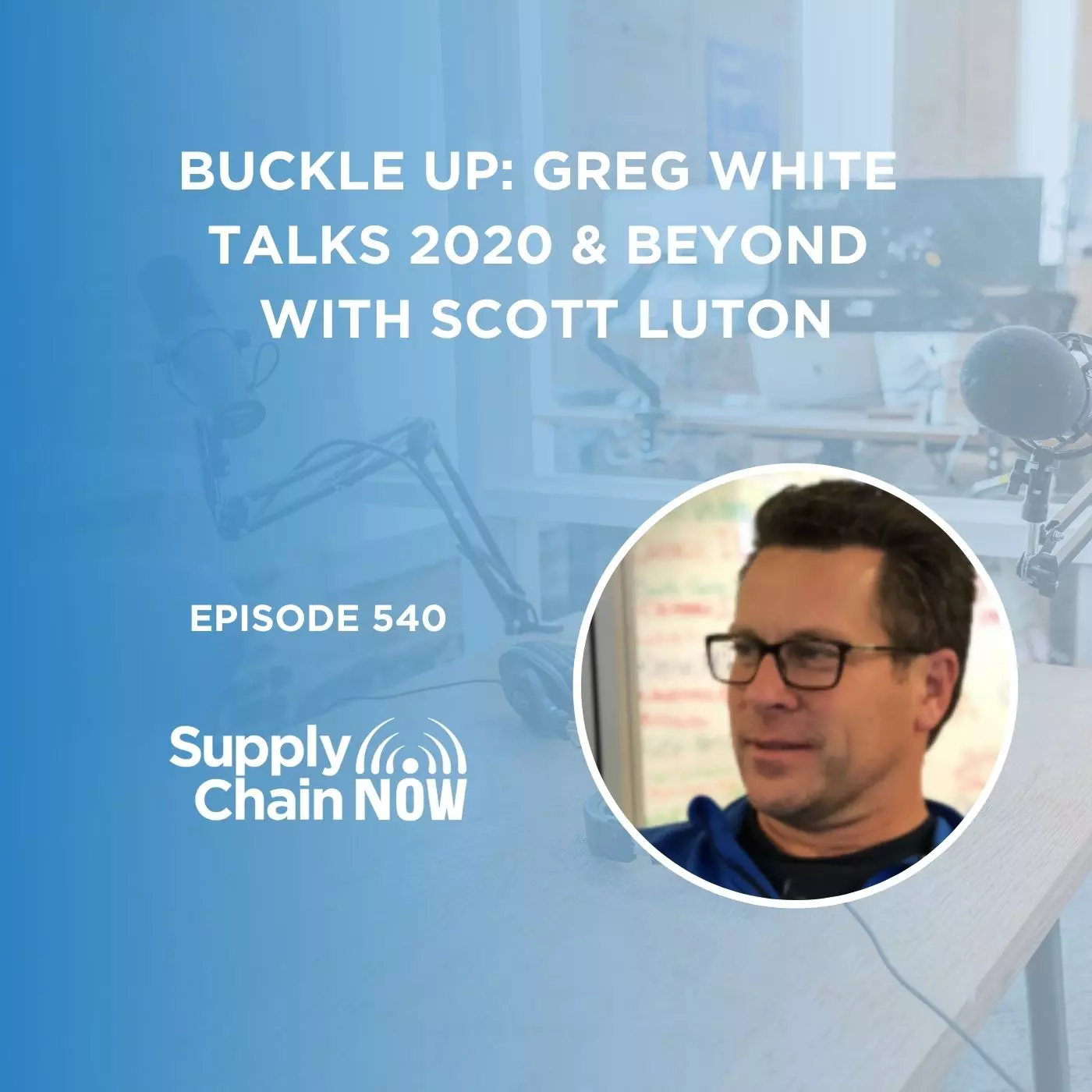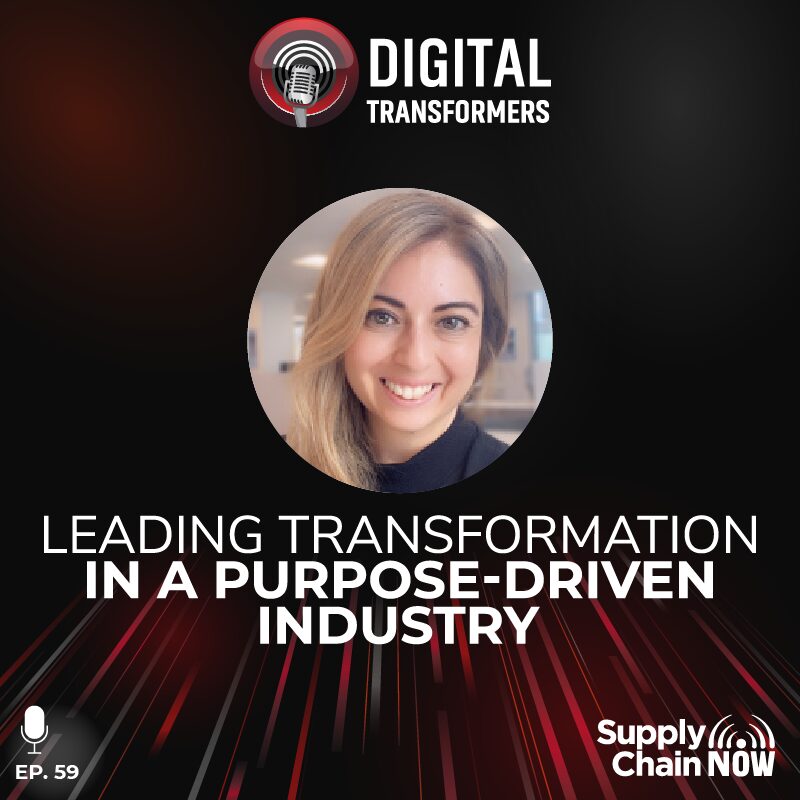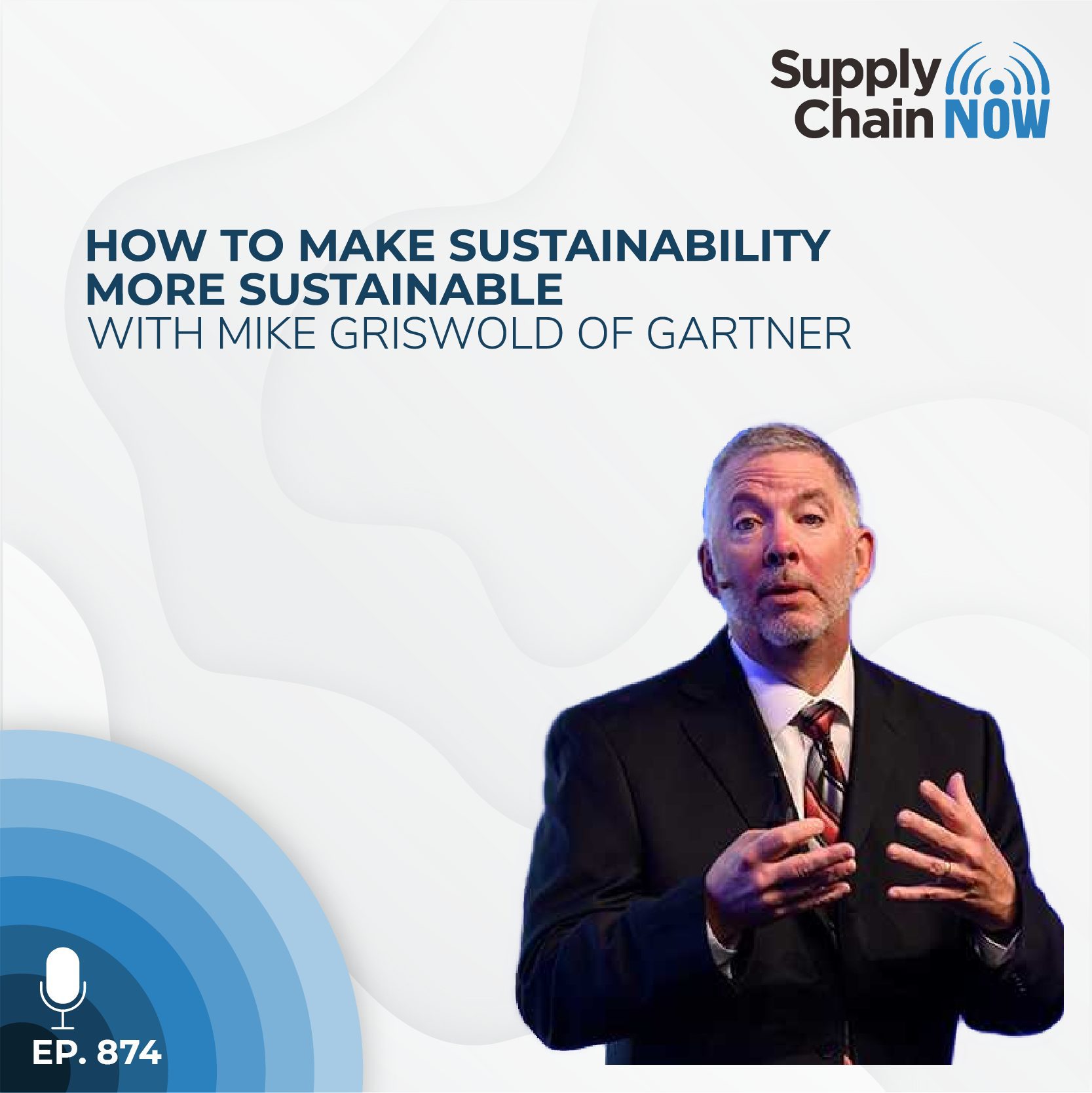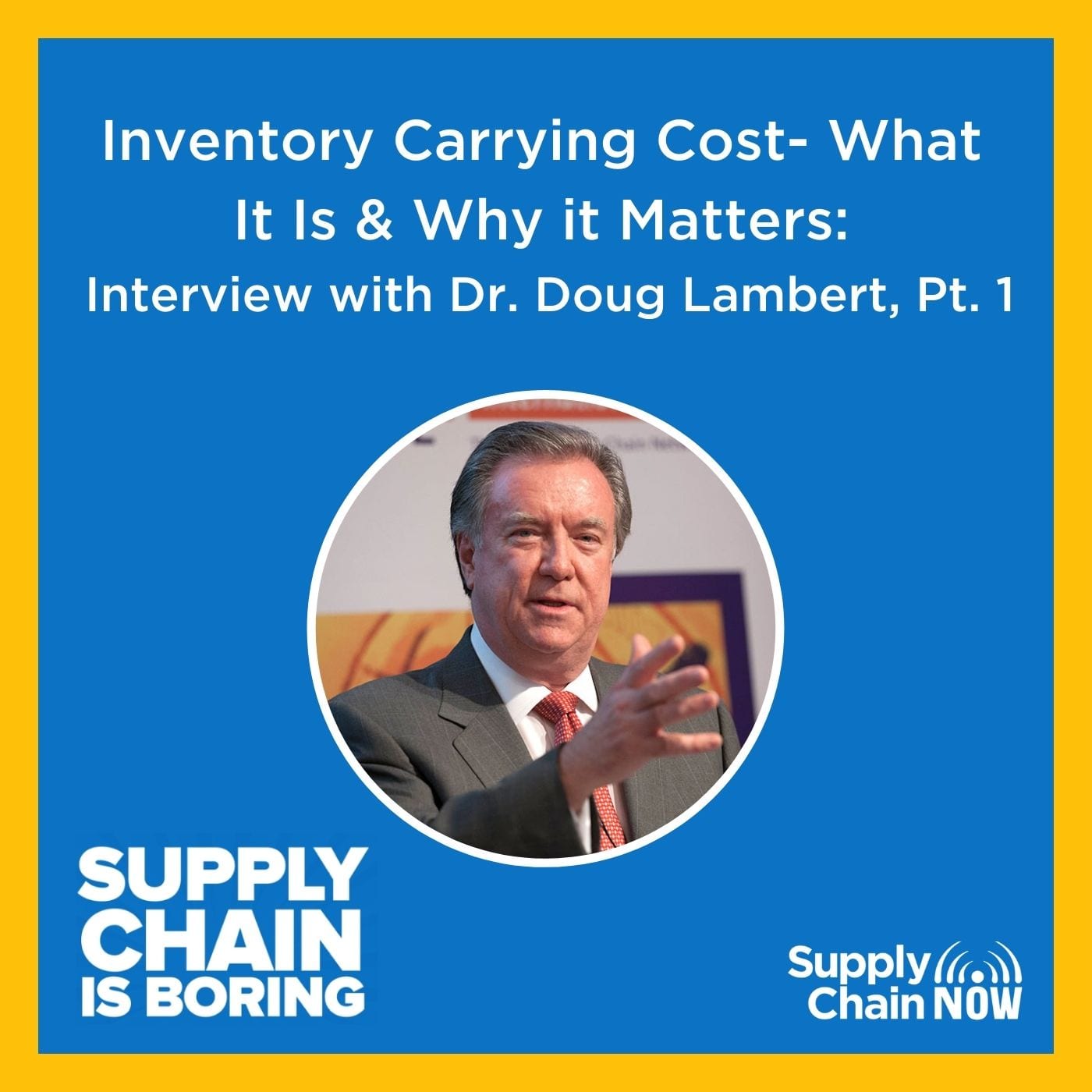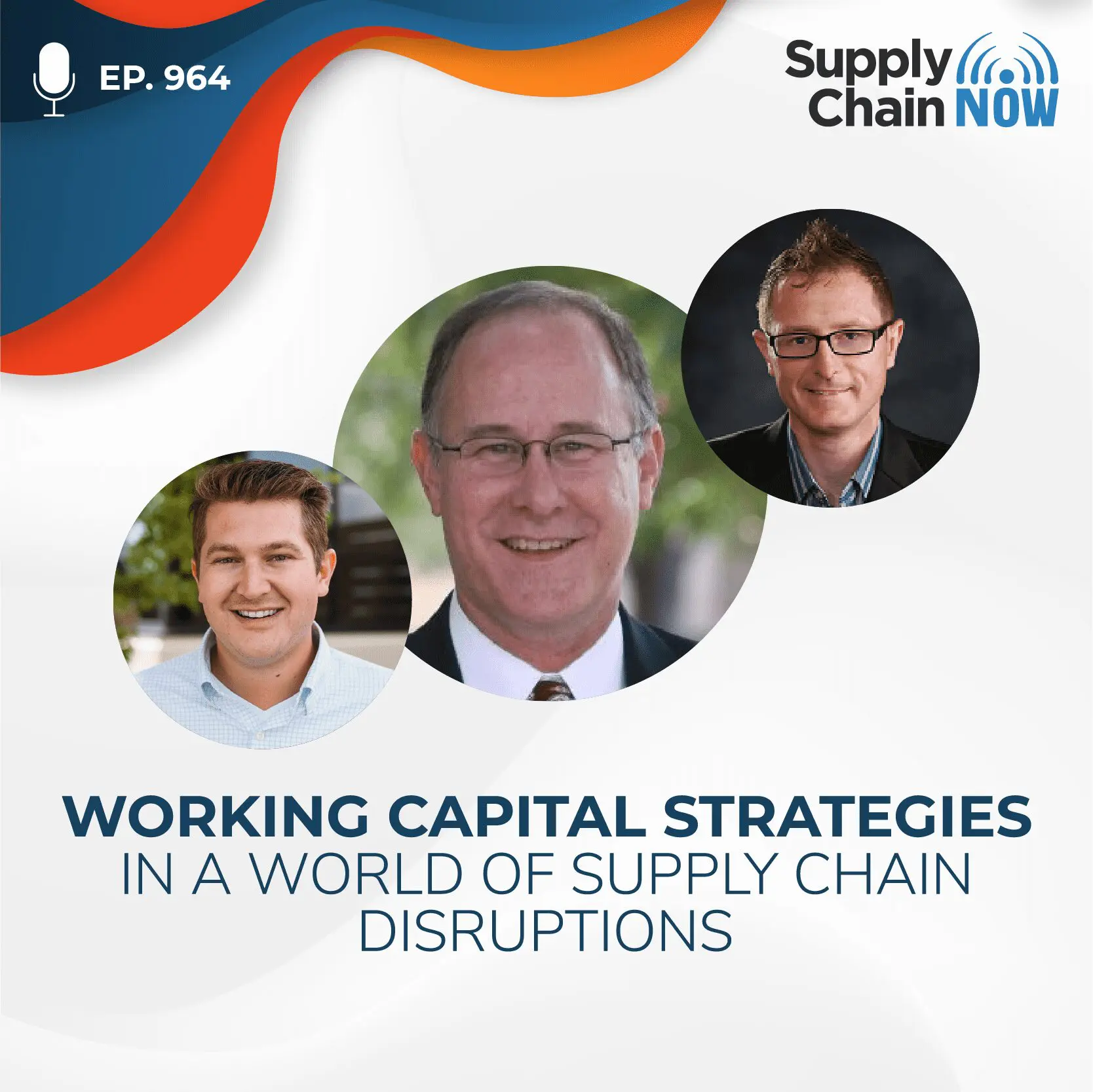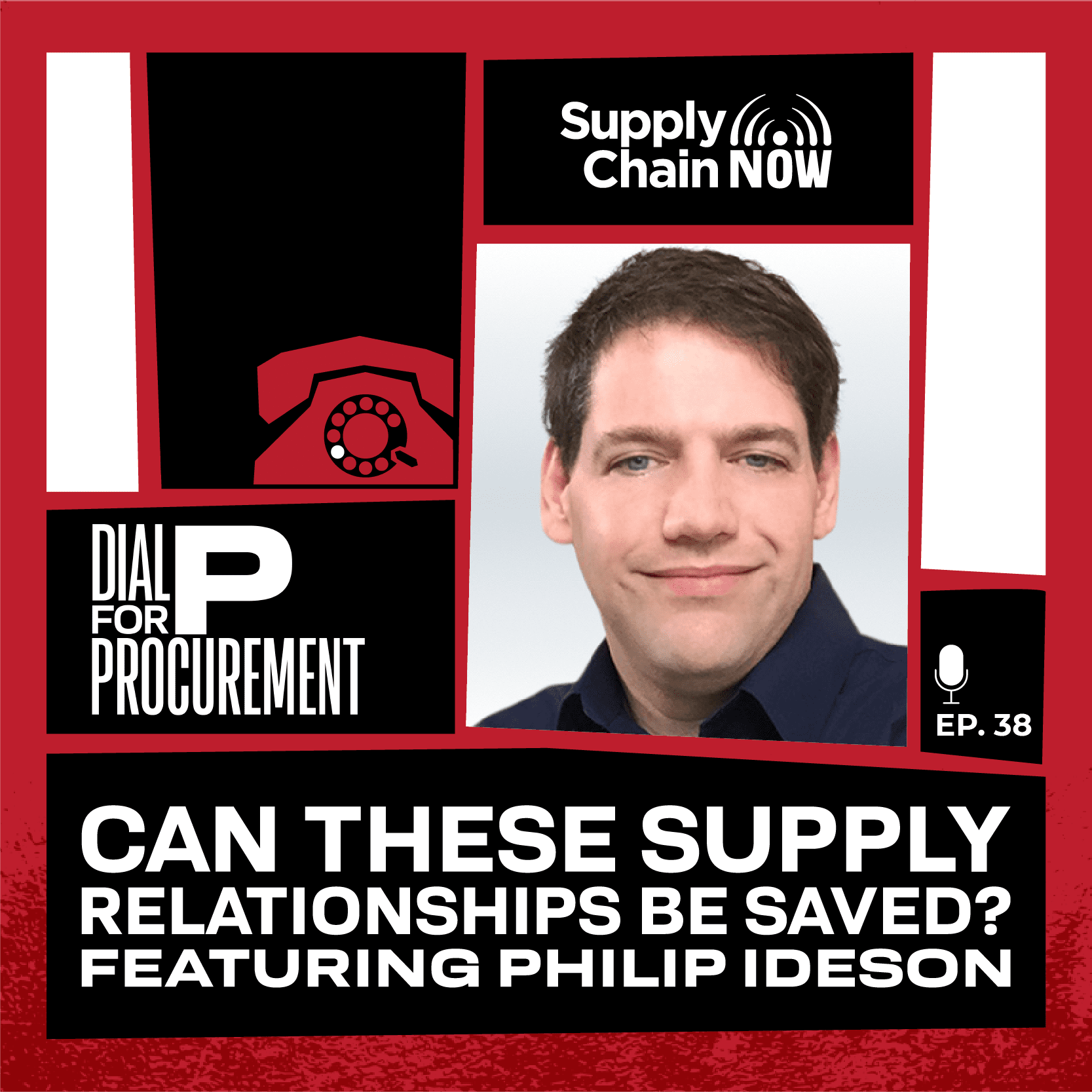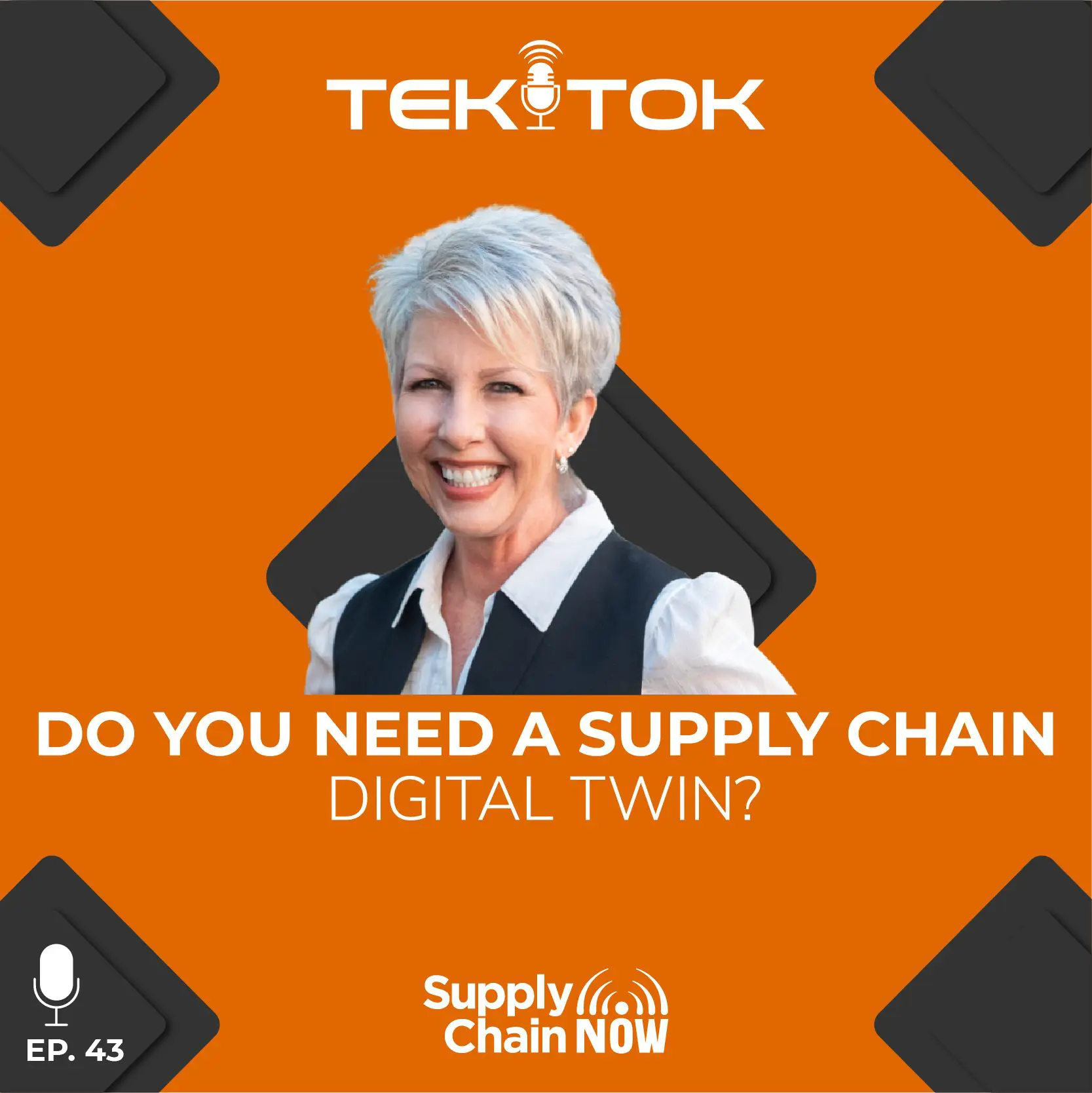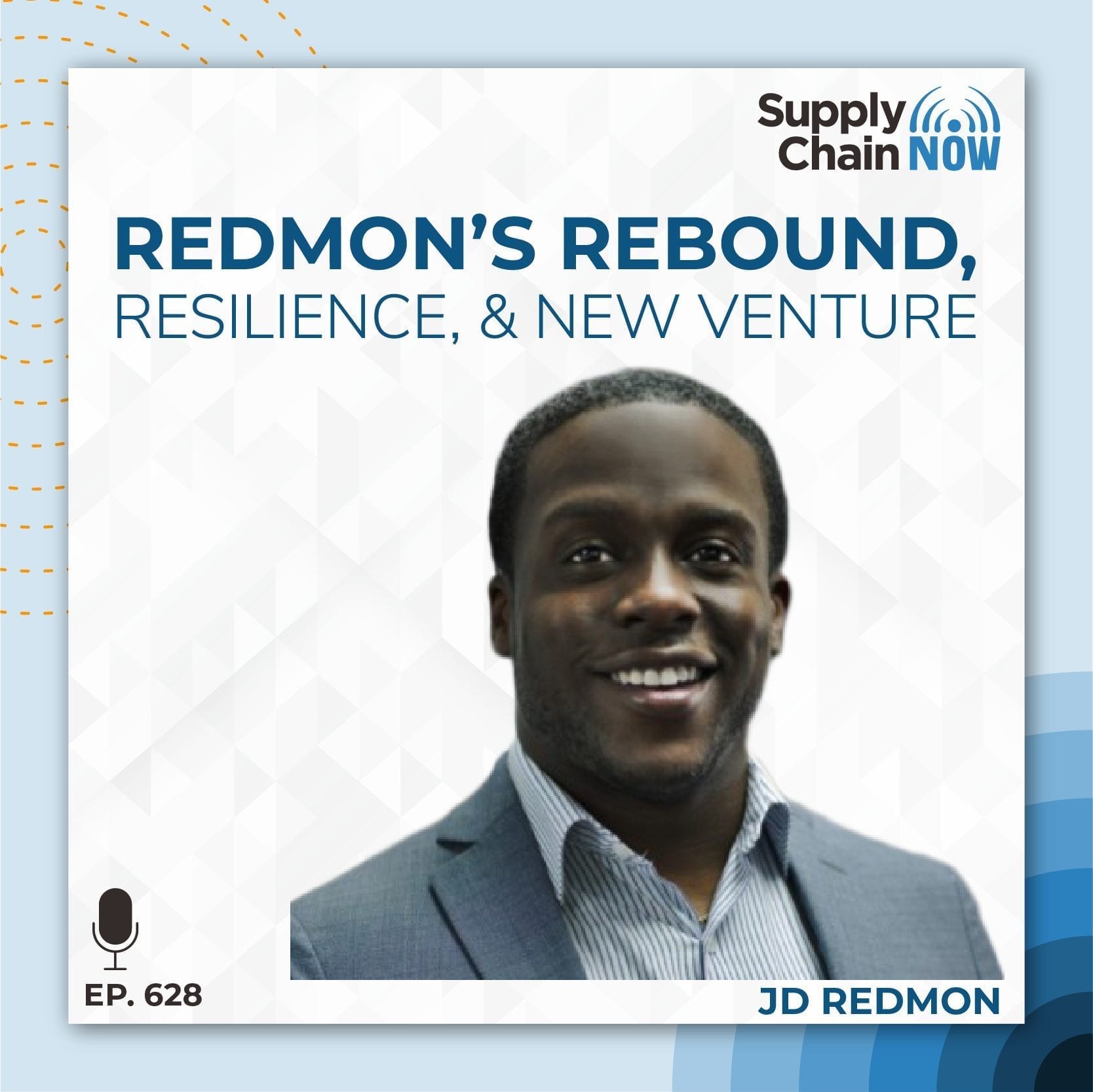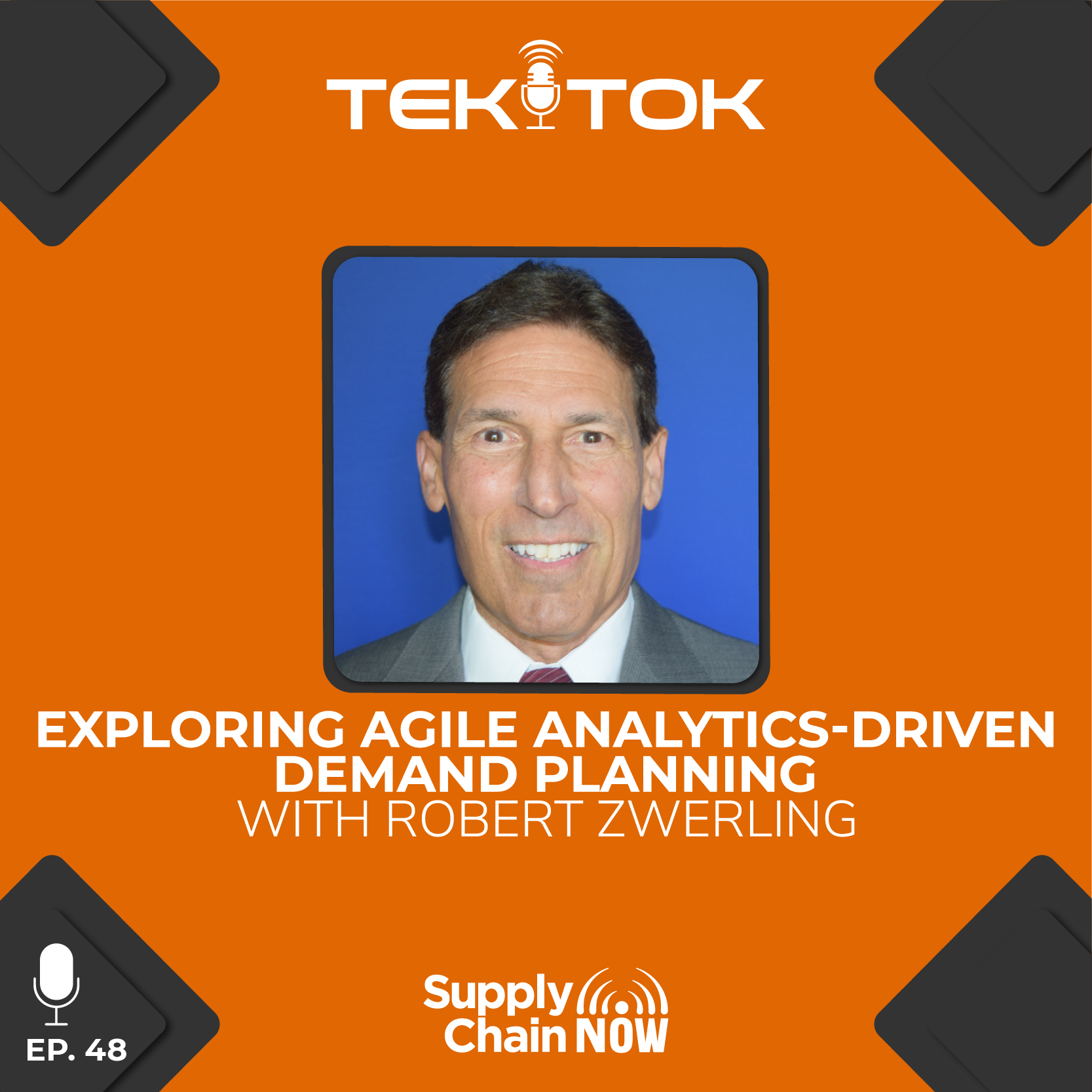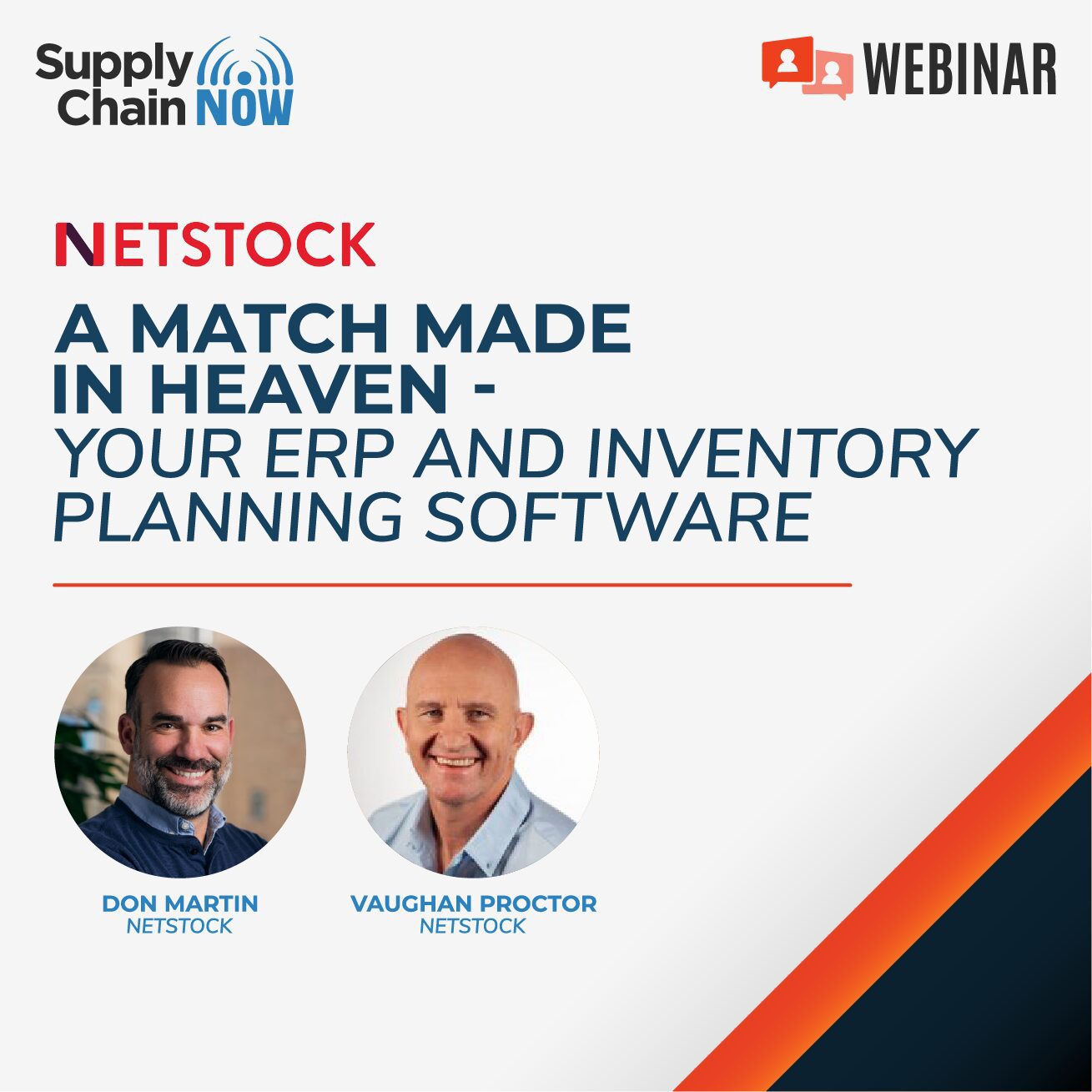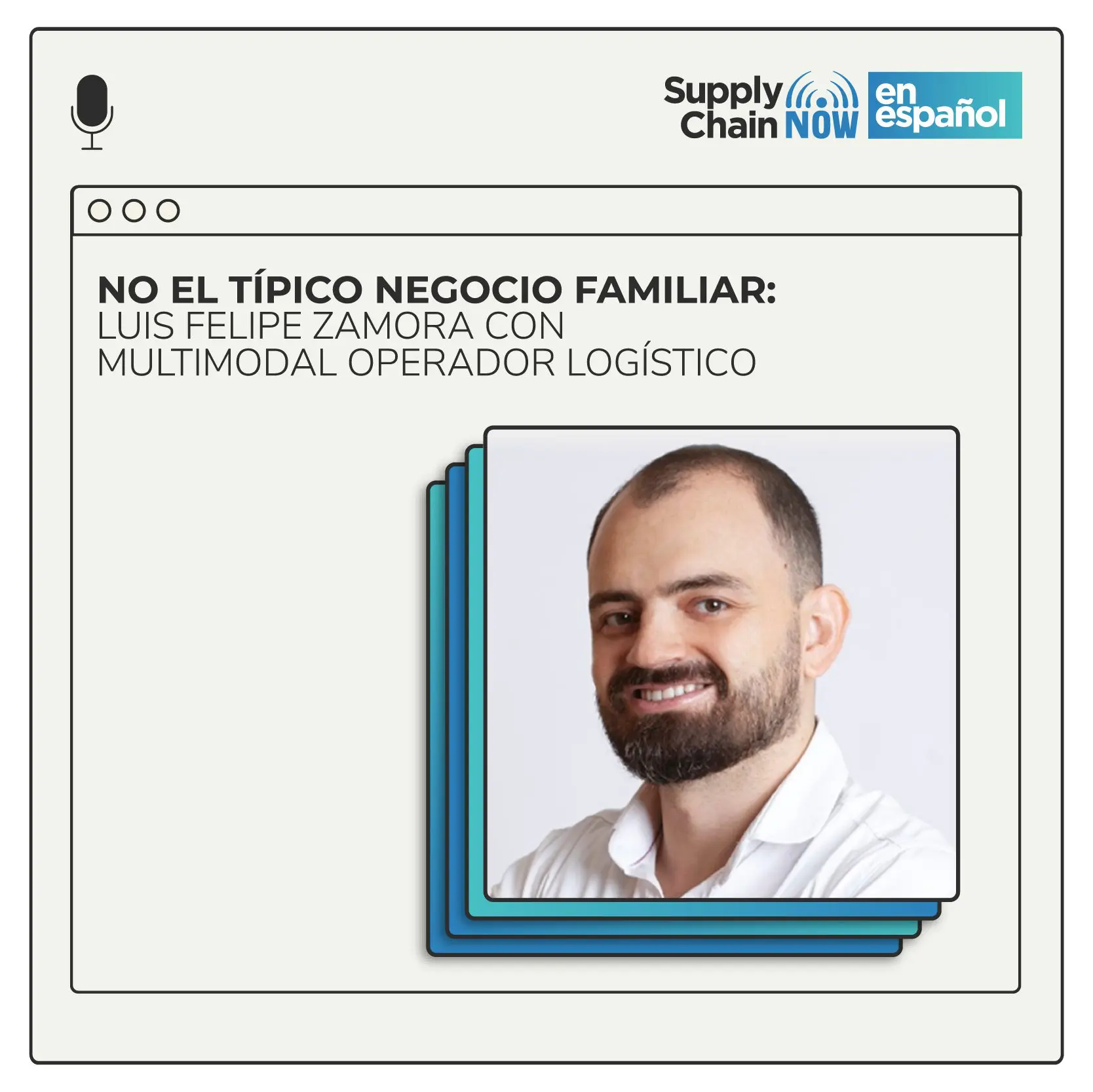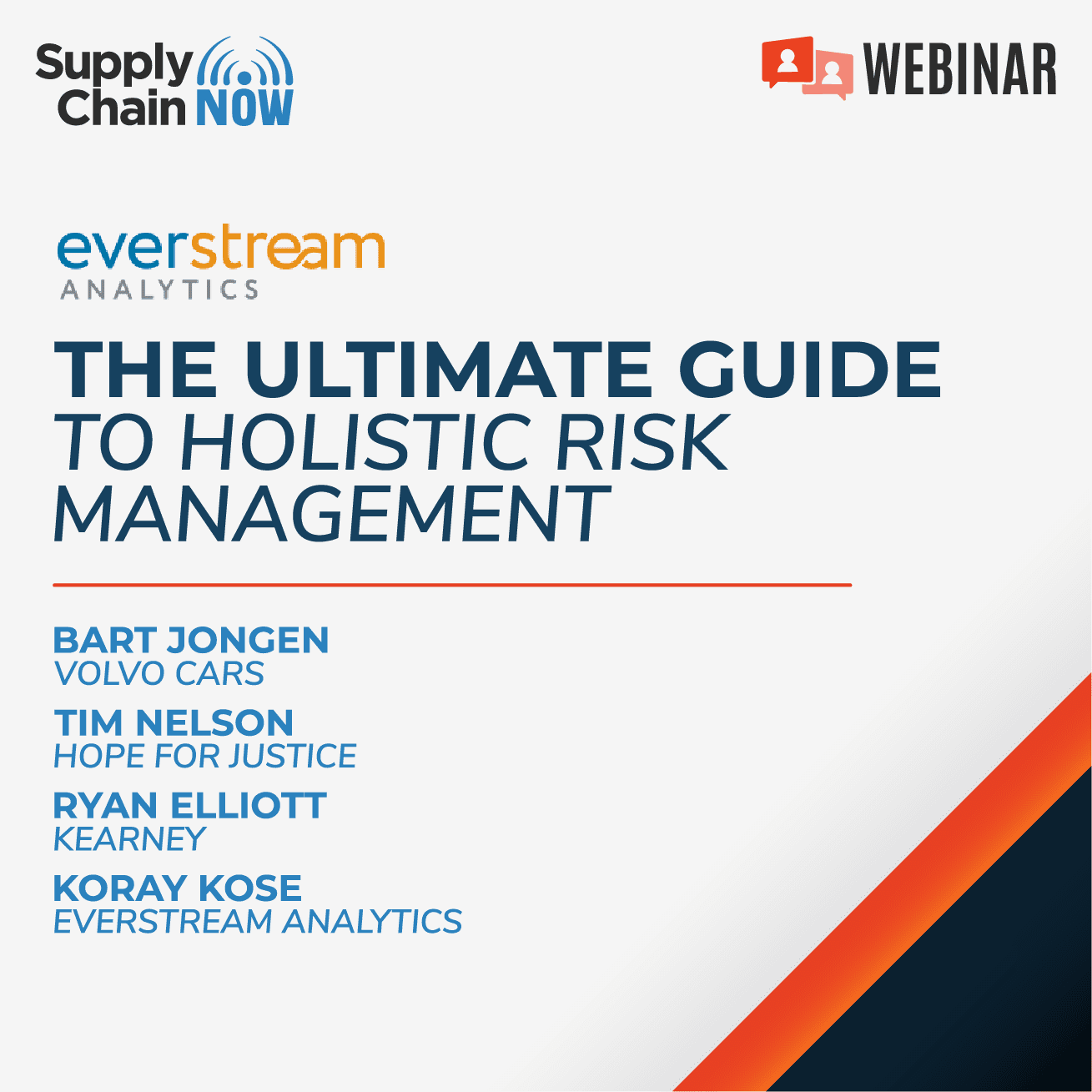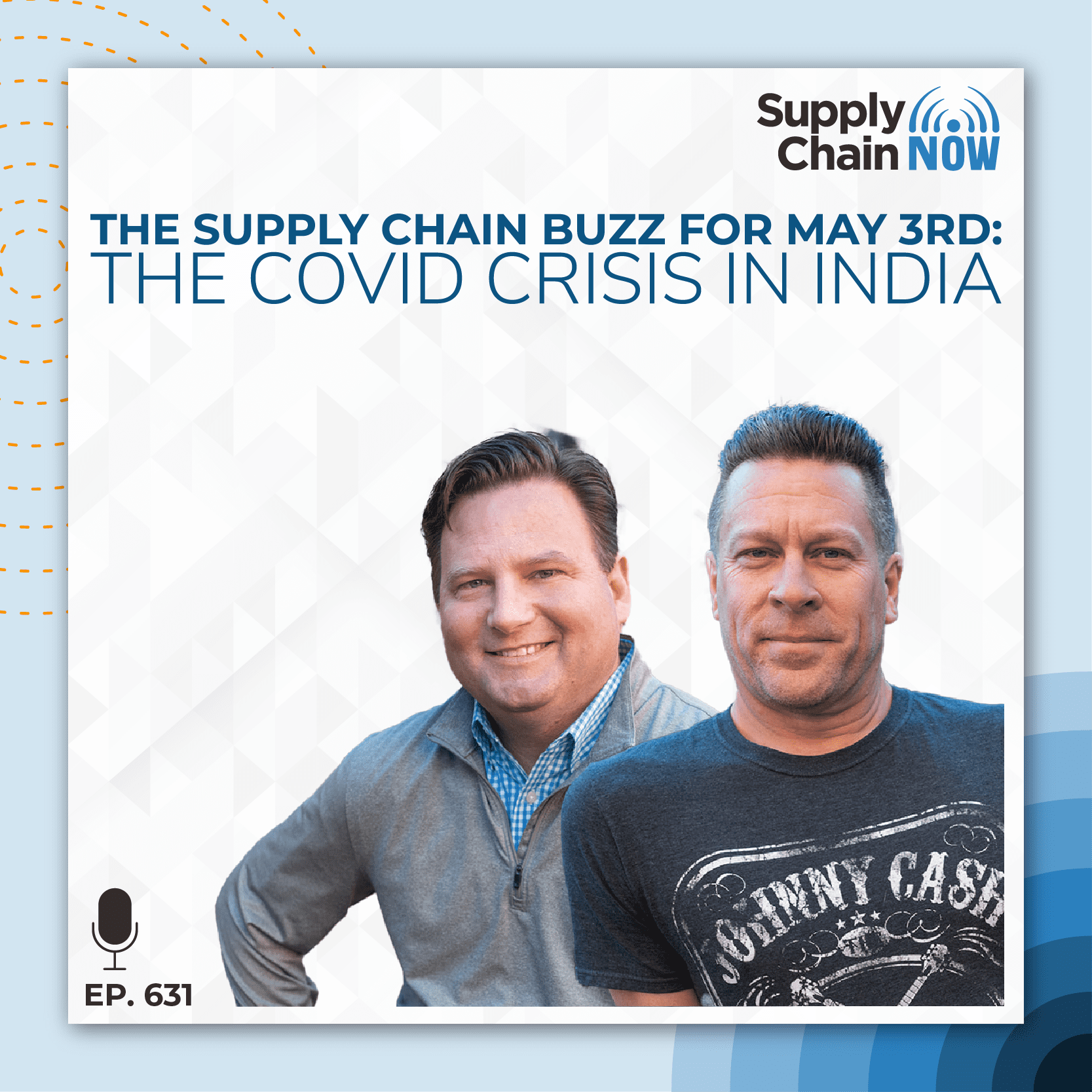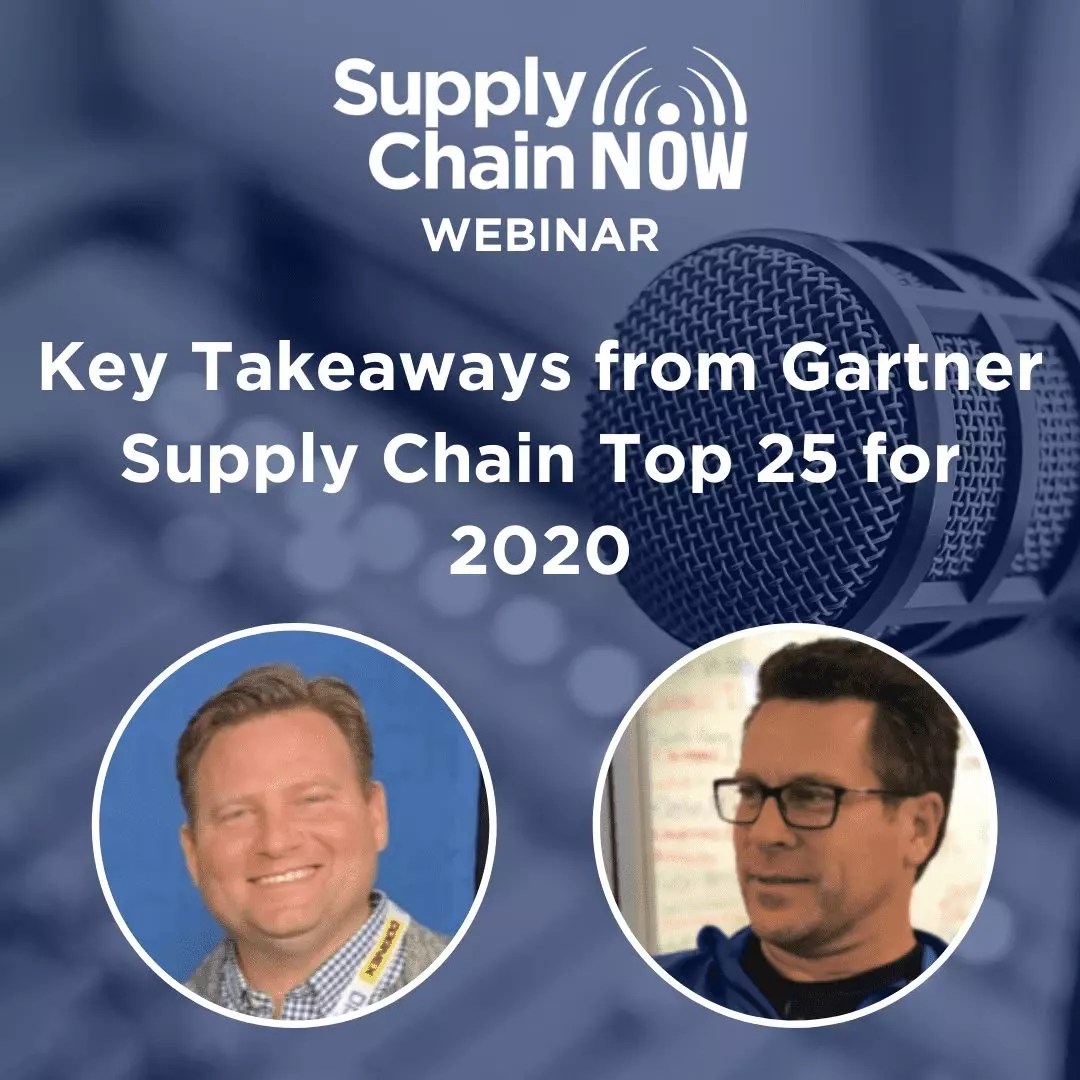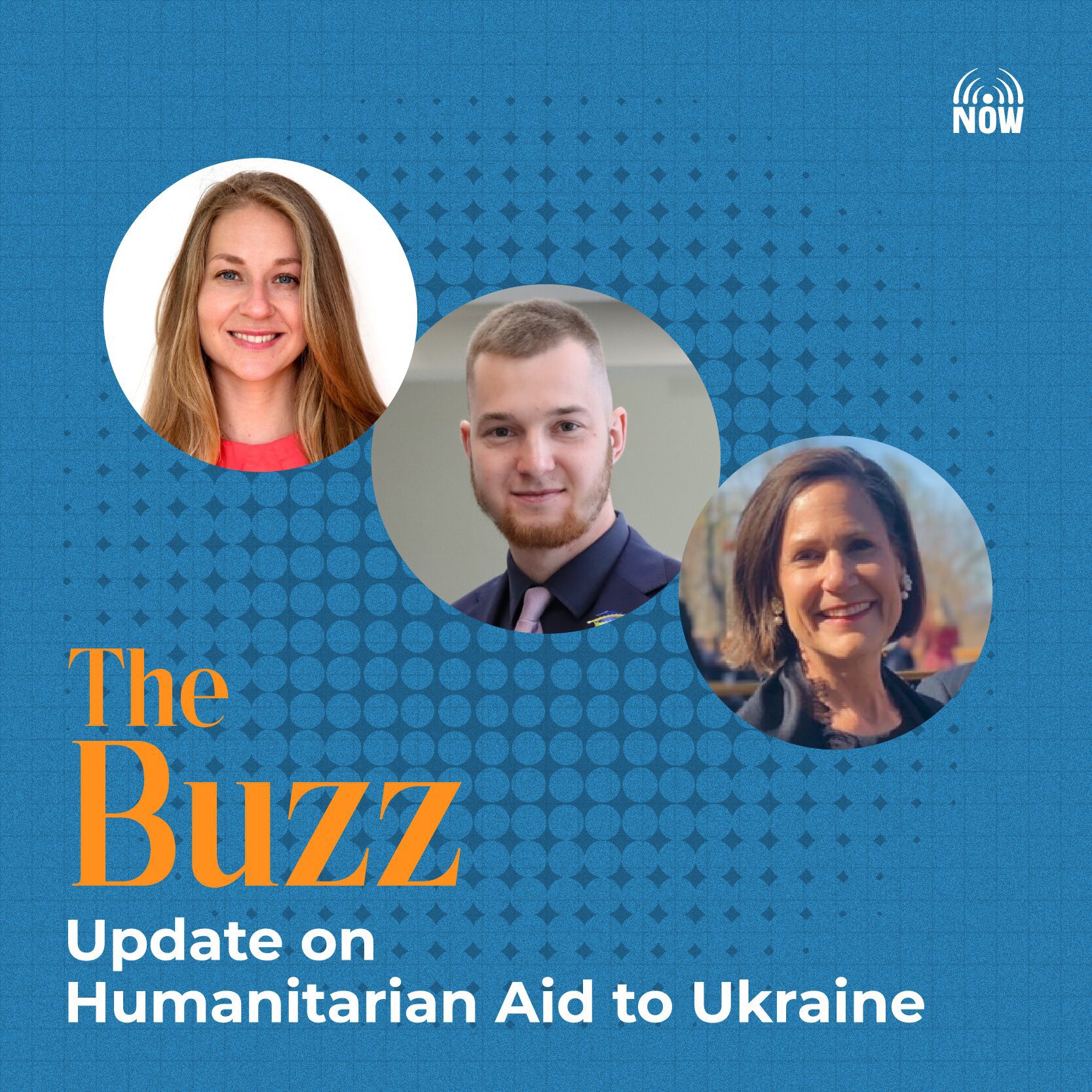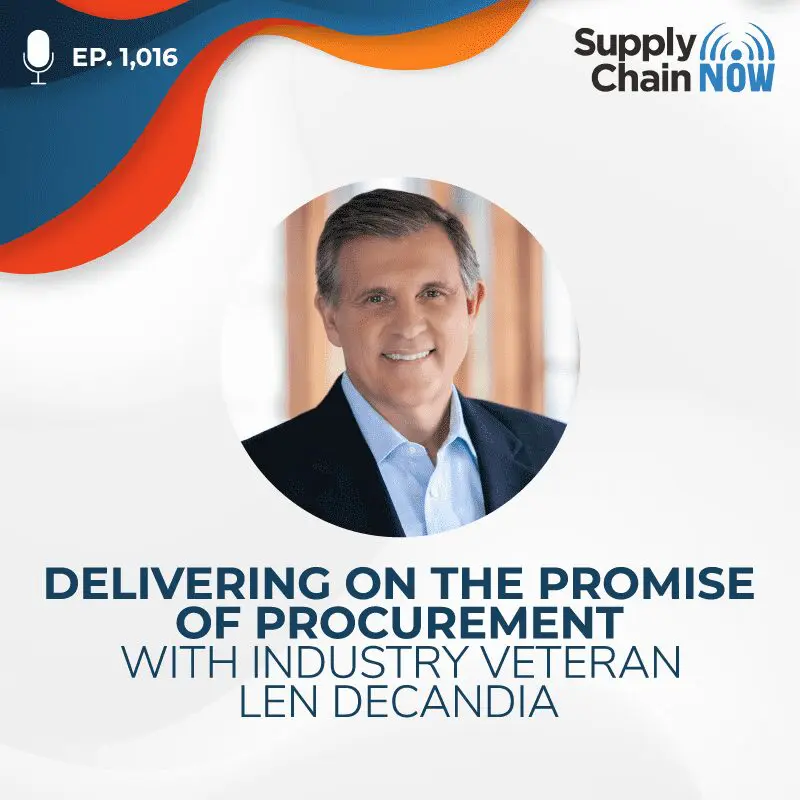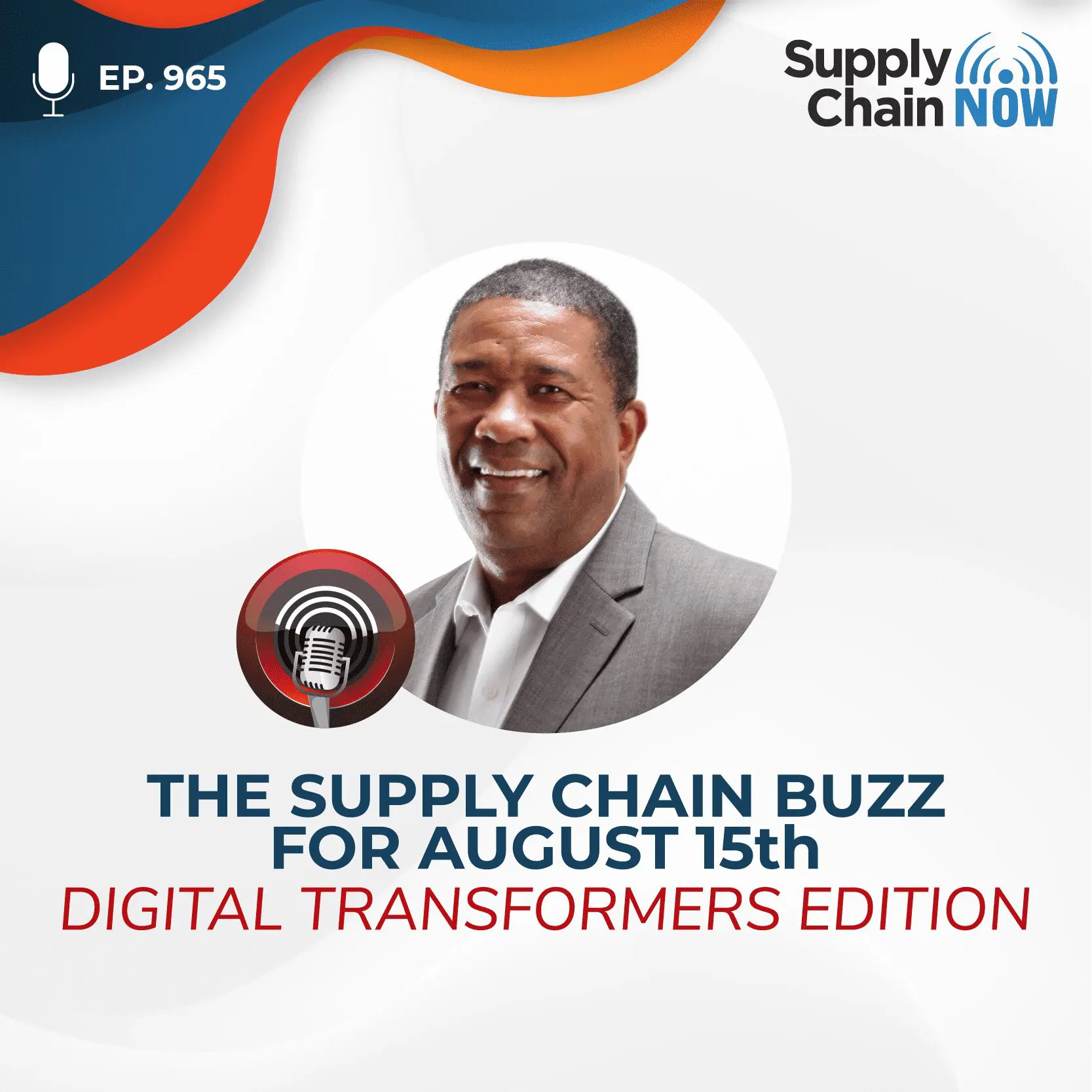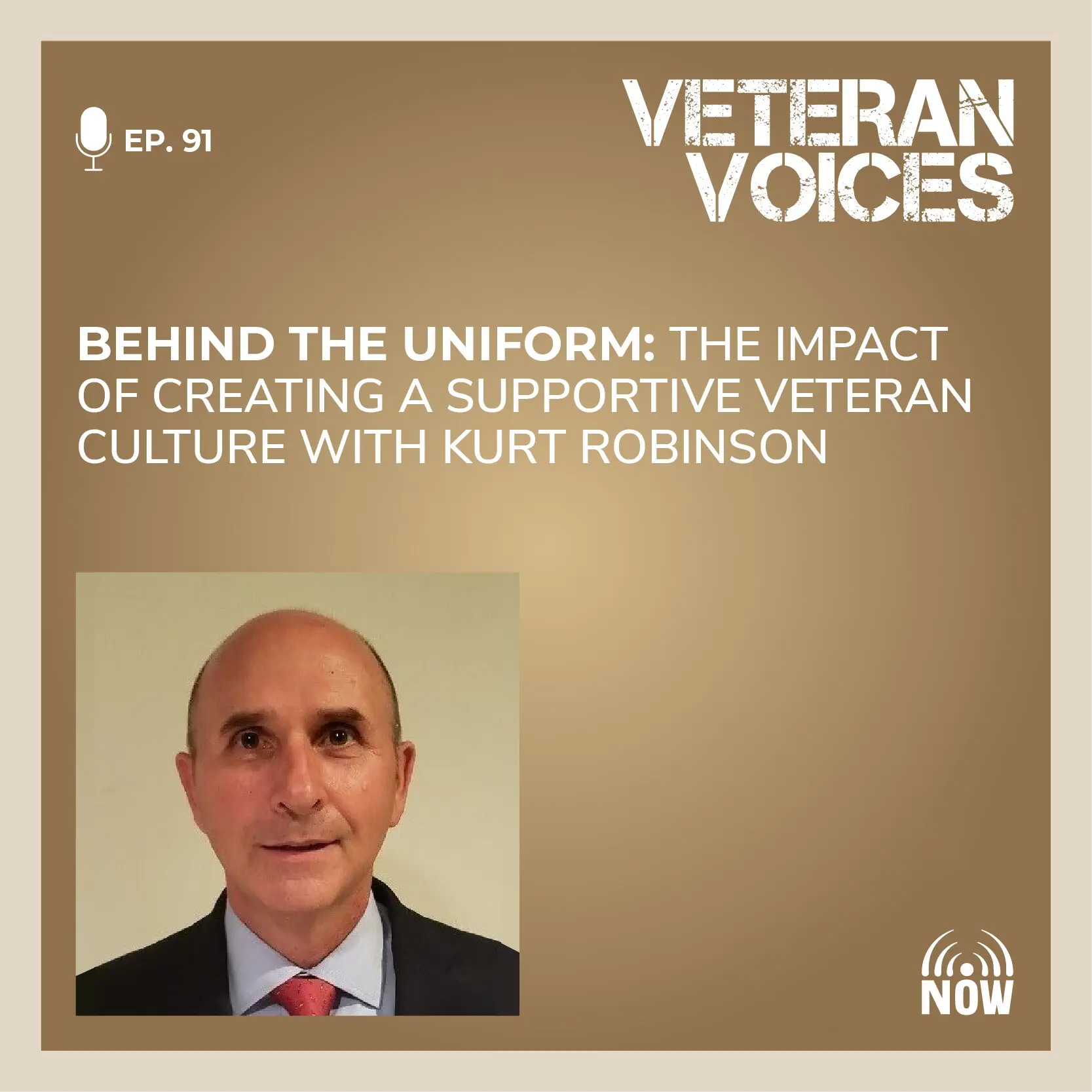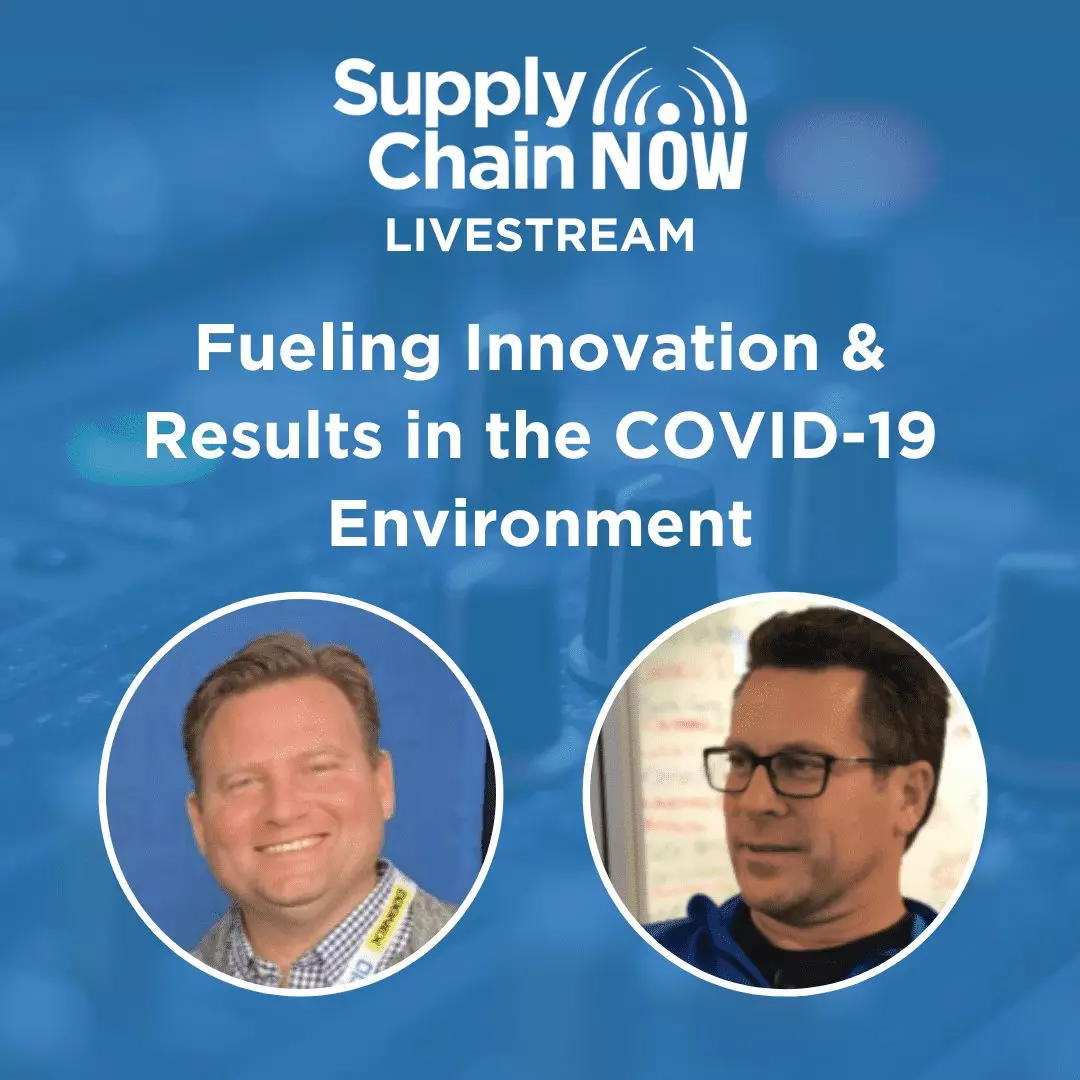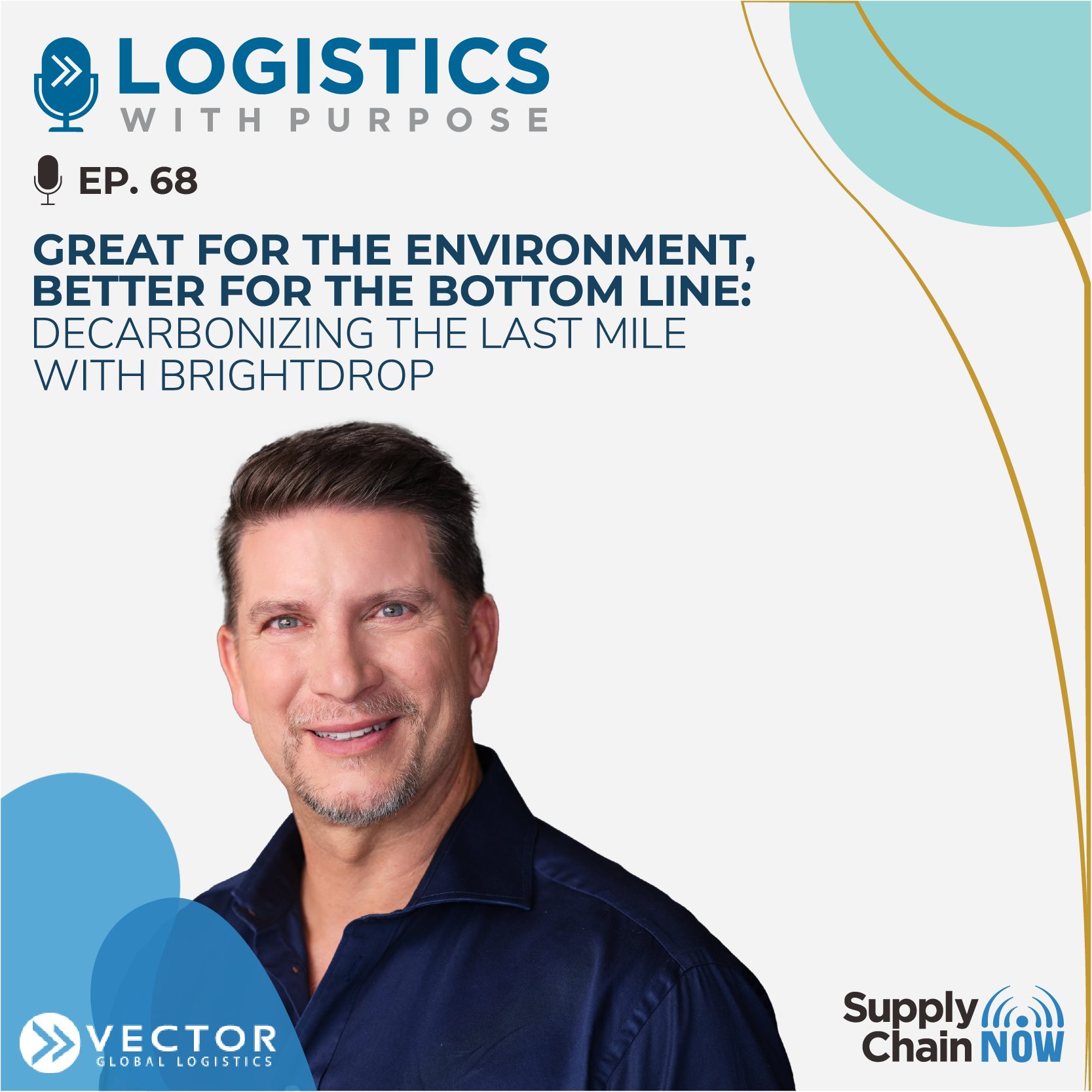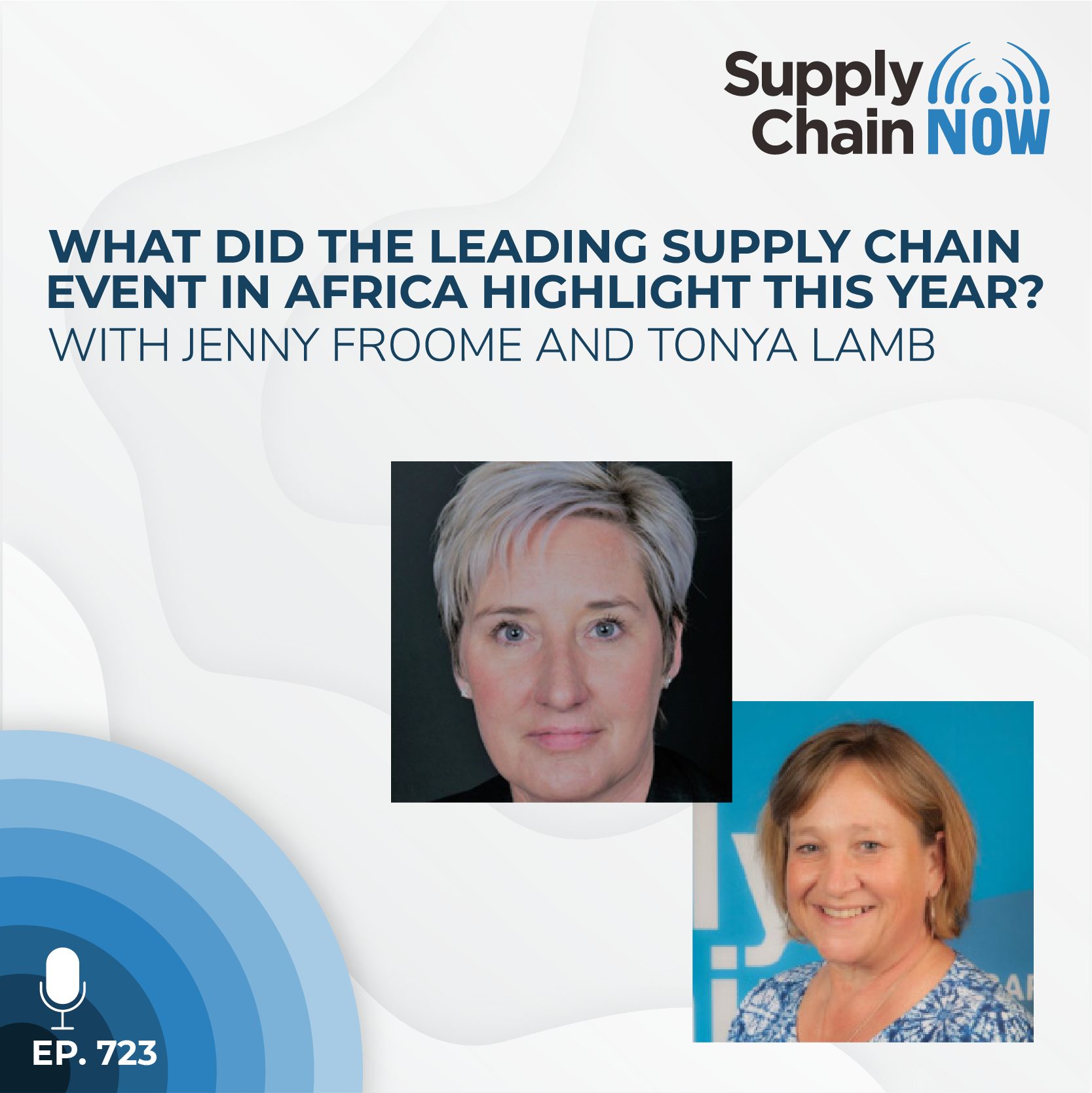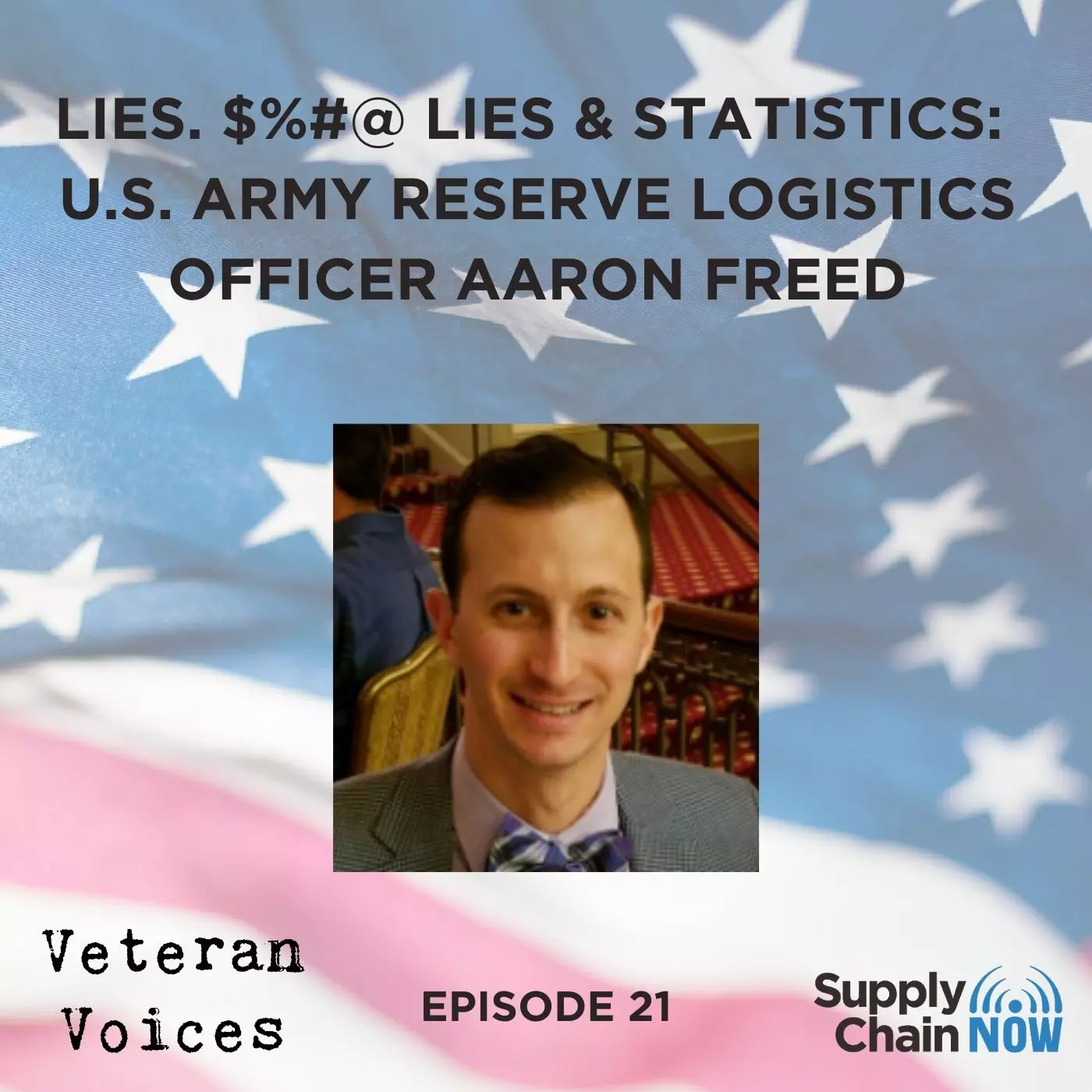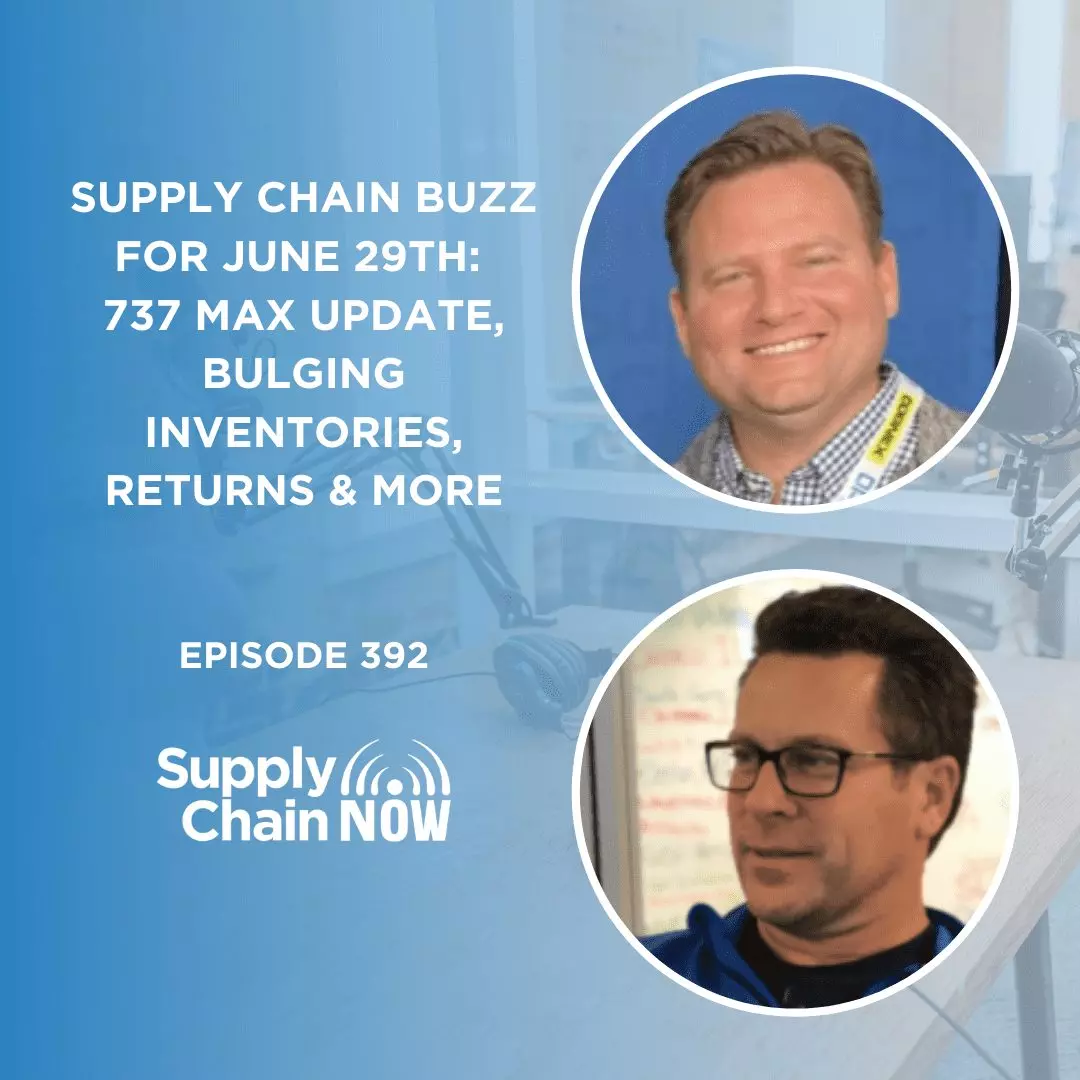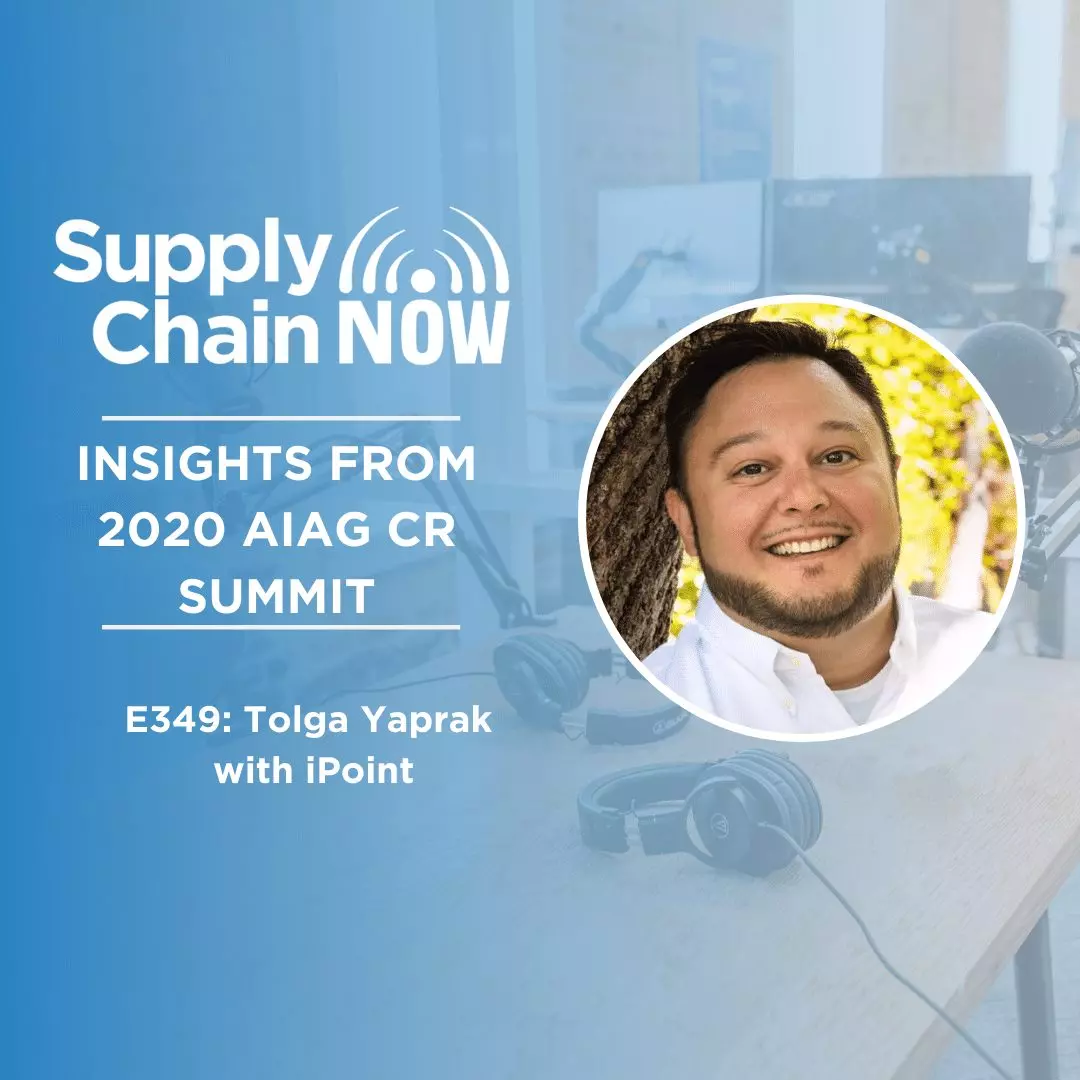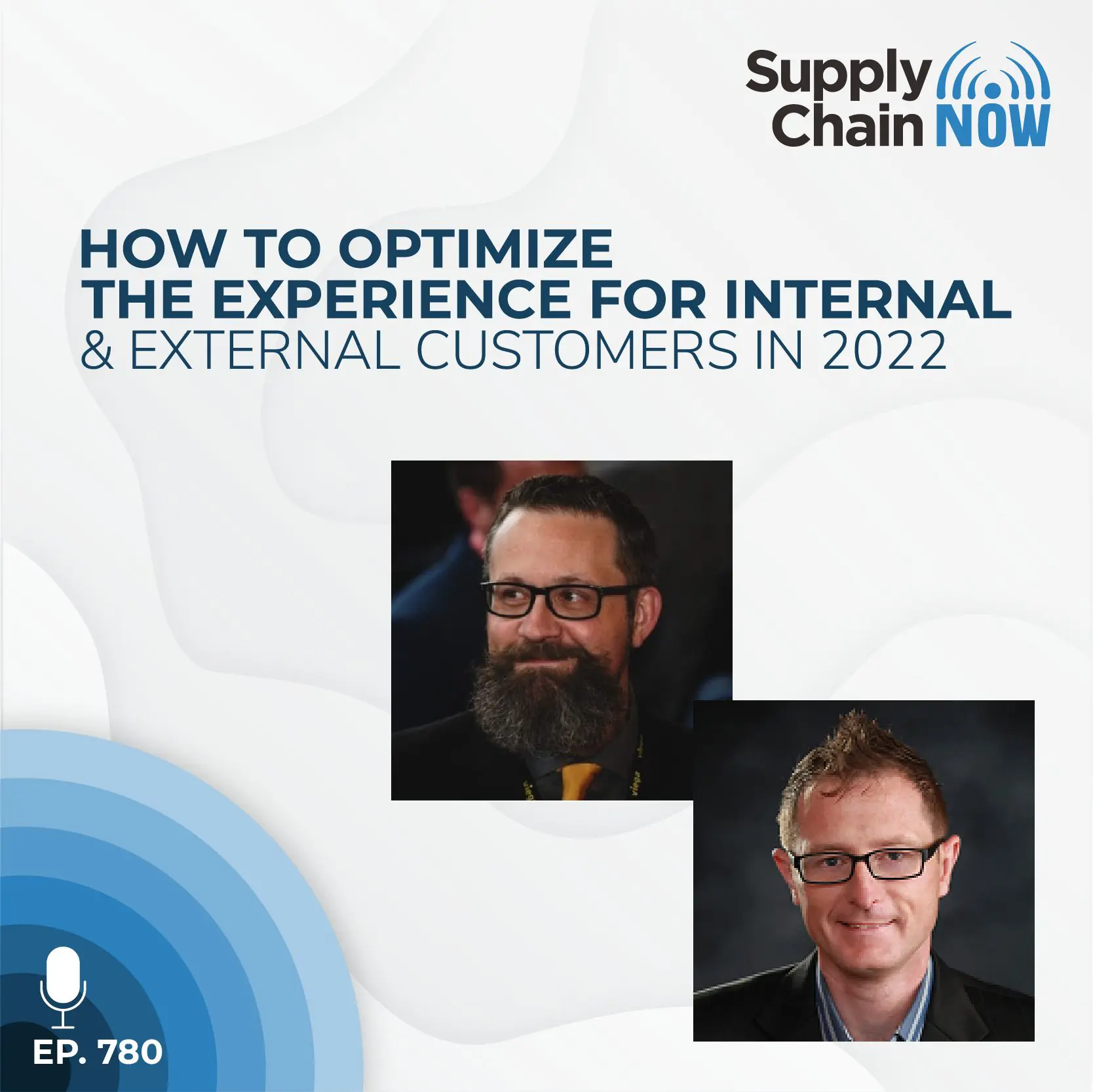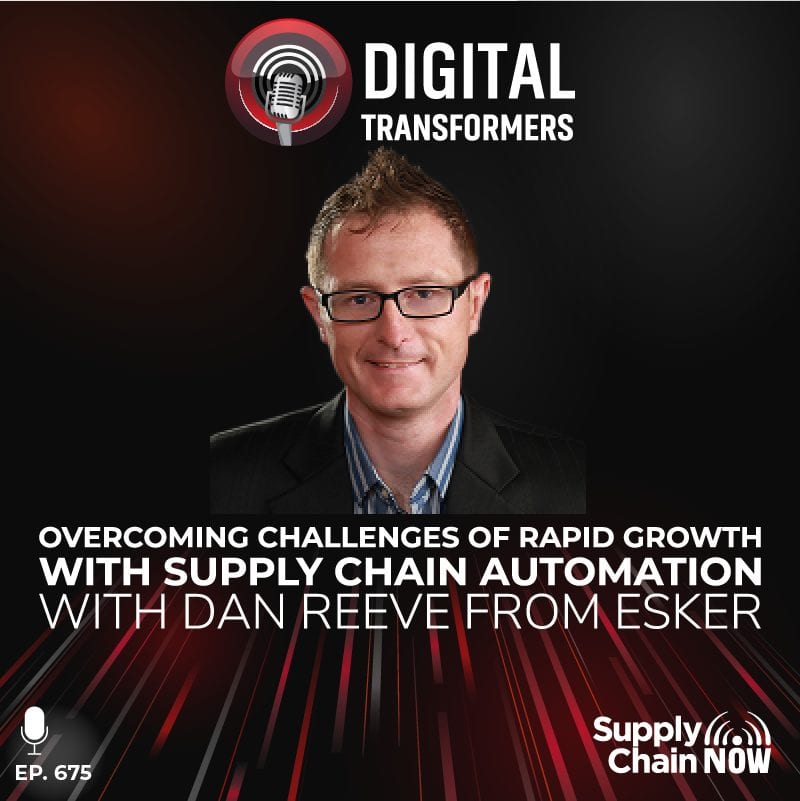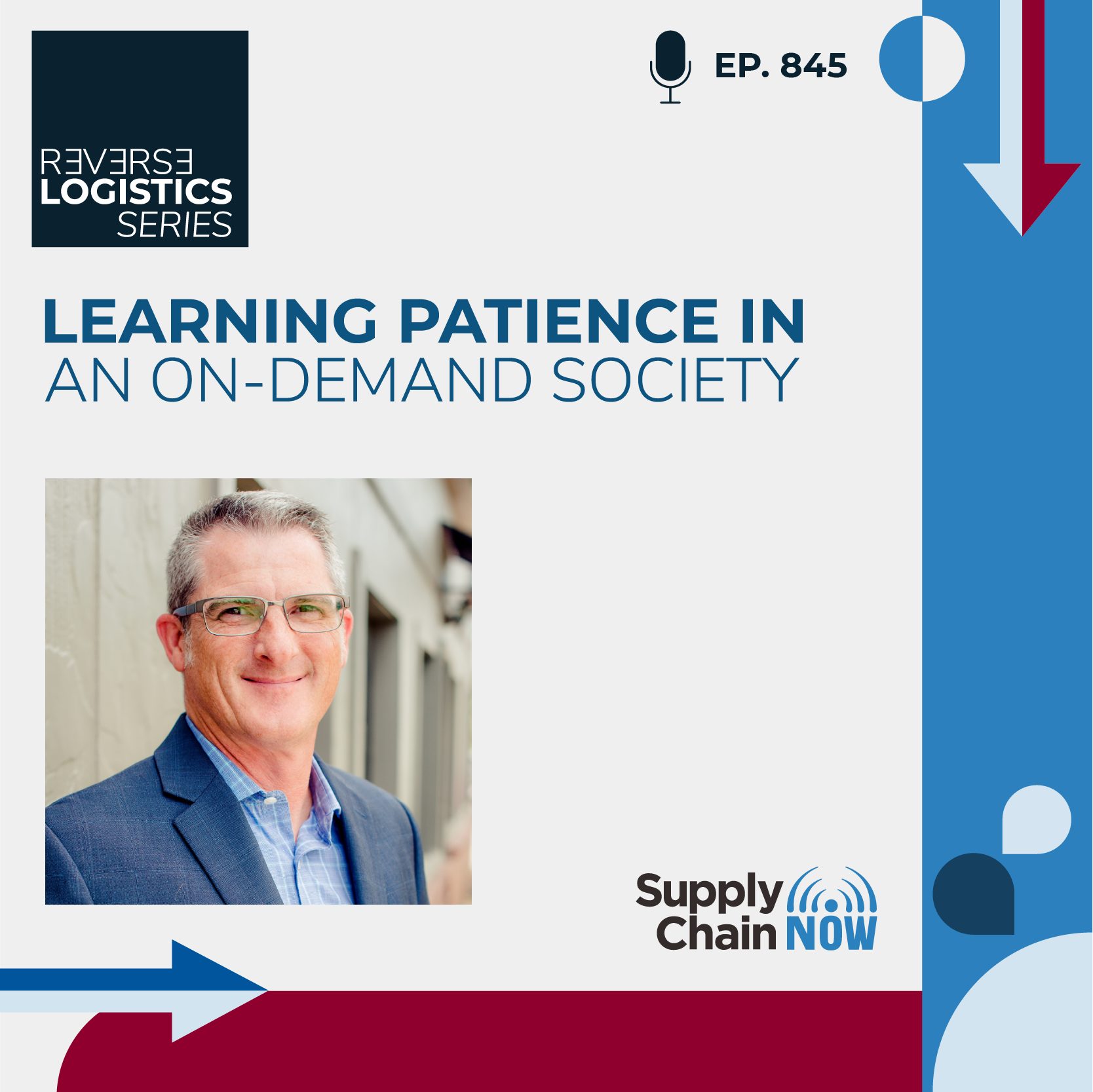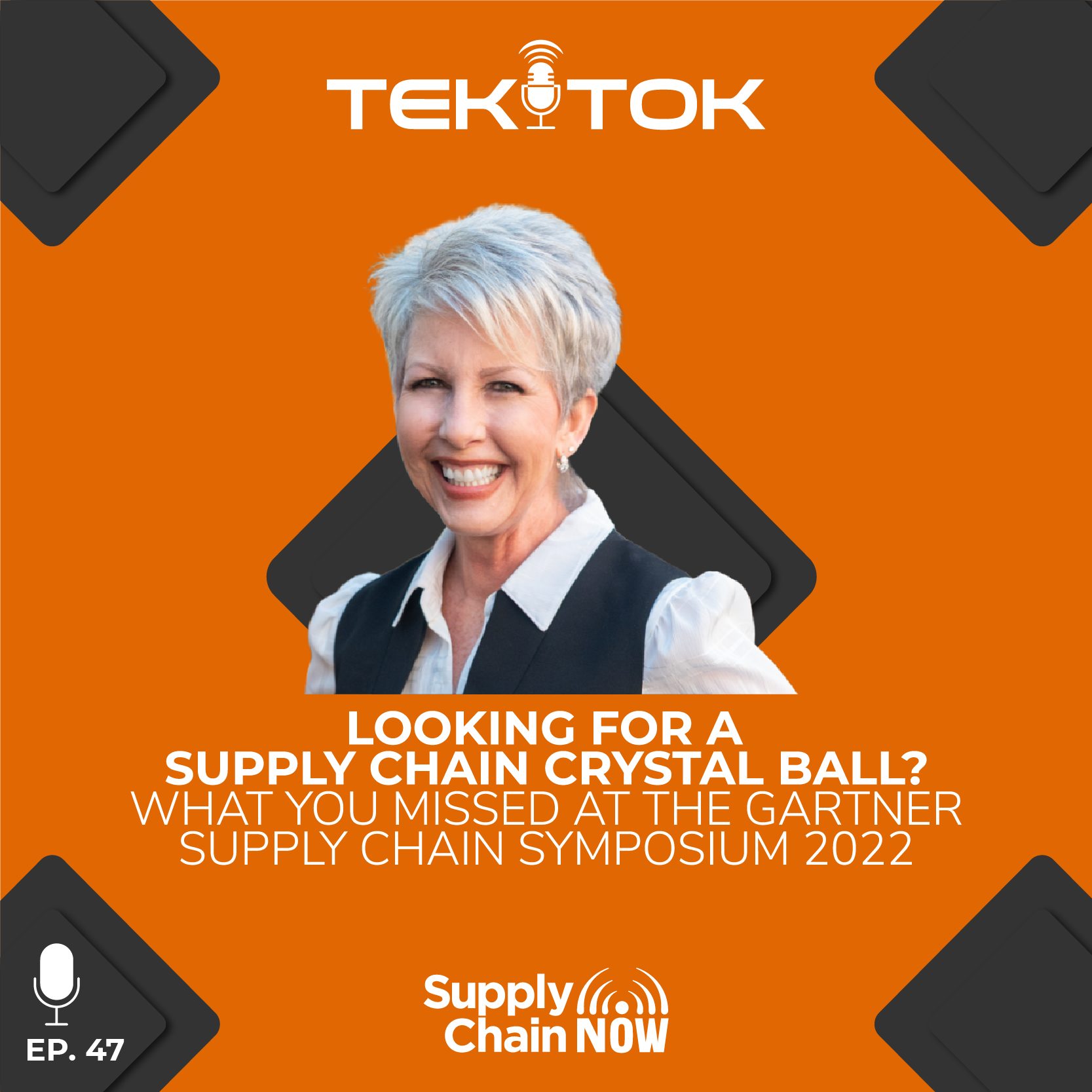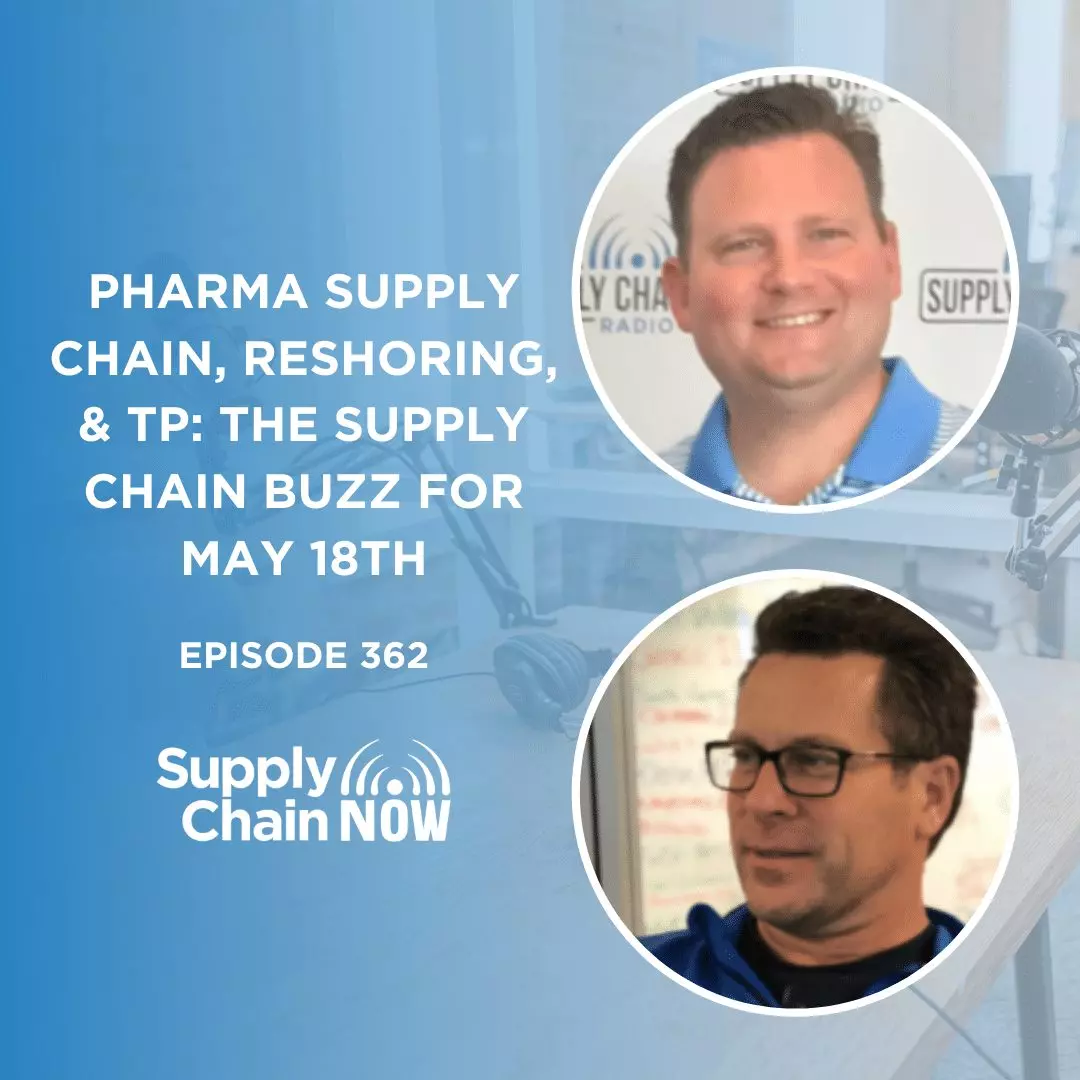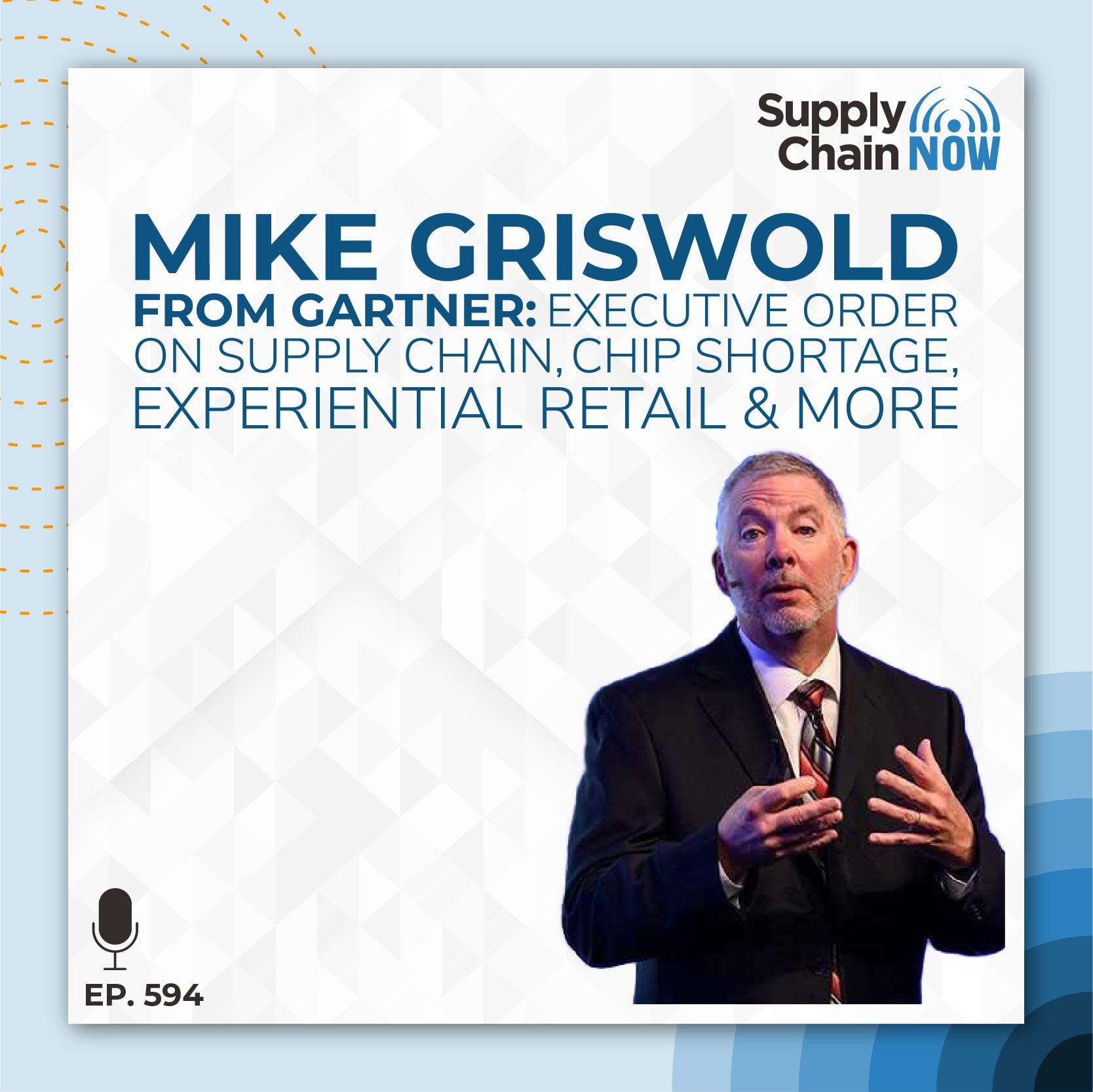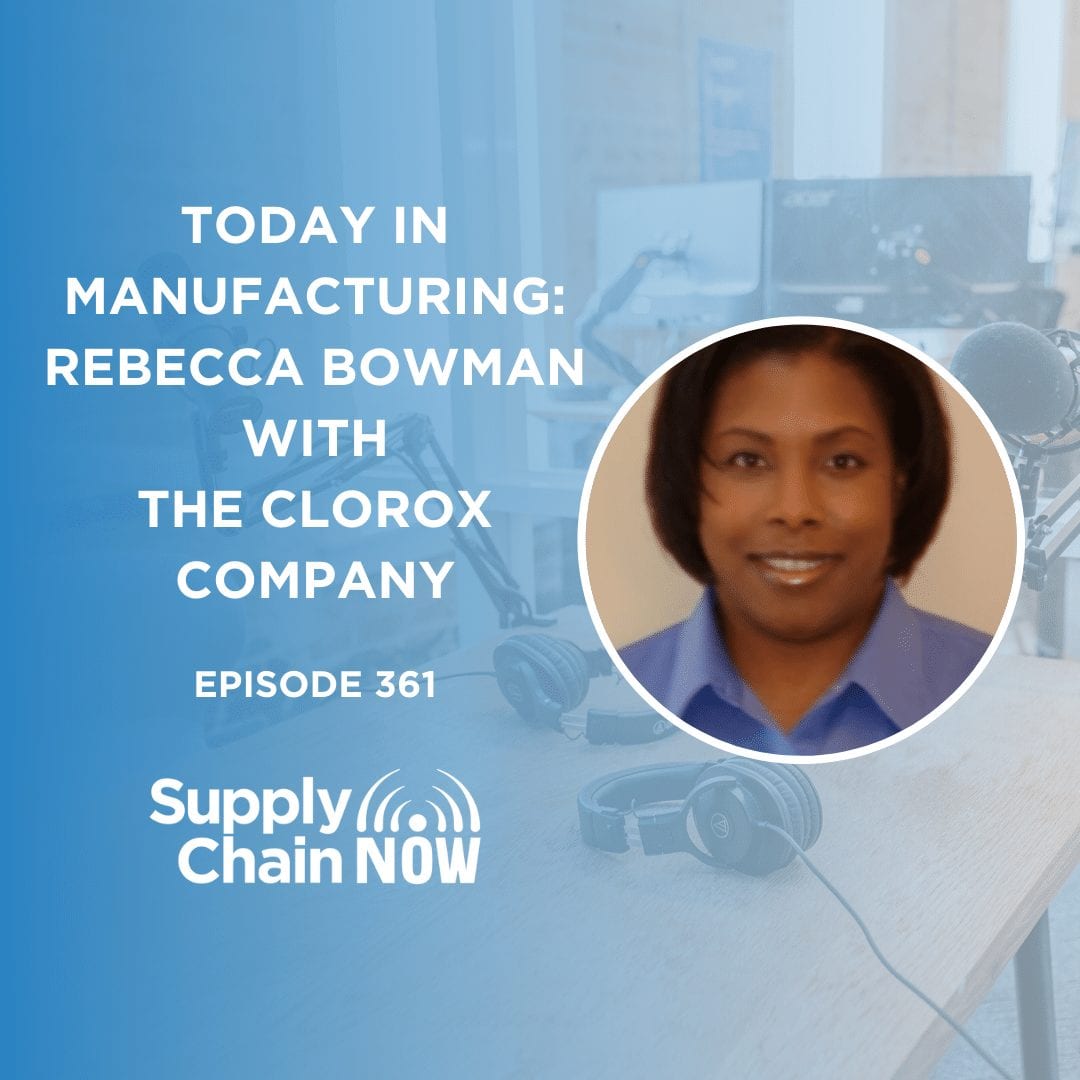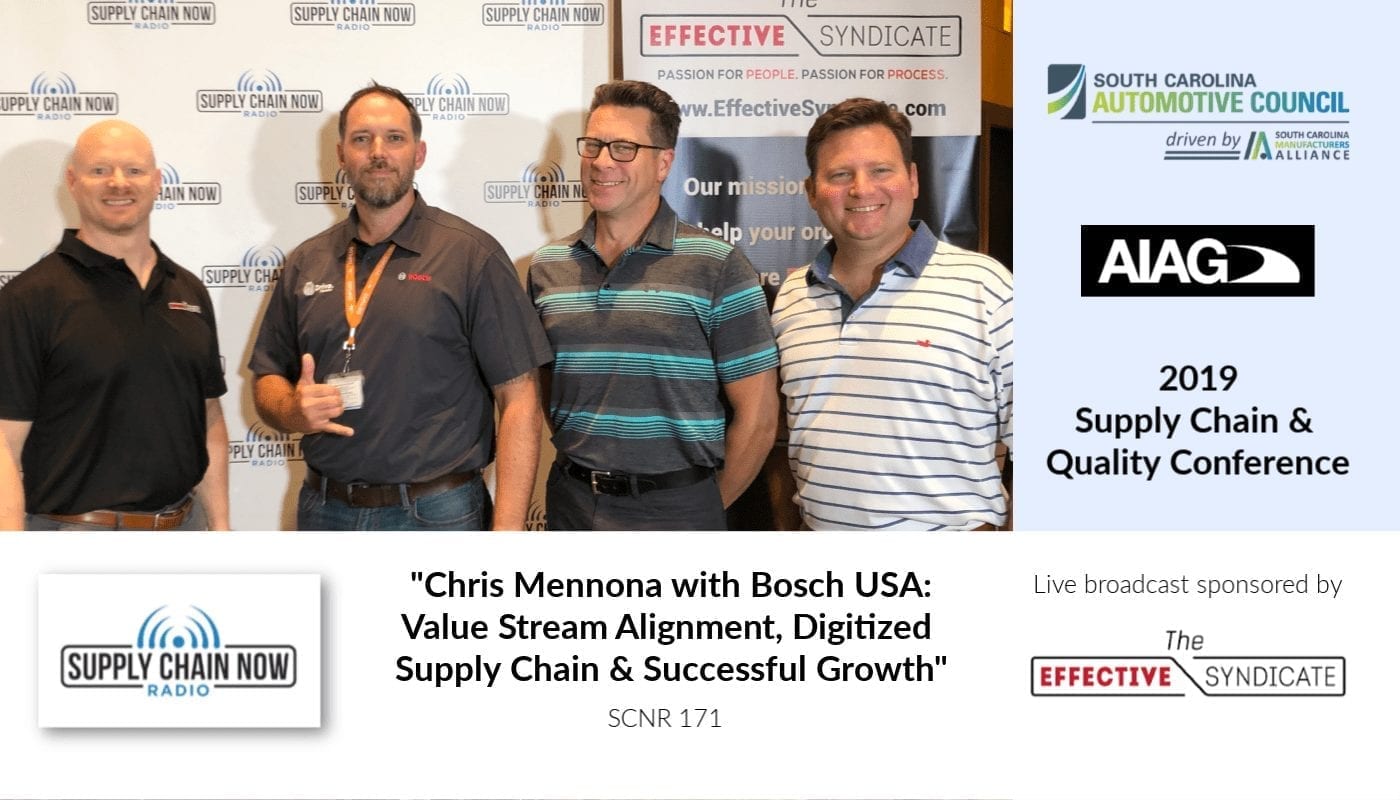
Episode Summary
In this interview from the SCAC AIAG Supply Chain & Quality Conference in Charleston, South Carolina, Scott, Greg, and Beau Groover of The Effective Syndicate welcomed Chris Mennona of Bosch, to Supply Chain Now Radio.
Episode Transcript
[00:00:00] It’s time for Supply Chain Now Radio Broadcasting live from the Supply chain capital of the country. Atlanta, Georgia Supply Chain Now Radio spotlights the best in all things supply chain the people, the technologies, the best practices and the critical issues of the day. And now here are your hosts.
[00:00:29] Hey, good morning. Scott Luton here with you live on Supply Chain Now Radio. Welcome back to the show. We’re continuing our coverage this morning at the AIAG SCAC Supply chain in Quality Conference in North Charleston, South Carolina. AIG, the Automotive Industry Action Group, and the SCC is a South Carolina Automotive Council. This conference is dedicated to the war, to automotive, and we’ve been spending much of our time meeting and interviewing with many of the leading industry thought leaders that are participating here. Big thanks to our conference broadcast sponsor the Effective syndicate for making our coverage possible. The EFFECTIVE SYNDICATE helps companies win by optimizing process and developing winning culture. You can learn more at the effective syndicate dot com. One quick programming note. Like all of our series on Supply Chain Now Radio, you can find our replays on wild radio channels, Apple podcasts, SoundCloud, Spotify, YouTube and wherever else you find your podcasts. As always, we’d love to have you subscribe to almost anything. So let’s welcome in my fearless co-hosts here today. Greg White, one of our standard ongoing co-host here at Supply Chain Now Radio Serial Supply chain tech entrepreneur and similar trusted about our trusted advisor.
[00:01:42] Back there. Greg, how are you doing? I’m doing great. I’m doing pretty standard. Scott, I say, oh, boy, what a Friday morning it is, right?
[00:01:52] Can you tell? Yeah, we. Absolutely. We’ve had a series of great interviews here. I think the number eight or number nine have really thoroughly enjoyed not just the passion around the table, but also the diversity of thought and kind of different angles that folks are involved in across and in supply chain. And then Beau Gruber, founder president of the Effective syndicate and co-host of our successful Leadership Matters series here on Supply Chain Now Radio. How are you doing? I’m doing perfect. We’re able even at less 10 percent than standard. Way better than standard. Now, on the last episode, we’re able to talk culture with Vector Global Logistics. And that was that was you know, we’ve we’ve kind of been privy to that story. Yeah. For my everyday years. Yeah. But that’s really neat to hear Maureen kind of advocate for and speak to it and be experience and be testimony to it. And I know that producers is gonna love it. All right. So this episode is and continue, I think the the interesting interviews we’ve had here this week. So let’s welcome in our featured guest, Chris Manana, Logistics, planning manager at Boss USA. Chris, how are you doing? I’m doing well. Thank you for having me. Absolutely. Good luck. Glad to have you here. And now you’ve got a lot going on, a lot of growth. And unfortunately, the we had some weather here last week. We saw we saw some some of the repercussions at the hotel, but least it was it was a direct hit.
[00:03:10] And on that note, by the way, we should have mentioned as on earlier episodes, Alan Ade. Yeah, that’s right. So if we’ve all seen pictures of what’s going on in the Bahamas and in other natural disasters elsewhere, there’s a great non-profit that we try to support as often as we can. Called Alan Aid ALJ in a D dot org and they’re nonprofit that helps corporate America leverage our supply chain infrastructure to get needed supplies to these disaster zones. And they’ve they’ve been doing it for years and they have they kind of do it counter intuitively. Kathy Fulton, there’s executive directors. Come on, let’s talk about some of the lessons they’ve learned from really practical supply getting supplies in these areas. It runs counter to what maybe would I’ll think for, you know, what we hear every now and again anyway. Alan Aid dot org if you’re interested in learning more, great organization is doing good work. All right. So, Chris, I know that you all have been here. You’ve had team members that have been presenting here this week. Correct me. Yeah, it’s really neat to see. We’ve talked about Norma. This is our first time at this event. We’ve done plenty of events, but it’s really neat to see some of the very recognizable name brand companies come out and share what they’re learning.
[00:04:24] Mm hmm. Yeah, exactly. So we’re here in Charleston, South Carolina. Like everyone knows. So Bosh has actually been here in South Carolina. I believe this is our forty fifth year, if I’m correct. And in that forty five years, the plant has grown from a couple hundred associates to roughly 2000 associates. Wow. So for Bosh, when it comes to manufacturing presence here in North America, the Charleston plant is the biggest facility. There’s also another facility in Anderson, South Carolina. So I would say here in the south southeast region, there’s definitely a large presence from the Bosch manufacturing sector.
[00:04:54] So we’re going to we’re going to ask you some more questions about Bosch in just a second. But let’s let’s let’s. Share with our audience Lu more information about you. Chris, tell us about yourself and kind of your journey to your current role.
[00:05:05] Yeah, definitely. So I’m actually from Charleston. So I was born and raised maybe four miles from here, right across the river in West Ashley. Wow. And I like that’s a rarity. They rarely make it even more rare. I grew up in the same house my mom grew up in. So now I’m definitely local. And like a local I spent 20 years ago, I spent a couple years right here. I tried and technical college like everyone did for my high school for a first time. What did you say? People call back in a day. We used to call it USC, which meant University of North Charleston. And it’s grown into to the third largest educational institution in the state. It always was and always will be. It’s a phenomenal technical college year for the region and also for developing a workforce, also for the manufacturing areas.
[00:05:47] So, Chris, you’ll get a kick out of this. We have Kathy and Bob on leadership team members here and try to take. And what was your tagline, Greg? We are we’re looking developing just like Penn State football, right? Well, we do well with t shirts and and but but talk about passion. They are. Yeah. See your point. Exactly. They’re serious about developing workforce and talent firing and support in industry, right?
[00:06:12] Correct. There’s been a long standing relationship between Bosch and tried and tech. And during the apprenticeship program, which I believe there was some speeches today, I believe, considering apprenticeship programs here in the region and also in North America. So we’ve been very fortunate to partner with Bosch or with try to take over the years. And on that program, I want to say, is one of the oldest here in the country. Yeah, yeah.
[00:06:31] Schuller, I think Vern Upton Apprenticeship Carolina was on show talking about some of the things they’re doing. So what took you so after you wrapped up here at Trident Tech? You spent a bunch of time and industry leading up to your current role with boss, correct?
[00:06:45] So I’ve started Bosch in 2008. I got my undergrad. I have a bachelors in science and international business from College Charleston sort of in 2008, actually as a co-op. So when I was a student working relationship, which I highly recommend to anyone in college, and you have the opportunity, get the experience with a company right from beginning while you’re still in school, you build those relationships. So when I started, Bosch actually stood at often Logistics engineering. So in that role, I was responsible for developing internal material flow and optimizing a lot sizes and flow together with high volume manufacturing. I think what’s interesting when we talk about Bosch manufacturing is it’s not so much distribution we’re referring to, but we’re referring to manufacturing lines that literally have cycle times of seconds. Some of them, you know, one or two seconds. So with that, when you’re making 30 million injectors a year, you’re really trying to optimize all material flow, making sure there’s no deviations as far as your supply. So I did that off for roughly nine years and various product line supports before moving into a leadership role. Logistics engineering as a group leader and in that responsible for all of the plant functions around Logistics engineering before I went to Germany on a foreign assignment. So Bosch, like many international companies, they definitely value mobility and associates willingness to, you know, learn other cultures and kind of learn other standards and actually bring what you know from your facility to other locations in the world. So I was fortunate enough in my family to move to Bamberg, Germany, for a little over two years.
[00:08:13] In that role, I was working as a Logistics process expert. So basically for new product launches, doing a similar Logistics engineering role, integrating new suppliers, material flow and new customers into the existing facilities there in that plant. Just in reference in Charleston, where about 2000 associates, that plant had roughly 8000 associates. Well, they’re very old, very large facility for Boston bombing Germany. And I did that for roughly two years and then returned to Charleston into the plant management office as a commercial manager. And in that role, I applauded the vice president’s concerning all things commercial and plant related regarding strategies, associates, macro views for the plant. So it was a really good opportunity, kind of learned the macro side of Bosch, along with all the different inputs that actually drive our business decisions from the local plant site and how that affects other locations in the world. Before moving into my current role, which I’m currently the Powertrain Solutions Planning manager. So that means I’m responsible for all source make and deliver activities for the Powertrain Solution division in Charleston, which is the plant actually to two divisions. Does the chassis Kevin P S is what you call lots of acronyms. So if I start speaking acronyms here for use. Yes. Powertrain solutions. Okay. SCAC cab and powertrain. So power amateurs is power trained is kind of what it sounds like. So these are the components that help drive the automobiles. So in Charleston for P.S. we actually make a a low pressure injector.
[00:09:44] Got to be 14, we make high pressure injectors. So this goes into your direct injection engines. We also make a high pressure pump. So if you have a high pressure injecting need, a high pressure pump to support the flow of the fuel, we also make diesel injectors for your larger. Vehicles say you’re coming. Twenty five hundred big Dodge trucks and stuff like that. Right. We also make subcomponents that go feeding into these entities sexual injectors themselves. Right. So you make the rails and everything. So just where they mount. So previously we actually used to have the real business here in Charleston. In order to free up floor space and to bring in the new products, we actually transfer the rails to another Bosch location. So it’s a partnership. And they see that a lot. In Bosch, we have one Bosch plant making one component shipped to another. Bosch Panther then uses that to make something else. And so on and so forth. So the rails are actually made in some way, Potosi in Mexico. And so we actually make all the components here. The injectors are shipped in to St. Louis. They finalize the assembly on the rails and ship directly to the end customer. And they’re also some injectors. We actually ship directly to the OEMs. So it’s important to know as we have a small aftermarket business, you might see with I know you’re advanced auto parts and stuff. You don’t get a dealer, but the majority of our business actually goes directly to the OEMs. Right.
[00:10:55] Let’s go now, man. So let’s talk about what with all that.
[00:11:00] Go on. Sorry, I was a lot more than that. Yeah, that is a lot.
[00:11:03] It’s embarrassed in modern day manufacturing, especially organization, as has been broad and complex as well as what you are doing. So how are you able to carve out a Libya time and come here today? What what brings you here and you and your team here, I guess?
[00:11:16] Yep. So it a variety of things. So there’s actually one of my team members is actually taking part in a conference for the last two days. There’s a couple of things that are kind of interesting for us. So one of them is going to be is how is the infrastructure, what are the activities going on here in Charleston to support infrastructure here? As you know, Charleston has grown exponentially in the past 15, 20 years. Right. There’s a lot of manufacturing coming to the area. So from my side, I’m really cares to see what’s going on concerning transportation, warehousing. What’s what’s in place to help enable real time delivery in support of the manufacturing areas. The other topic we’re concerned with is a talent development. You know, as we know with the manufacturing companies here in town, they’re primarily engineers. But there’s no engineering college here in Charleston per say. They have some portions of engineering at the Citadel. But the majority, the engineers come from, say, Clemson or Georgia Tech or Penn State or up north. Kettering has an example in Michigan. So really from the talent development side, both on the exempt level and then also for the for the shop floor associates work, we find skilled labor. What is being done to actually help make sure that, you know, we have the proper people with the proper skills to bring us to that next level. As we move on.
[00:12:22] What’s interesting, go back to your first on the transportation side is we had Suzanne Suzanne Dickerson with the South Carolina Council on Competitiveness on one of the last interviews. And she talked about 60 percent, 60 percent increase in transportation infrastructure. By what year was that? I’ll take a note at 20, 20, 40, 0 4, 2040. We were 60 percent increase.
[00:12:46] We were really listening carefully, obviously. So when I heard a lot of all year notes. Yeah. Yeah.
[00:12:51] But that is I mean, we all know what it goes in now. And we all also aware of some of the shortages and gaps where area, not just on the driver side, which is of course, this is National Truck Driver Appreciation Week, but also on the on the skilled side, as you were alluding to, diesel mechanics and in Maine as text other folks that keep things moving, retract the.
[00:13:12] That’s that’s it. That’s an important port topic. And one thing about me that I guess not everyone knows, my father was actually a truck driver. So you can say Logistics has been in my blood. So I’m very sensitive to the workload that, you know, these these people go through. It actually helped make material move across this country. So I’m really kind of curious to see what developments are in place for that. For one another example you mentioned was weather last week. So you can imagine whenever they reversed all of 26 every lane leading out of Charleston, the struggles for the drivers to figure out how can we still get into Charleston on Monday and Tuesday to start expediting freight out. So there are there’s a lot of complexity when it comes to transportation and manufacturing and especially the region freight point.
[00:13:48] And, you know, we. So we had earlier this week, we had two transportation executives on a special episode, Derrick. You know, given the week that we’re in and both of them, we’re talking about different strategies for not just recruiting, but retaining and really engaging your truck, your your professional truck drivers. And one of the points that came out of this, Greg, if you remember, is despite all the automation and despite all the autonomous trucking, all that stuff, which is is slowly but surely, you know, moving ahead, these folks in these cabs that are driving these trucks. Ah, ah, ah, ah. Proactive problem solving. To your point, if they know, you know, something’s going to happen, Louisville, Kentucky, and they interact and they’re identifying it ahead of time. Correct. And they are they’re doing things at that right now. Machines obviously can’t do. And that type of experience and expertise in these cabs make these folks and I mean, obviously are valuable, but it’s such a huge asset to the business.
[00:14:42] Well, and they’re they’re the frontline for so many companies. Right. I mean, if you’re in the food or food service distribution organization or beverage industry there, they’re essentially the customer rep as well as the delivery person. So, you know, you’ve got to drive a 50. Three foot trailer around in. And then you’ve got to be nice to the manager. Right. Right. Just made you wait for hours to and that to get off load, right. So that is where a lot of soft skills and and, you know, management human skills.
[00:15:16] Yeah, right. That’s where we get better as as companies. If you have seen this on social media, there were there was this been a few months back. There was a driver check in. Was a handwritten note on the check in desk at a manufacturing plant. And it was the rudest note that was sent. It was meant to send a signal to drivers about getting there early or getting into late. Don’t ask any questions, just this needless negativity and lack of appreciation. And while we’ve seen some companies meaningfully get better at that, we’ve got a long way to go right now.
[00:15:51] I would I would agree with that. And that’s that’s something really that from a culture aspect, we really try to push from. From our side, especially within the plant. And it’s something I repeat to my team. And I and I learned it from other people. It’s not derived from me. But really, everyone everyone goes to work for one goal. They want to do a good job. They want to be successful. They want to feel they want to leave. Finish the day. Feel like they were appreciated. No, I had an impact right now. Doesn’t just apply to the people within our four walls, but also the people that come into our facility to service certain needs and certain requirements, whether it be a truck driver, whether it be a janitor. So that’s something from the culture side. We take very important and I personally think it’s everyone should be aware of. Yeah, well, produce value and be valued and people can be everybody really happy with their jerai Greg White. Well put.
[00:16:33] So one the question that we always ask him is kind of what? What’s keeping people up at night? Yeah.
[00:16:38] So just thinking about your experience in your purview of the Supply chain and then the production process where a couple of trends that you got your eyes on, you’re watching, you’re aware of or you’re worried about.
[00:16:49] So there’s a couple of things. So right now I would say it’s two that really kind of stand out. One has to do with the the inbound material flow. So what’s going on globally concerning inbound transportation, the reliability and also the transparency as far as where where our goods, if it’s supposed to be seven days. Is it showing up in seven days or is showing up an eight? Any deviation inside, you know, a planned transit time as an example? The only way to buffer against that is through Singleton strong inventory. It’s all inventory and everyone hates that. That s word. Safety stock. Right. So any transparency we can have concerning that inbound transportation network? And as we know with globalization, you have some suppliers are two miles down the road. You have some suppliers that are two oceans away. So when you start talking about an airfreight part from Thailand, it doesn’t just go from Thailand to the U.S. There’s a variety of cross docks, other hubs that are actually bringing that material here. You have the risk of damage. You have the risk that you’re getting lost in everything concerning damage and loss. It all affects the bottom line of the company. And also for my side thinking of production. I’m not I’m thinking how is it can affect the assembly line at these unplanned changeovers? Is this going to affect the overall efficiency at the line? How is it affecting the actual how.
[00:17:59] How are we how much it cost to produce are in good. So from the globalization piece and inbound transportation, that’s something from my side. That is I don’t say troubling, but it’s something that we definitely keep an eye on. There’s been a lot of work from Bosch globally concerning this and also from the plant side. Another topic that I would say is very important has to do with the talent development. So that’s one of things we talked about before. Yeah. So I also have my master’s in industrial engineering from Clinton University. So one of the things as I see that I that I really learn a beginning, I said, you know, OK, I find it fascinating. Is it really necessary? But from my side, I need Logistics professionals who have analytical abilities to look and really kind of quantify what these deviations mean, whether it’s inbound transportation, whether it’s production efficiencies, whether it’s demand fluctuation from my customers. So from my side, all this stuff, if you can really quantify with a logic that’s repeatable, then you’re able to actually work on problems and you’re actually able to find sustainable solutions. So for my side, really, in today’s environment, you know, like everything cost Froome the world. So we’re trying to do what we can to help quantify what a deviation is driving up costs and then work on solutions to then eliminate those.
[00:19:07] Can also listening to you talk, it sounds almost like a plant manager. Right. So I know that you guys, you and you probably work hand in hand.
[00:19:15] Just had a meeting 30 minutes ago. You’re looking at the same thing.
[00:19:19] You’re worried about the impact. Yes. The cost. Is it going to cause more change over select your thinking like that instead of thinking about how do I get the parts into the plant? Of person is awesome. Yeah, it’s great to hear. Culturally, that’s that’s the right way.
[00:19:31] So one of the things we have in our facility, not to a drag on a plate. Is this what what our audience craves? So we’re one of the few facilities who actually implements kind of value streamline organization. So in typical typical plants manufacturing, what you see is I was getting excited.
[00:19:45] You like preaching to the choir. Right.
[00:19:49] So you’re going to have, say, you’re Logistics apartment, your quality department, your engineering department. And they’re all kind of separate these silos. And I think people are familiar with these strategies. Yeah, well, we’ve done. I would say roughly 10, 11 years ago it really work on trying to streamline the organization. So you have a very strong leader who for us, since we’re manufacturing plant, is typically the manufacturing director, whoever, whoever is the head of that manufacturing product line. And underneath them you have all the functional experts. So in that there are members of my group that are a part of that base Froome line organization. The point of that is to help maintain you want to have your functional excellence within your organization. So within Logistics and planning, I need the functional experts and they make sure they’re working on things that are key for us to be successful. But on the other side, from the vertical side, you have to make sure you’re focusing on the goals that’s going to make the plant successful, because if the ship goes down, everyone goes down together. So we have to make sure sometimes there’s conflicting KPI or key performance indicators. You want to make sure everyone’s moving in the right direction.
[00:20:43] Yeah, I thinking Lu, I’d love it to our audience. Shows you a beer to our audience.
[00:20:53] You could probably hear all the best practices being thrown around the room here at this conference. We’re in the thick of things. So, Greg, we like to also kind of look around the corner.
[00:21:01] Right. So this is this is sometimes tougher, folks. But if you think about it, you if you have to look into your crystal ball, I love the analogy of that. But if you have to look into your crystal ball, any bold predictions for the future, any anything you see coming down the pipe for South Carolina, for Bosh or like lightning general, I could maybe say, too.
[00:21:23] So there’s a positive and negative. I’d say a challenger wants a negative at the challenge. So that just saying that they’ve been challenged, that they lead to opportunities, right? Yeah. So one of the positives I see so I know we just had a Meg Lanza, who’s our boss production assistant director. She gave a presentation concerning Industry 4.0. So it’s really connected energy drink. Well, one of the trends that I see that I’m super excited about is actually the connect to Supply chain, the digital life supply chain. Nice. So within a facility, we’re constantly working on these smaller industry 4.0 solutions to help visualize all the technical engineering data from the lines, really tracking all of the key variances so that we can optimize the lines. But the same time, there’s a lot of work being done concerning transportation material flow for lack of a better term. If you call an Uber right now, you know exactly where that Uber is and you’re writing for it. If I want to be able to in the future be able to order a pallet of goods from, again, Thailand and see where is that pallet of Gates live real time throughout the world with that information.
[00:22:21] What it does is not just dog and pony, but then you can actually statistically determine, OK, is it going to be here in time? Right. Amount of safety stock is required. You know, how is this going to affect our in line with production? So it’s not just what the inflow material, but the overall supply chain is getting digitized. It’s slowly happening. You see you see it with different conferences. I’m sure you’ve heard about it in different other podcasts in the news. So from our side, Bosch has put a lot of work on developing a variety of solutions that are very Bosch specific names like Track and Trace and Pro Con and if plus. But all it really is, it’s connecting the supply chain. So that’s that’s a trend that I think year over year the advances are being made much quicker than the past. So I wouldn’t easily see within the next 5, 10 years huge leaps and bounds and that side. So that’s something I’m excited about.
[00:23:05] So that’s good. Along those lines and you’re speaking to some of the analytics and some the skill sets you’re looking for in the Lu Logistics professionals, you’re hiring with this. Did you just digitization is taking place. It’s going to require a different type of Logistics professionals. Would you agree with that?
[00:23:23] I would agree to a point. So in my opinion, there’s a certain there’s a certain man of professions. We need a specialist, you know, especially someone who says, hey, I can go program apps. I can, I can. I know enough computer programming where I can adapt solutions. But from our side, we also need standard like standardization. So we definitely don’t want to have every plant in the world creating their own app to to track a certain piece of material or a KPI whenever you can have a standardized solution. I agree.
[00:23:49] And we don’t need eyes. Only co-host develop a new series either with I have a standardized Lu team one yelling standard. Exactly what I don’t. But on the other side, one thing I firmly believe in. It’s not so much what people know today that’s going to affect, you know, how well they perform. The future is how quickly can they adapt to new solutions? How quickly can they pick up these new topics? Even my myself, you know, I’m not. I consider myself. I thought you I thought it was young, but apparently I’m not as young as I used to be anymore. And I’ve had to answer that a keeps it keeps happening like that. But every year, like clockwork. Yes. And, you know, I find myself, hey, I have to stay up to date a little bit. What? Maybe it’s my own in-house home networking or my own IOC solutions so that I can stay involved, actually learn these these activities. One of our plant managers just always joke around that he’s he’s not a digital native. Like my child’s gonna be who’s 6 years old right now. But he has a digital immigrant. Yeah. Meaning, hey, he can do it. He’s not can do it as well as a native. But he can pick it up. And I think that’s really something. I think it’s gonna be a key for success in the future.
[00:24:47] Good point. That’s a great point. Going back to being able to adapt and learn and then apply. You know, I think a lot of times when we talk about automation on the show, we kind of. We talk about it, there’s a huge opportunity for folks that are willing to do that. Willing to raise your hand and take on new responsibilities, learn new things and apply it and make decisions, right. Agreed. It’s going to be a challenging business world moving forward for folks that want to do the same thing in the same spot for 20 years. Not taking anything away, folks, but that the ability and the willingness to adapt, to learn, adapt would change, digest, change and respond successfully is such a critical trait these days.
[00:25:29] I agree. I think the the benefit there, though, is while that is a challenge, I think the benefit there is that we are going through this current generational transformation and the vast majority of people who don’t don’t adapt will be able to get out of the workforce. And the incoming workforce is very adaptive. True. So I think it’s I think it’s less of a challenge because, you know, I think we kind of skip over a generation or two. We go right from the baby boomers to the millennials. There’s a couple generations in there that have grown up with technology as well. I mean, technology was starting when we were all young. I mean, most of us had a Mac right from the time that we were in high school to East Oregon Trail.
[00:26:15] Right. Yeah. Yeah. Apple Jenny. Yes. Yeah. Yeah, yeah.
[00:26:18] I’ve had all of those things. Right. So yeah, I didn’t. I forgot about those actually. I think we may have had a Compaq of some sort of had that really awkward keyboard board. But anyway, you know the point is that we’re you know, the current generations that are remaining in the workforce are very adaptive and I am not a Greene. They do and they do embrace tend to embrace technology. I think millennials expect it in Generation X has always yearned for it and now technology is able to deliver on it.
[00:26:51] Yeah, I agree with that. I think the way I the way I view it is not so much with the generational changes and with you, with the associates, but I would actually put it on the leadership.
[00:27:00] And the reason why this is something we’ve been talking about in our organization lately, my own group is really not saying here’s a tool, use this tool, figure it out. Now it’s on you. But really showing people the Y? Yeah. If people know the why am I using this tool? Why is this better? Why is this gonna help us in the long run? Then I feel like people’s ability to adapt to the tool to learn to utilize it is much better. So one of the things I’ve been trying to focus on lately is really kind of spreading the Y and it. If you as a leader, if you can’t understand the why other than it’s cool, it’s digital, it’s connected. Yeah, but why is that good? What is the impact of this tool? Then I feel like we can help the associates understand the why getting the buy in and getting the energy around learning Gates is much higher. Yeah, well, I think it’s incumbent on us to describe that. Right. What’s the. So what? We used to say that. What’s that? So what? That’s cool. So what? So here’s what it does. Which is back to the Y.
[00:27:51] Yeah. So we each shared. We need that. We need five more hours with you. Chris can do that maybe next week. I could talk all day too. Well. And I mean that and a very C there’s so much ground we’ve covered in the last twenty five minutes then that all could could lead to hour long episodes each grid for each of the subject matter. But for folks that want to learn more on some of the neat things that Marsh’s boss is doing, some of the career opportunities, some of the initiatives you are doing out in a community or industry. How can folks learn more?
[00:28:24] Definitely. So if you go online like every large organization. Good. A Bosch, not U.S. So a real quick plug for Bosch, I don’t think anyone really knows is that, you know, Bosch has been around for I’m testing myself one hundred and seventeen years, runabout. They’ve got over 400000 associates in 60 different countries worldwide. So vast is a it’s a very large multi national organization involved in various variety of industries. One of the things I mean, mobility solutions. Yeah. So automobiles, OEM, manufacturing, there’s a lot of stuff concerning the Internet of Things, household goods, also servicing other industries. So there’s a lot of options for people. If you’re not interested in manufacturing of automobiles, maybe there’s other things that could interest you. So go to Bosch that U.S. and on that you’re gonna see a lot of our social initiatives. I think one of the biggest things they’re pushing now is really communicating. And Bosch is a very a social, environmental conscious organization. Is that the we’re working to be carbon neutral by 2020. So that’s one of the biggest initiatives really trying to push towards right now. So it’s yeah, it’s a challenge. It’s a challenge. But if we don’t. Well, they say if you aim for the moon in this, you land among the stars.
[00:29:34] We have to start somewhere.
[00:29:35] That’s a definite go to bash that U.S.. You can also check out Bosch on LinkedIn. So there’s a variety of different Bosch organizations on the linked and site that are sharing the the tools of tomorrow. OK. I would say great. Is your dad still driving? No, he’s no longer with us, but.
[00:29:52] Well, he drove to the end. Really? Did he really? Outstanding. Well, the. Sorry to hear that, but I mean, these are critical components that make in supply chain happen, integration happen, and this is the week where one week is not enough. But, you know, these folks are just doing critical work, critical contribution. So thanks for all of your father’s efforts. OK. So we’ve been speaking with Chris Barnes Logistics, planning manager with Boss USA. Thanks so much, Chris. We’re going to we’re going to have you back and we’re going to tackle what you share maybe in the first of the seven segments. So I really, really enjoyed it. I enjoy. Thank you. So stick tight for a second. Here’s what Greg and Boeing are going to walk through. A couple of upcoming events we’ve got coming up, starting with bow to September. Is that a mock up temper?
[00:30:40] It is now. It’s got an R in it. So you get the sense that it’s a very direct one. Timber. Yes. Is the 20th. Yeah. What’s going on? Yes.
[00:30:48] I’m co keynoting a meeting with an Emory professor named Robert Keith engine. And we’re gonna be talking about the elements of a good strategy and the elements of good execution. So we believe, obviously, if you get those two pieces working, good things follow. So if you’re interested, please reach out. We’re excited about it’s going to be a great session.
[00:31:05] We are, too. And you can choose not to connect at Supply Chain Now Radio dot com to learn more about that. And Greg, moving forward a few weeks on October 9th.
[00:31:14] What’s going on? Yeah. So that’s the George Logistics summit. Sorry, not George Logistics, Georgia Manufacturing Summit. I keep wanting to say George Logistics, Georgia Management Manufacturing Association, having their Georgia manufacturing summit. And they are having about 1000 attendees there from some of the 10000 manufacturers that reside in Georgia. Mm hmm. So it’s gonna be a great session. We’ll be broadcasting live with a couple of specials. Top secret guests. Yep. Some trade ministers from a couple of our foreign neighbors and both of you. You and. And Bo are gonna have.
[00:31:55] Sorry.
[00:31:55] You and this guy across the table from me are gonna have a panel sessions as well. Great panels on our panel train track at supply chain.
[00:32:04] We’re going to tackle an innovation, sustainability, transportation and technology and demand planning. But no one demand planning but top someone from the HBC industry can talk about optimizing in supply chain and where there’s always gonna be gaps. So looking forward to that and blogging and diving all into the world of continuous improvement in a world of continuous improvement, we’re gonna be talking about Gimbel Walks.
[00:32:24] We’re going to be talking about involvement in culture change and the power of Kaizen to name a couple of topics.
[00:32:30] Love it. So here’s a neat thing. Well, one more thing about the Georgia manufacturing summit on October 9 at the Cobb Gallery in Atlanta said Jason Moss, CEO of the Georgia manufacturing alliance is freed up 50 seats for four veterans. No strings attached. We’ve talked about on the show relentlessly because it’s important to us how challenging it is for veterans to transition in the private sector or authority there to build that that network and that these types of events, much like the one we’re here today, provide outstanding opportunities. If you’re a veteran and you’re interested in the water manufacturing, and especially in Georgia, you can go to Georgia manufacturing alliance dot com the code to get your free seat if the 50 seats remaining is the USA vet, USA vet. Looking forward to a great event there. Griggs We’ve talked about now we’re gonna be in Austin in November with the Logistics Forum with our friends at Yeti, the reverse Logistics Association conference next vote in Vegas in 2020 and the Mode X Mode X 2020. Chris Not sure if your group ever gets out to Mode X. Mode X is the largest one of the largest supply chain trade shows North America. Thirty five thousand people is who they’re expecting in Atlanta and it’s free to attend. That is a deal. Mode X show dot com.
[00:33:42] We’re gonna be there broadcasting throughout the four days. Greg, as we know, they’re hosting our 2020 Atlanta Supply chain awards. But come out for the networking, come out for the best practices and hang out with your peers. Moto X Show dot com. Great show. Chris Bullock Yeah, that you’re taking very much. I appreciate your having me. You bet. Your passion and I guarantee you folks like me, they’ve gotten seven pages of notes, some things you’ve shared. But this is this is a supply chain so neat and is so broad and it’s become so strategic. Supply chain leaders have a seat at the table and like ever before in this global business environment. Exactly. All right. Big thanks to Chris Barnes and Logistics, planning manager with Boss USA. Big thanks to Greg White and Beau Gruber to our audience. Be sure to check out other upcoming events, replays of our interviews, other resources at Supply Chain Now Radio dot com. You can find us on Apple podcast, SoundCloud, YouTube. All the leading sites for podcasts can be found. Be sure to subscribe. Still missing thing on behalf of the entire Supply Chain Now Radio team. This is Scott Luton wishing you a wonderful weekend ahead and we will see you next time on Supply Chain Now Radio. Thanks, everybody.
Featured Guests
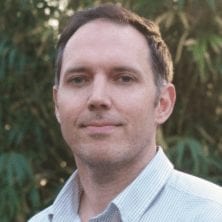
Chris Mennona serves as Logistics Planning Manager at Robert Bosch LLC. He is responsible for Source, Make and Deliver activities for the Power Train Solutions (PS) Value Streams. Chris’ leadership role has a major focus on inventory management, high-volume manufacturing line optimization through the use of Bosch Production System (BPS) Principles and overall logistics cost optimization. His previous experience with Robert Bosch includes: Commercial Manager, Office of Executive Management, Logistics Process Expert – Simultaneous Engineering, Bamberg Germany; Logistics Engineering Group Leader, and Logistics Engineer. Chris holds a Masters in Engineering, Industrial Engineering from Clemson University’s College of Engineering and Science. He also holds a Bachelor of Science in International Business from
College of Charleston’s School of Business and Economics. Learn more about Robert Bosch LLC here: https://www.bosch.us/
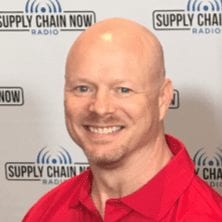
Beau Groover is Founder and President of The Effective Syndicate. He has been working with manufacturing and operations-focused organizations for over 20 years, primarily focused on developing bullet-proof processes and teams that are built to win. Beau has helped organizations save millions of dollars while also improving those companies’ customer experiences and building high-performing teams that continue to drive the business forward. He has developed his approach and strategy over years of working with some of the biggest companies in multiple levels within the organizations, including The Coca-Cola Company, Nordson Corporation, and Westrock (formerly RockTenn). Just prior to launching The Effective Syndicate in 2015, Beau served as the Director of Lean Supply Chain at Serta Simmons Bedding, LLC. Connect with Beau Groover on LinkedIn and learn more about The Effective Syndicate here: https://www.theeffectivesyndicate.com/
